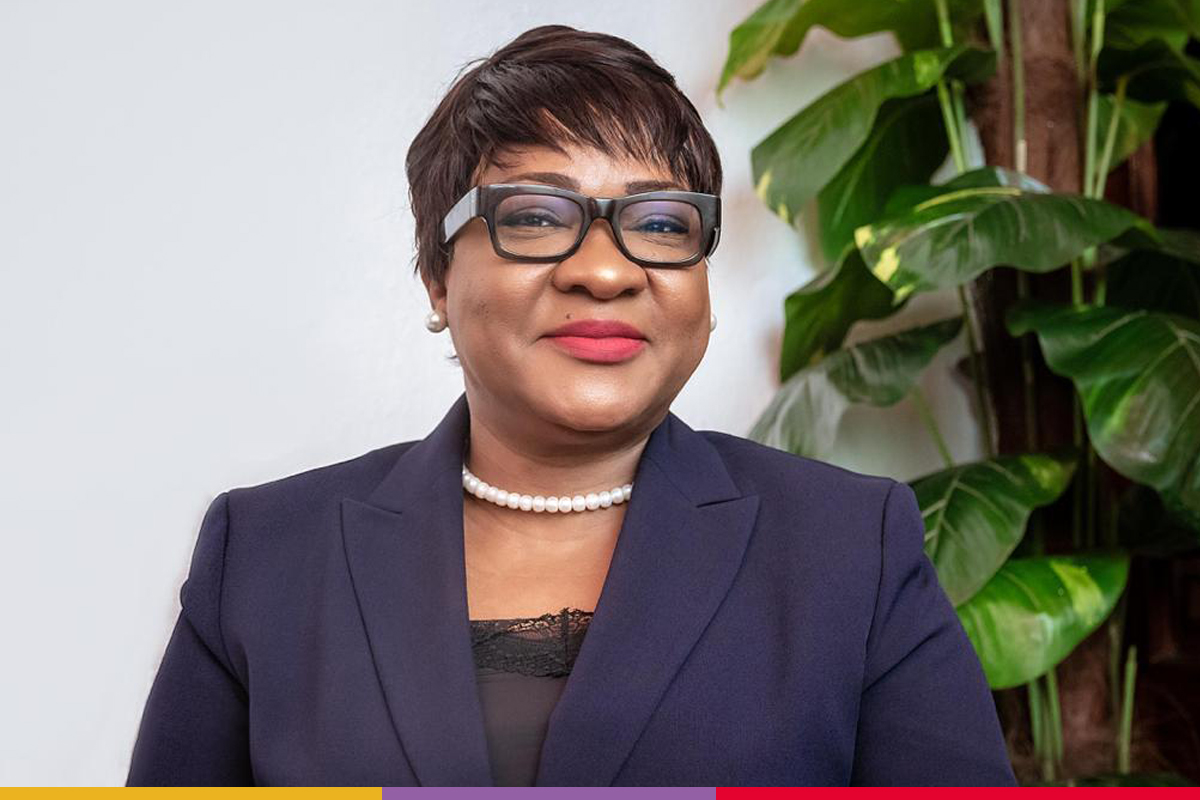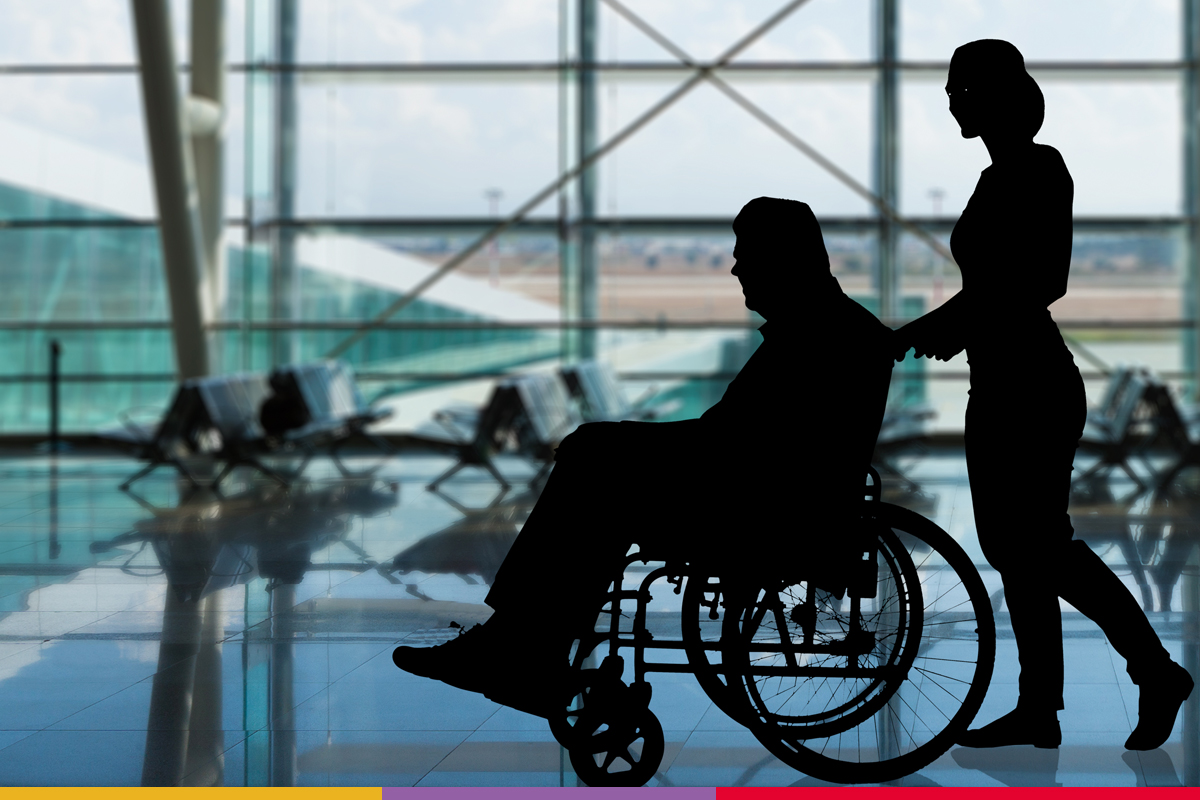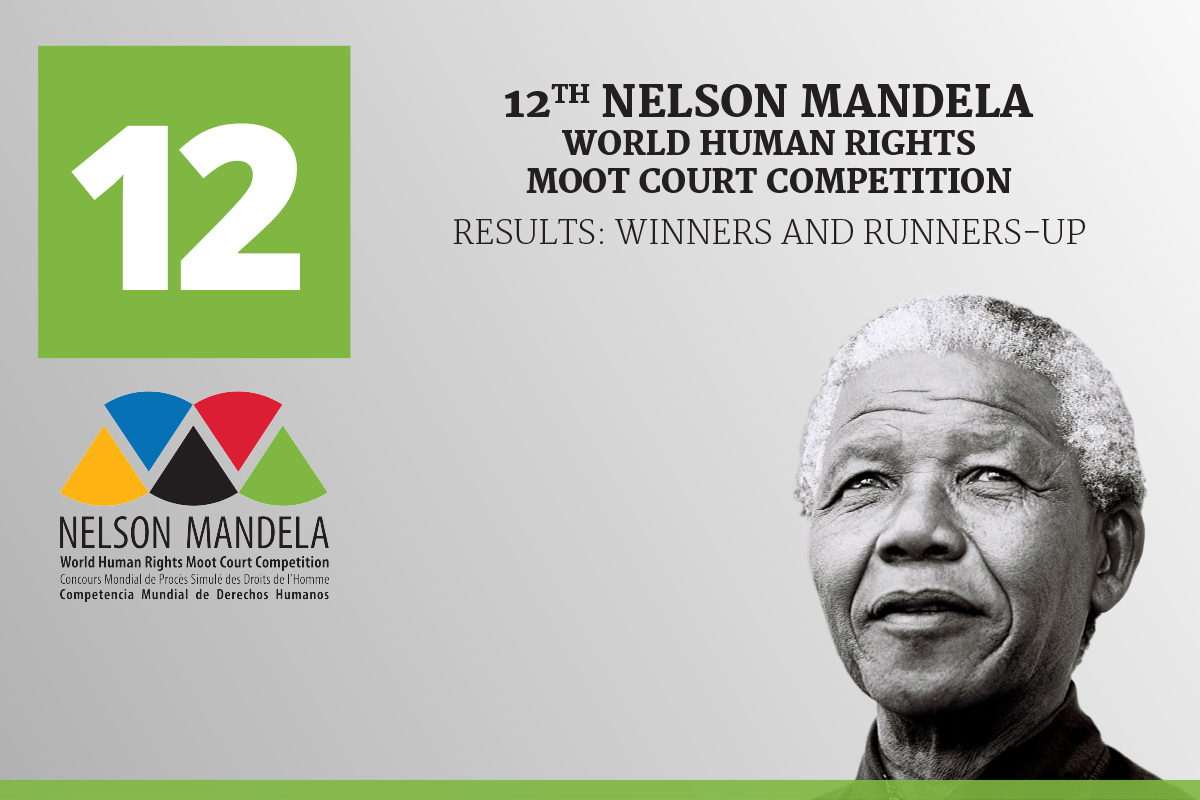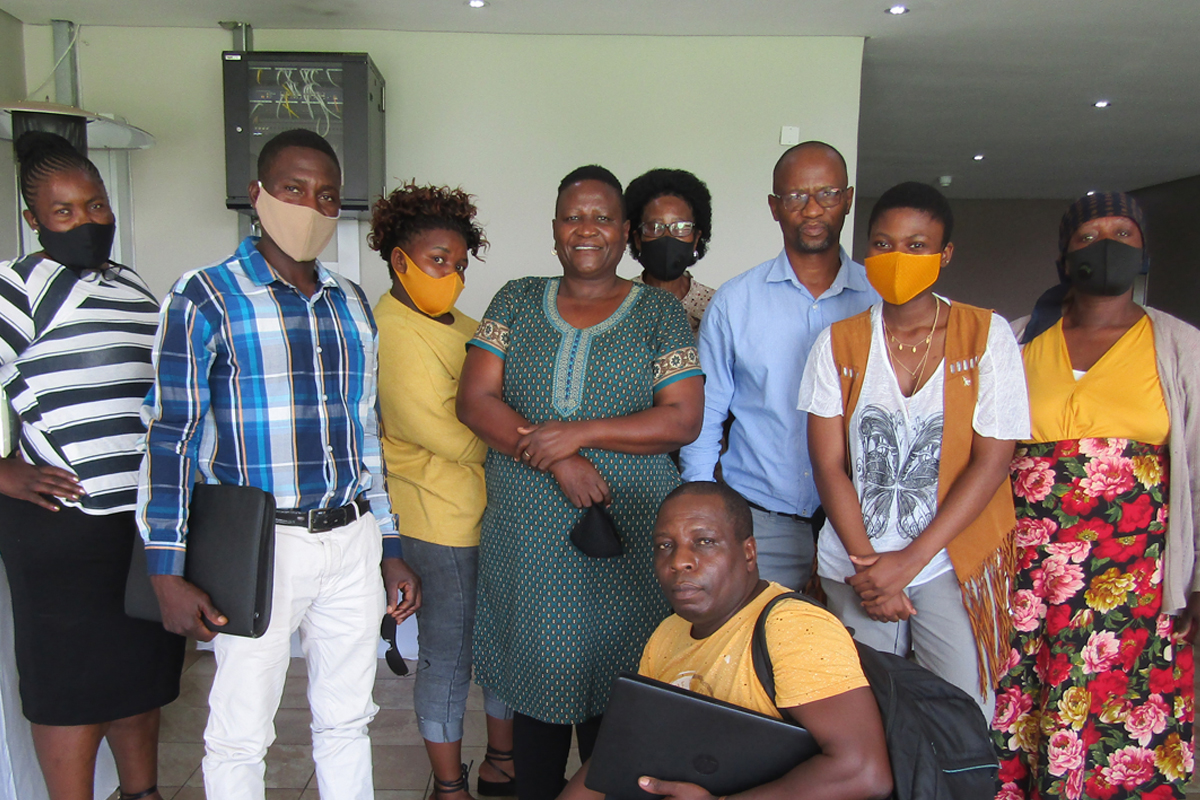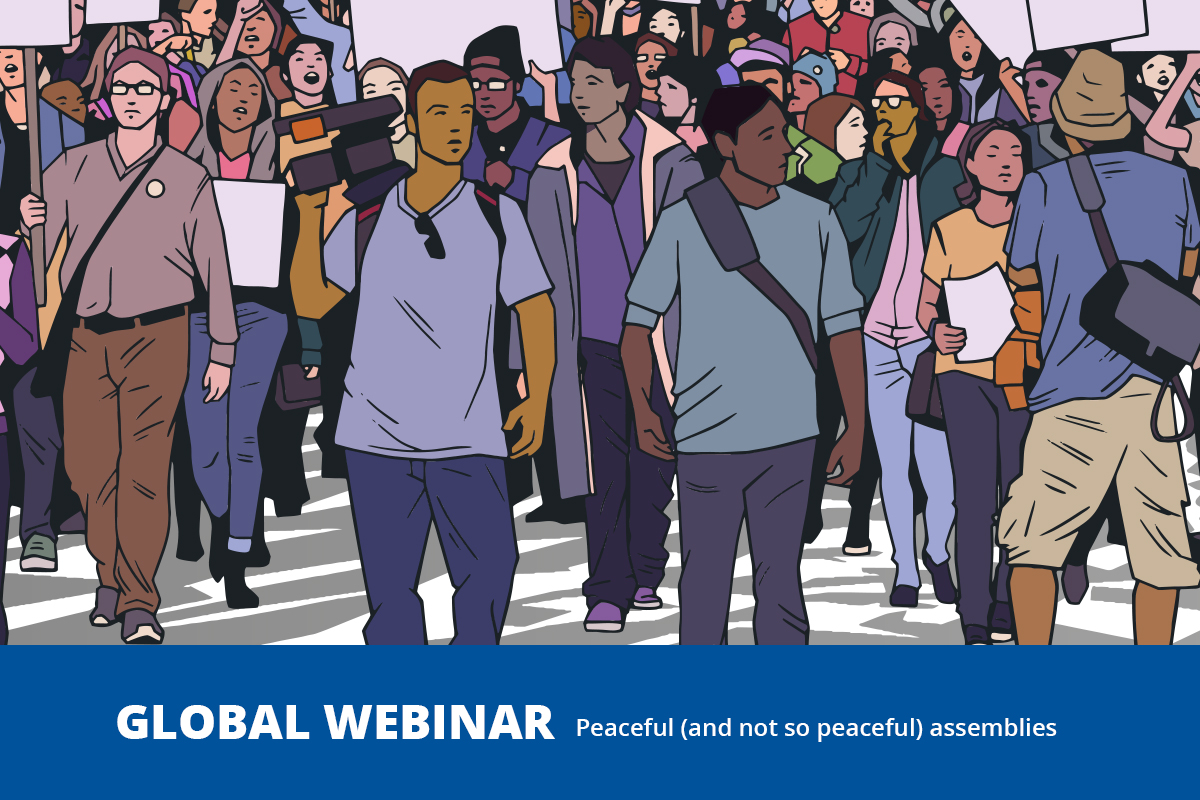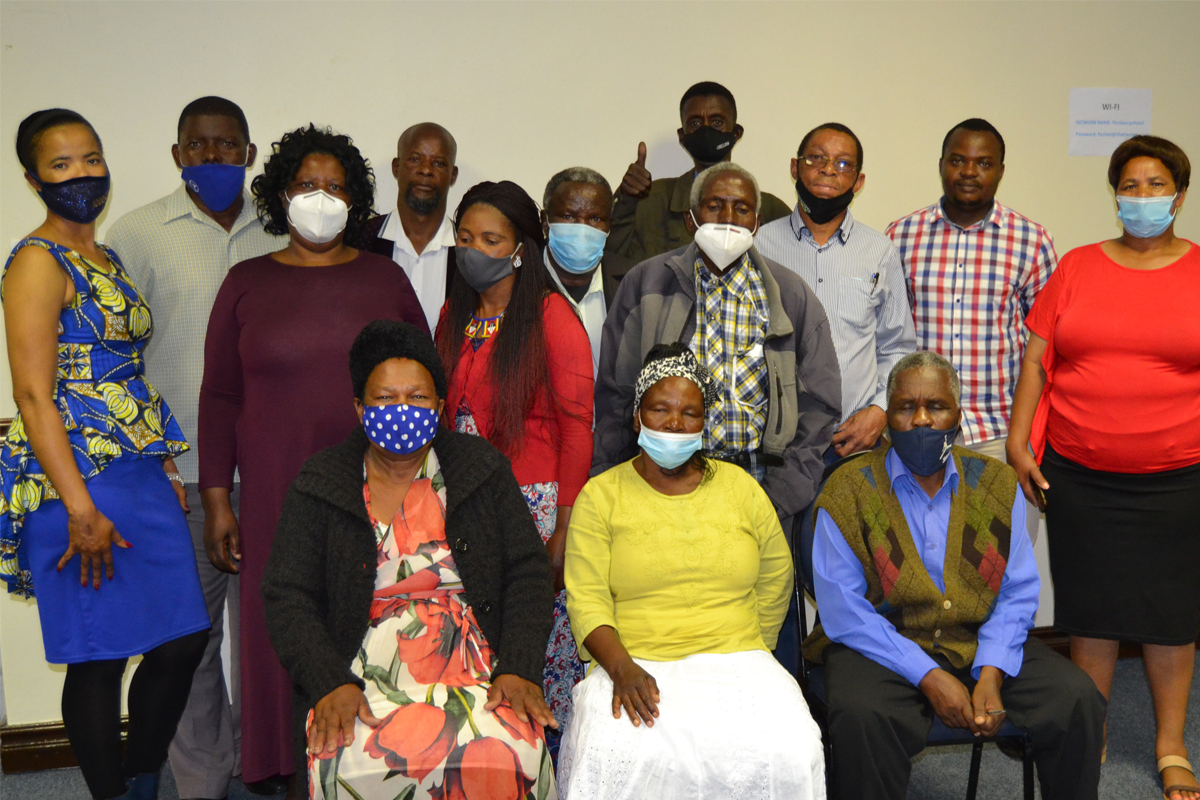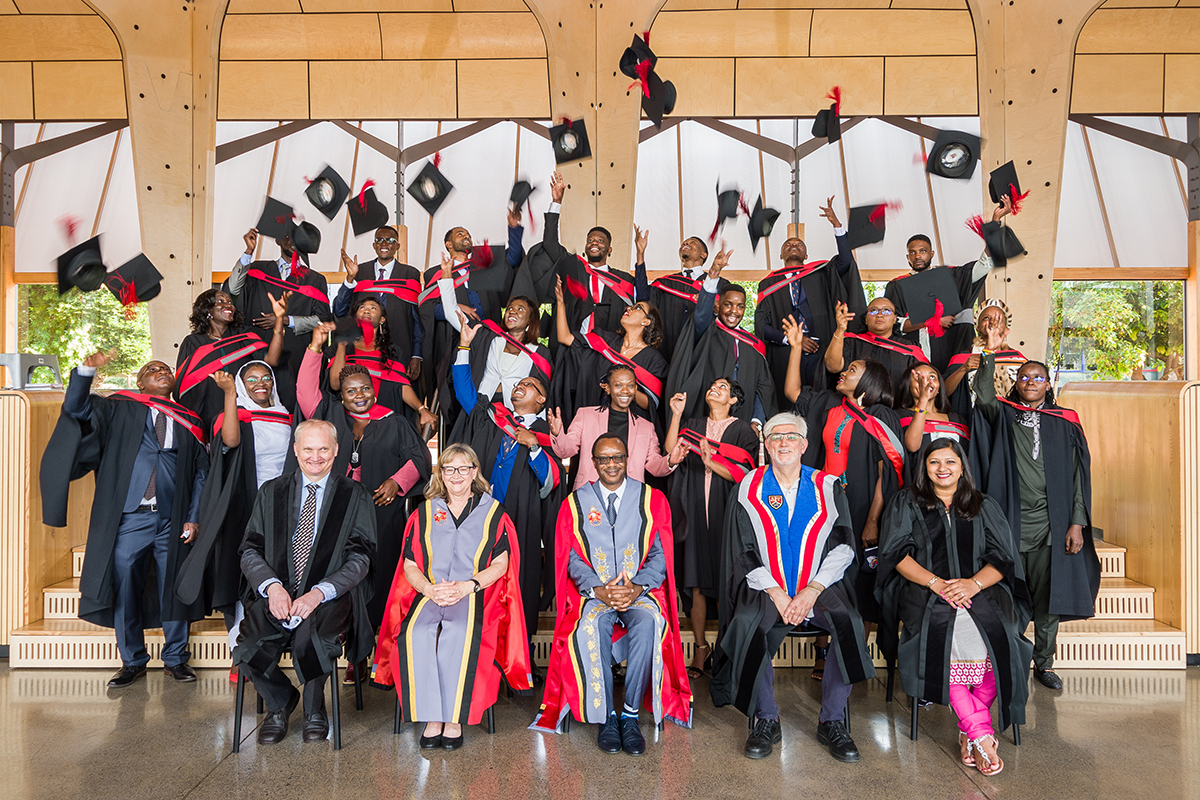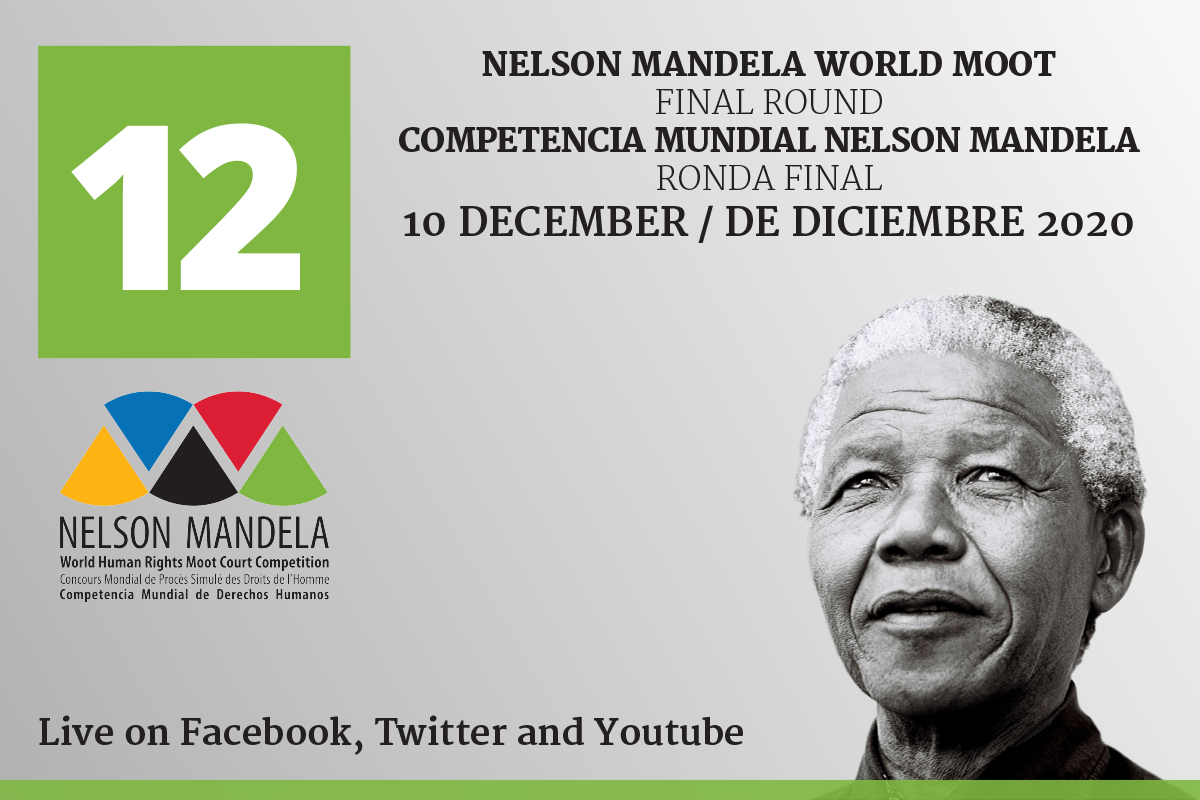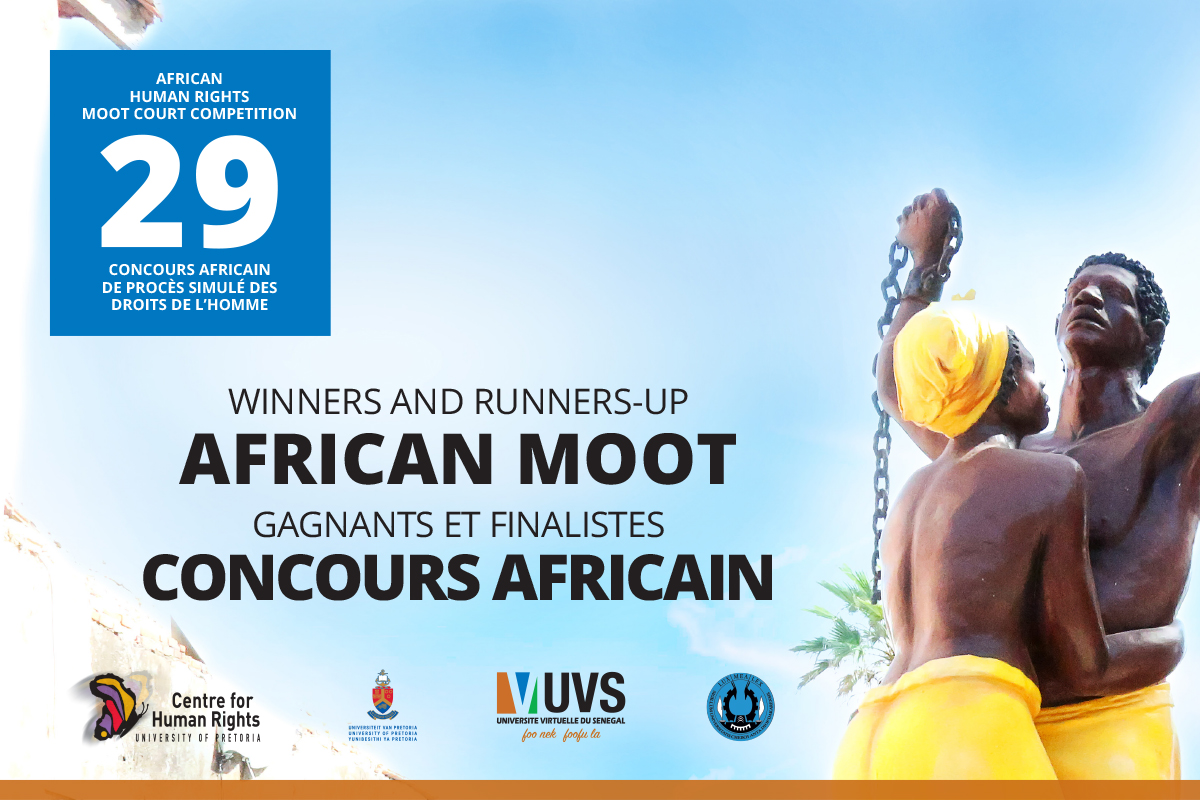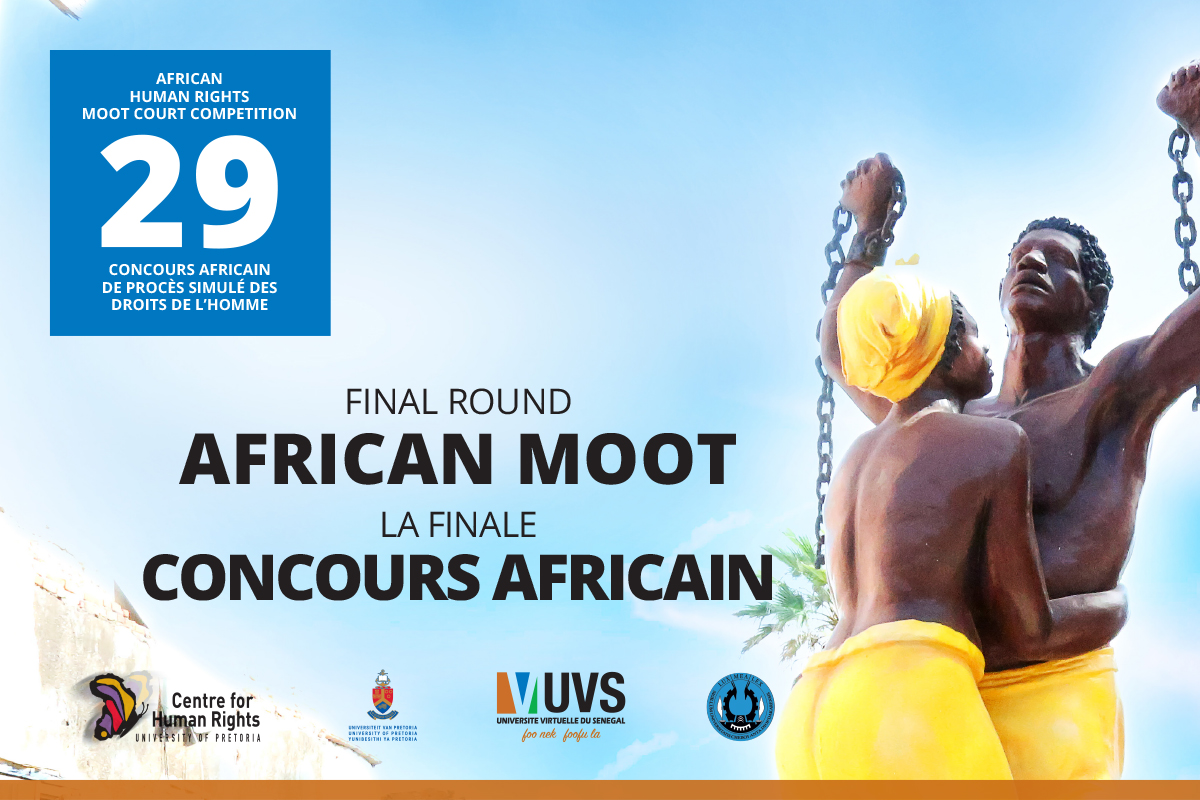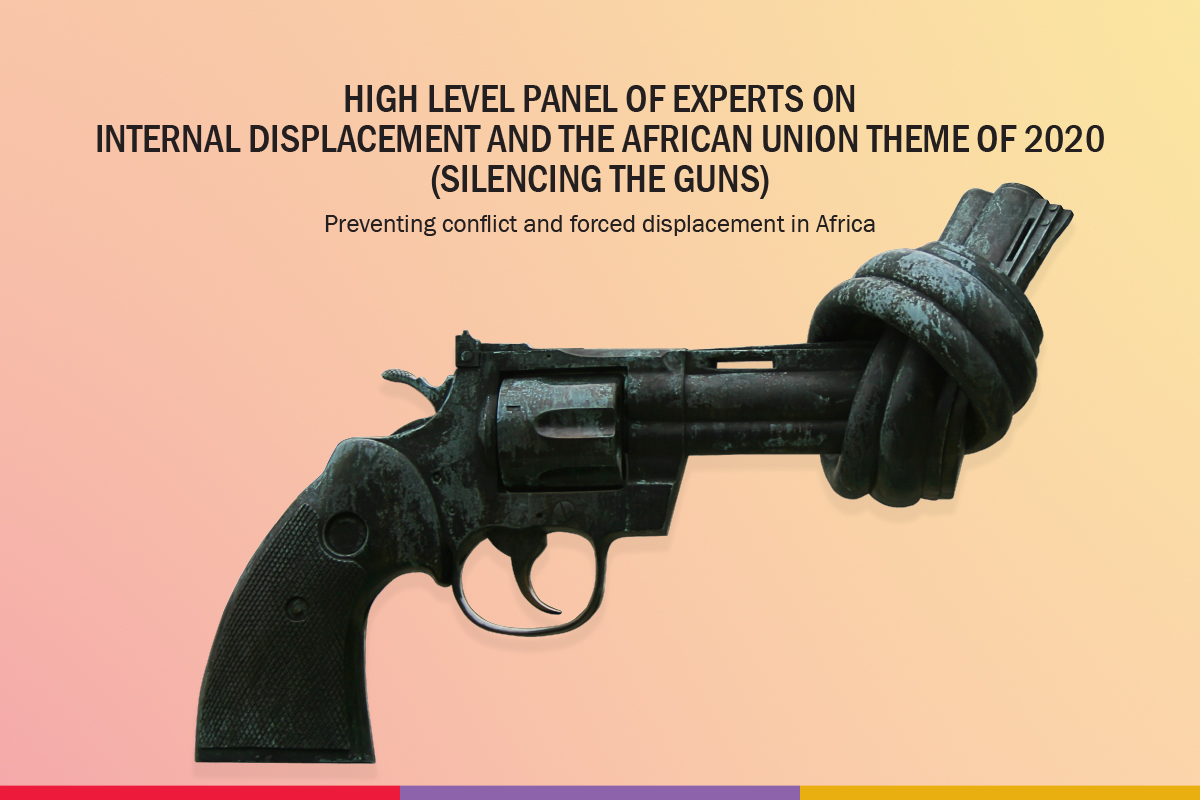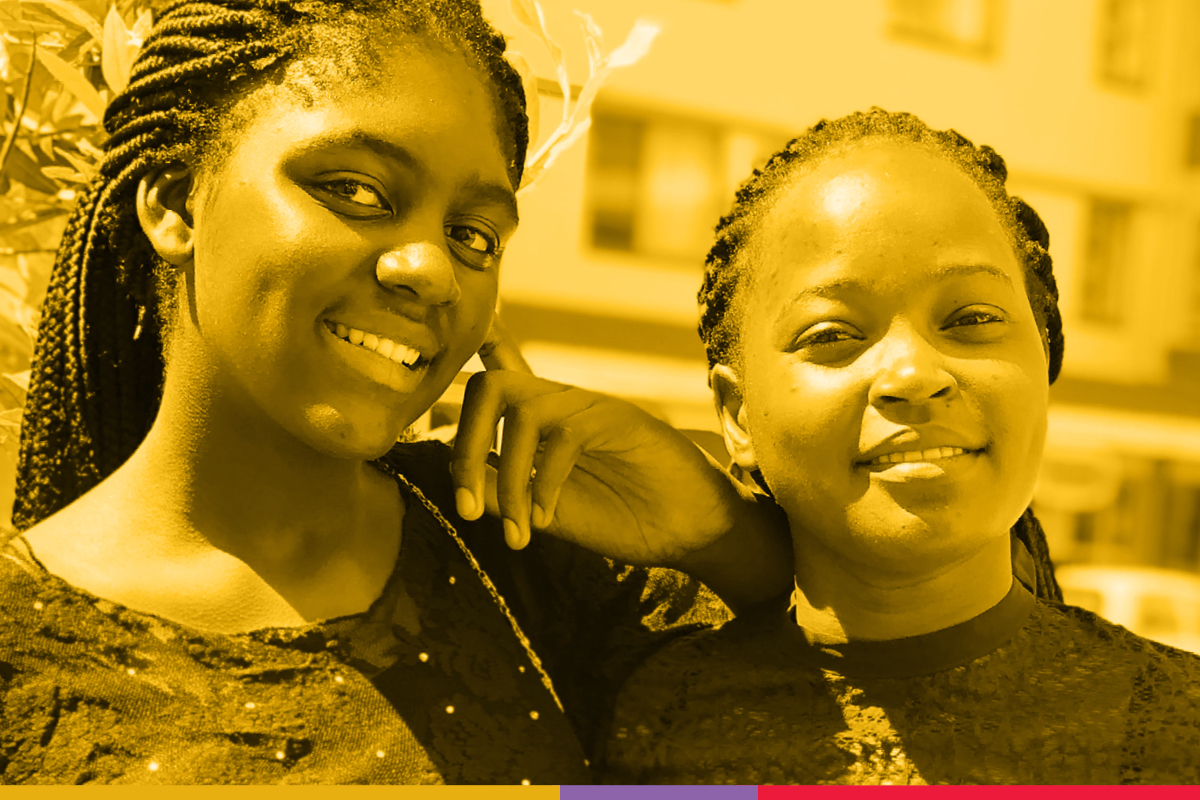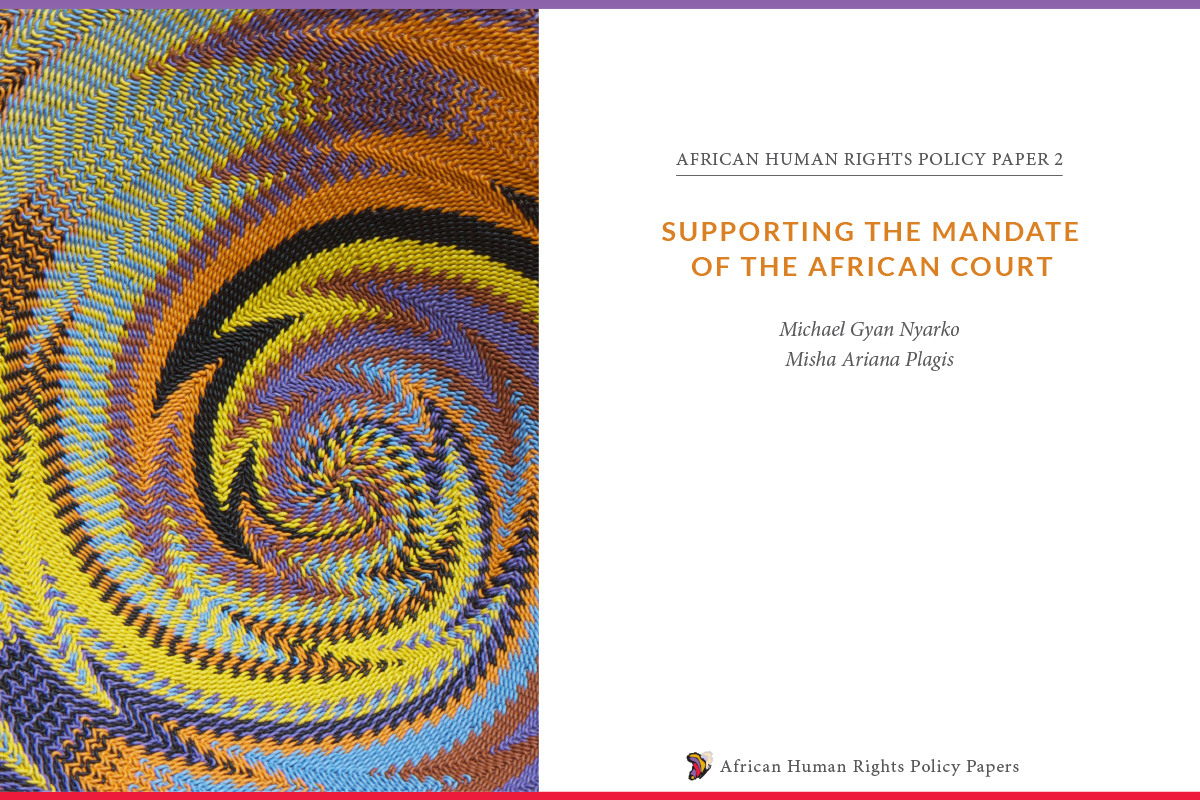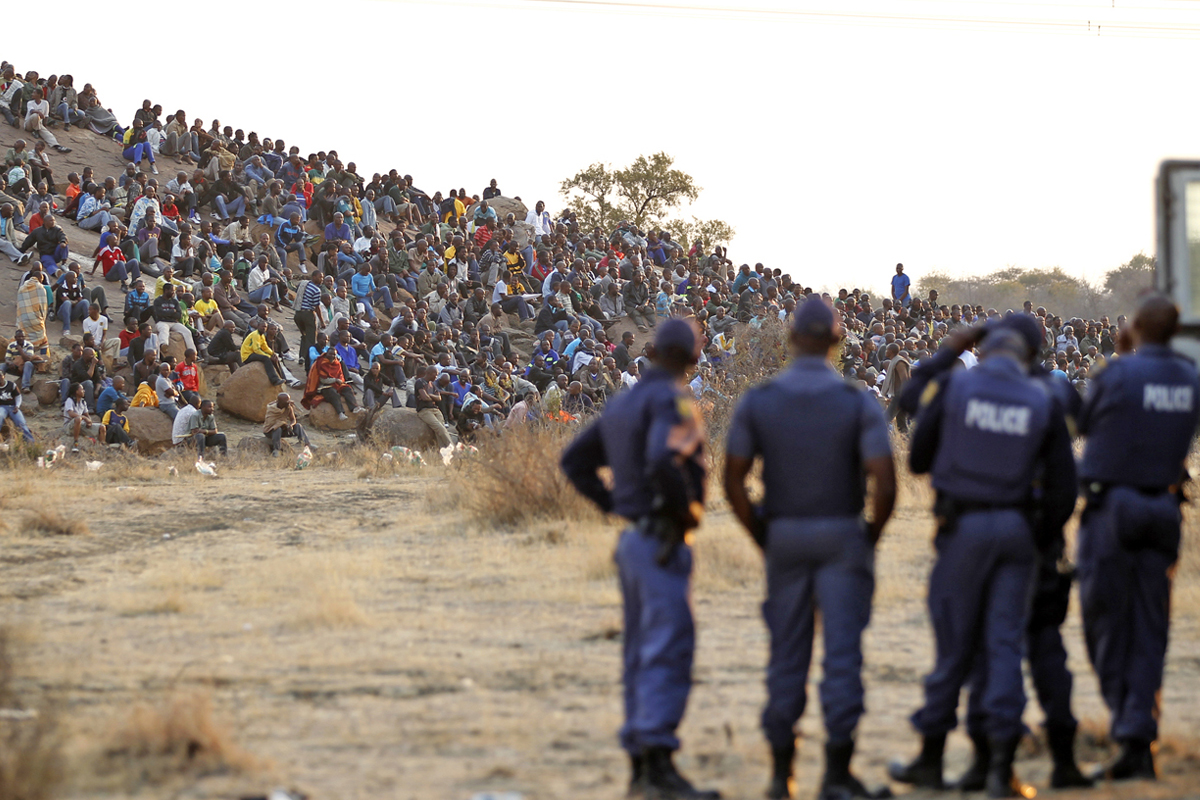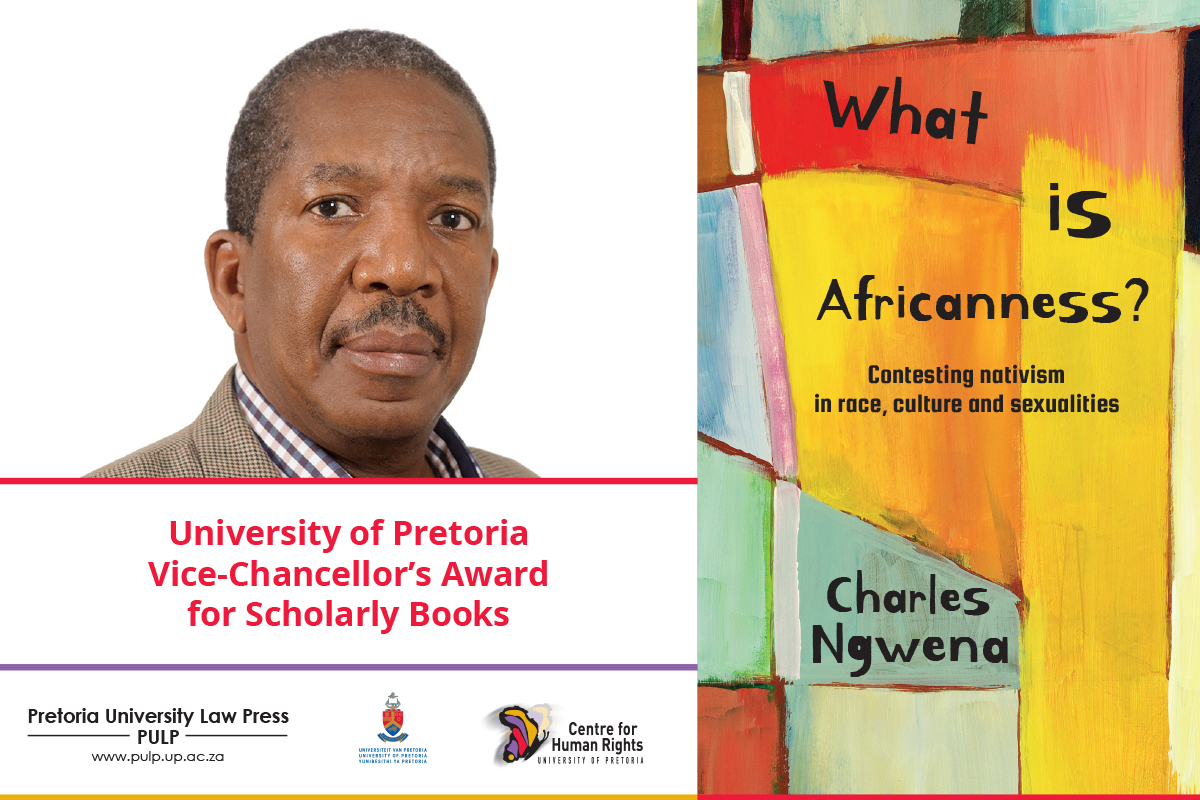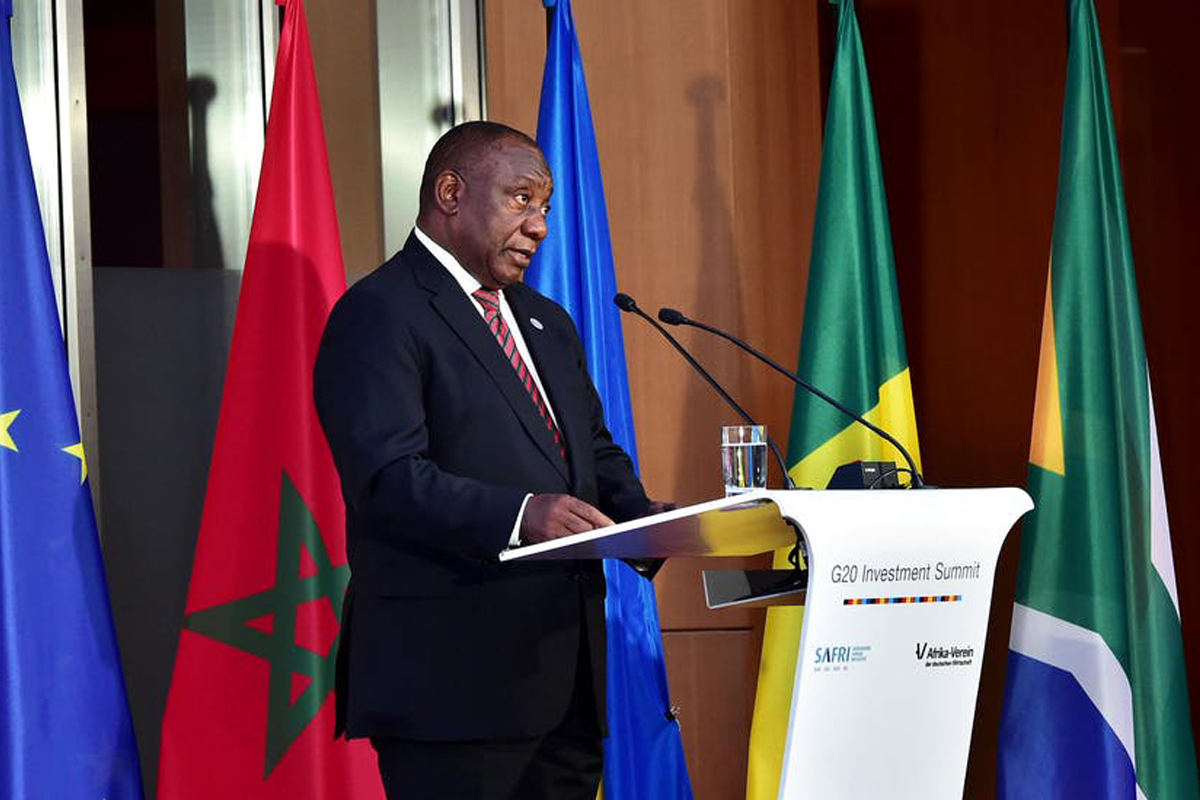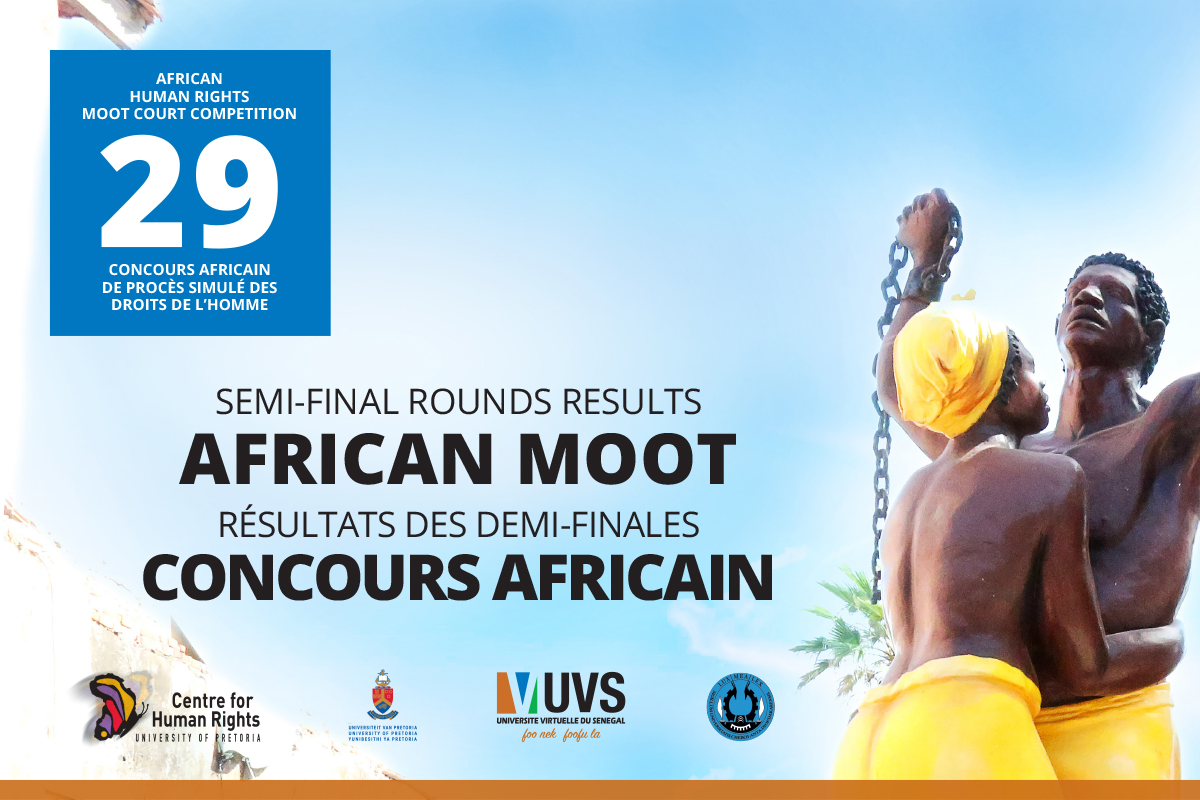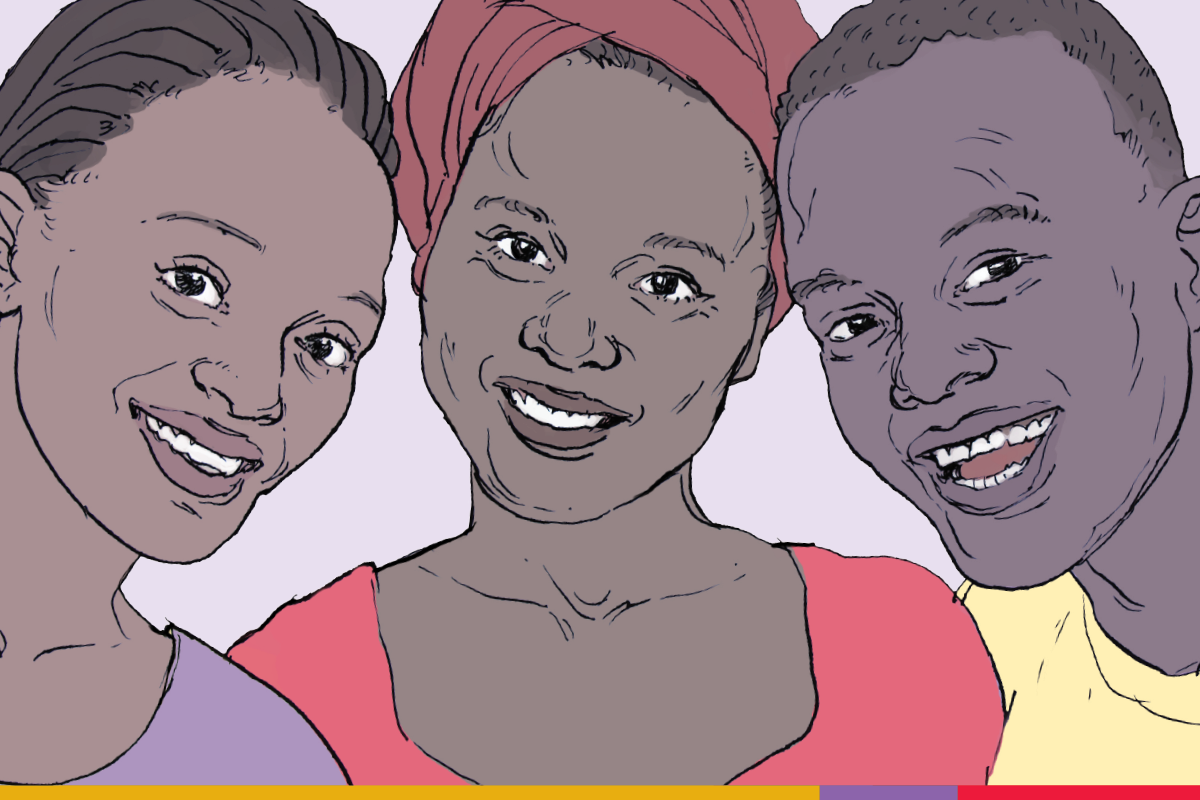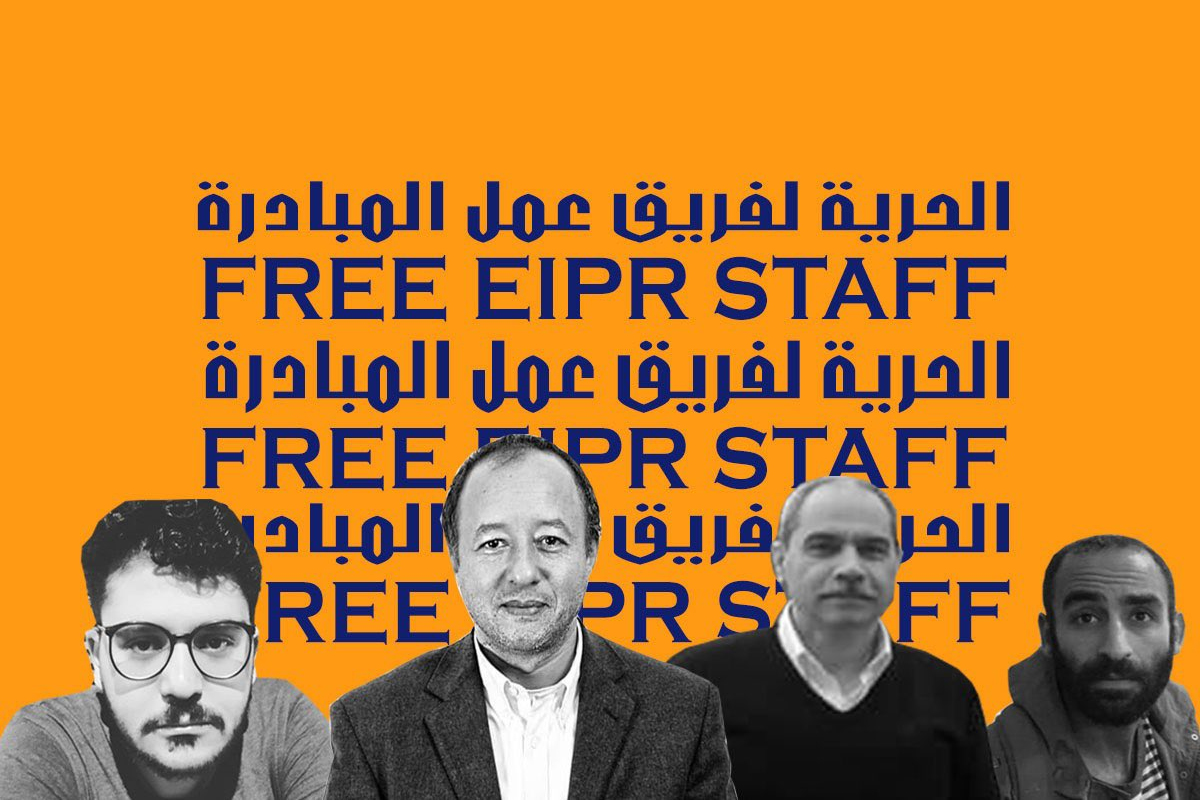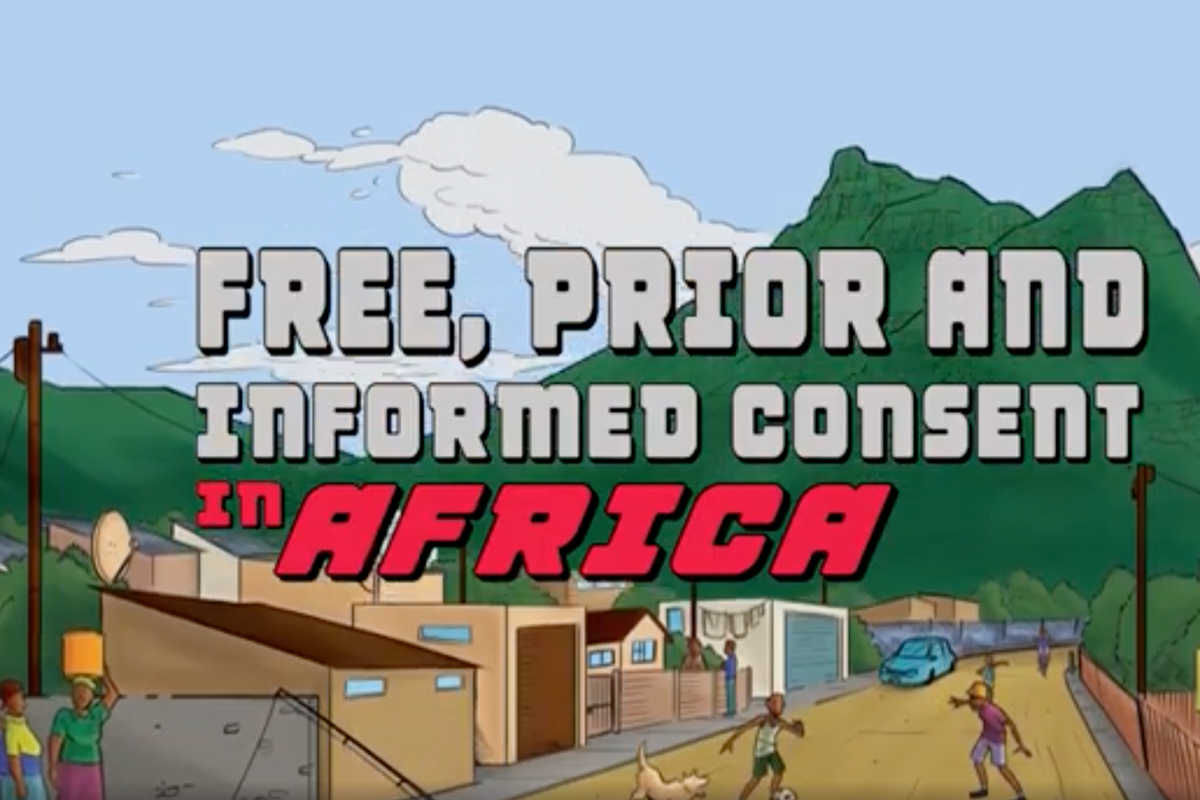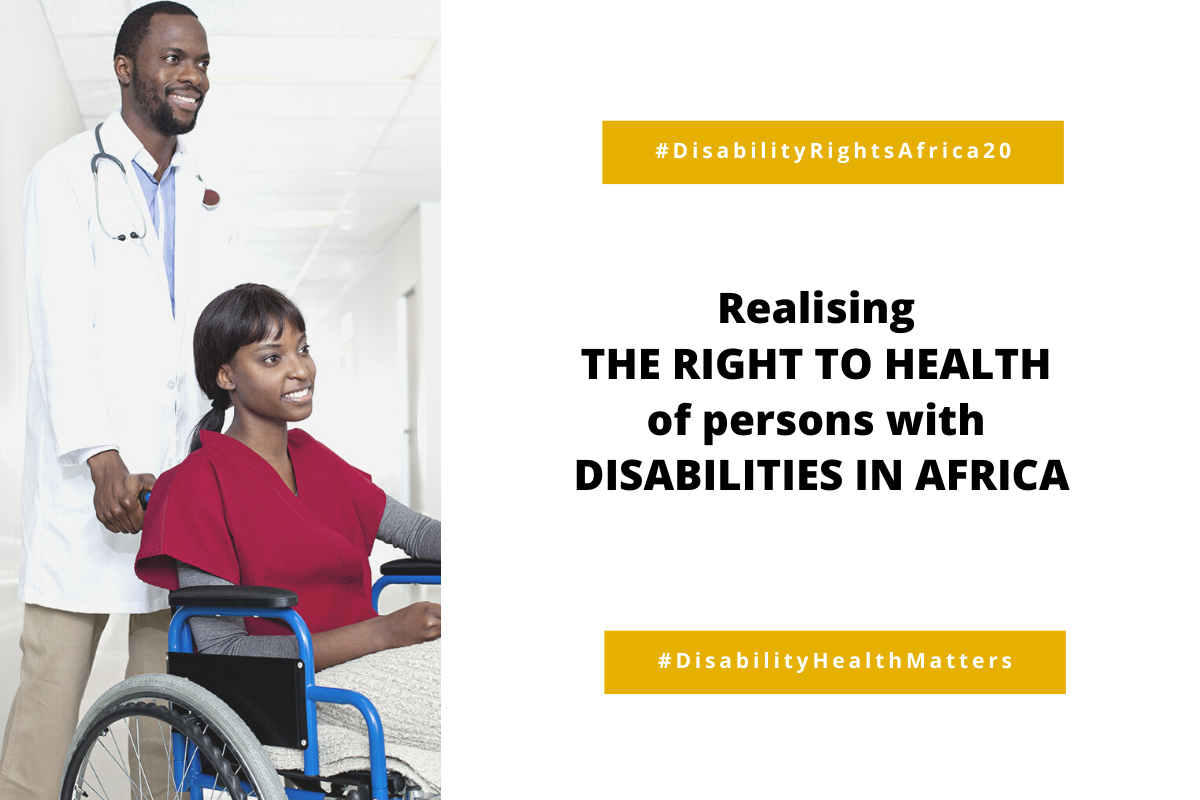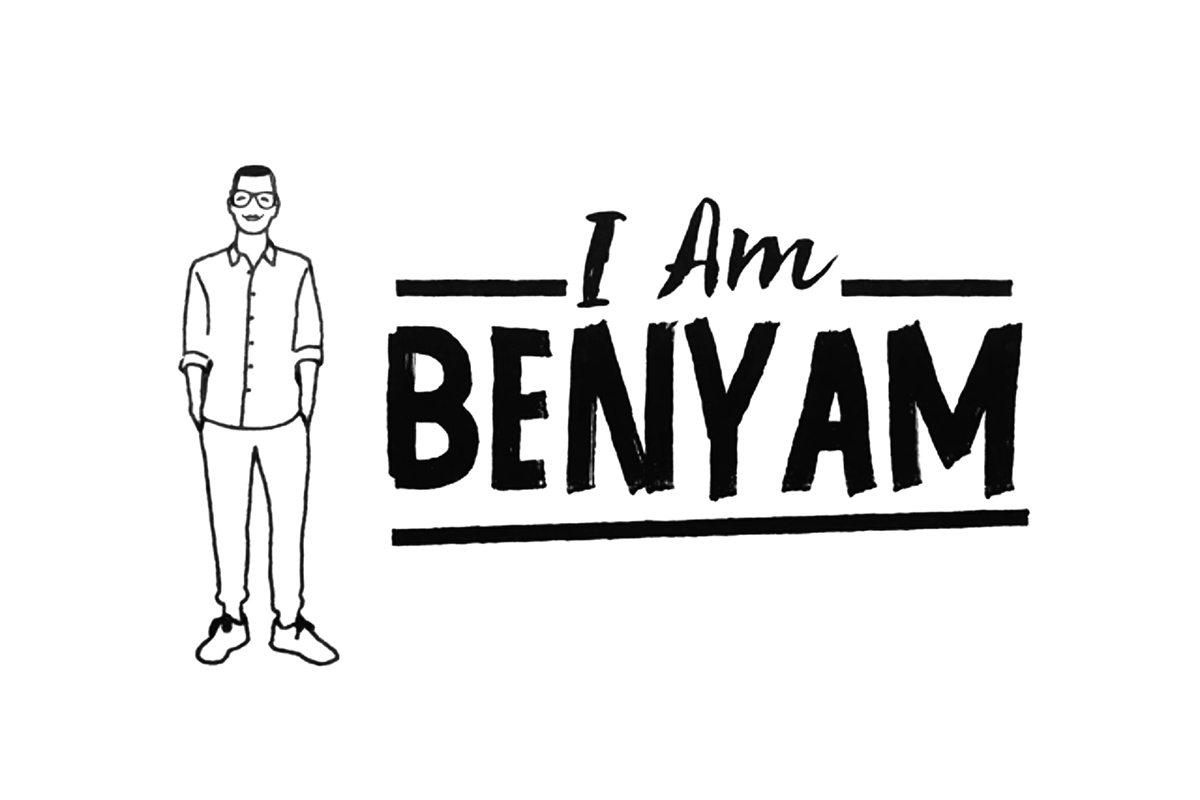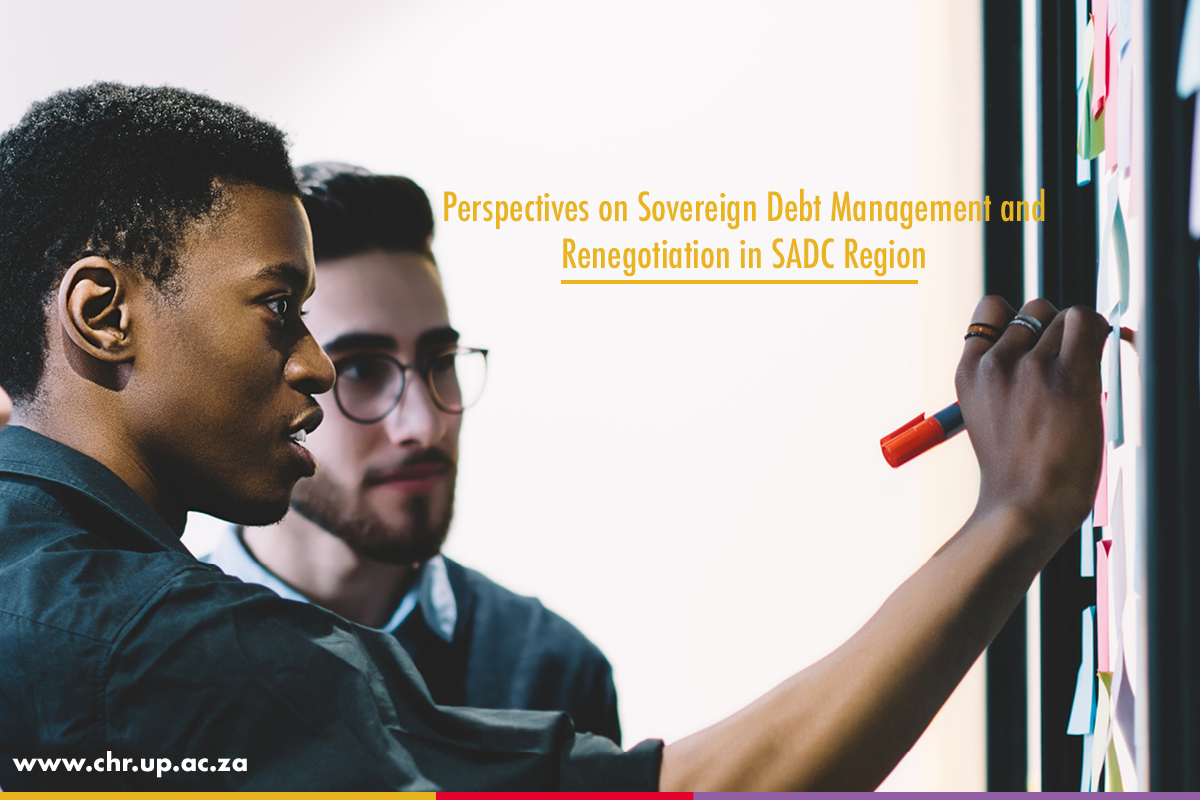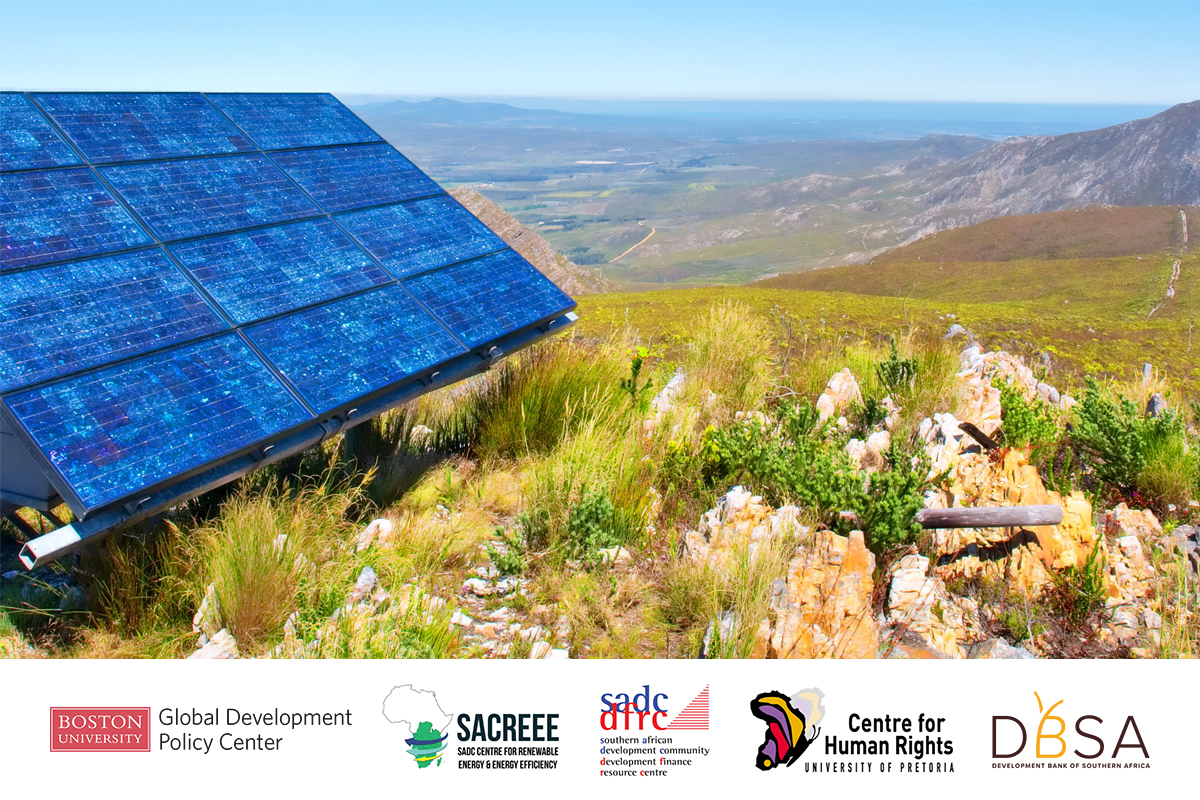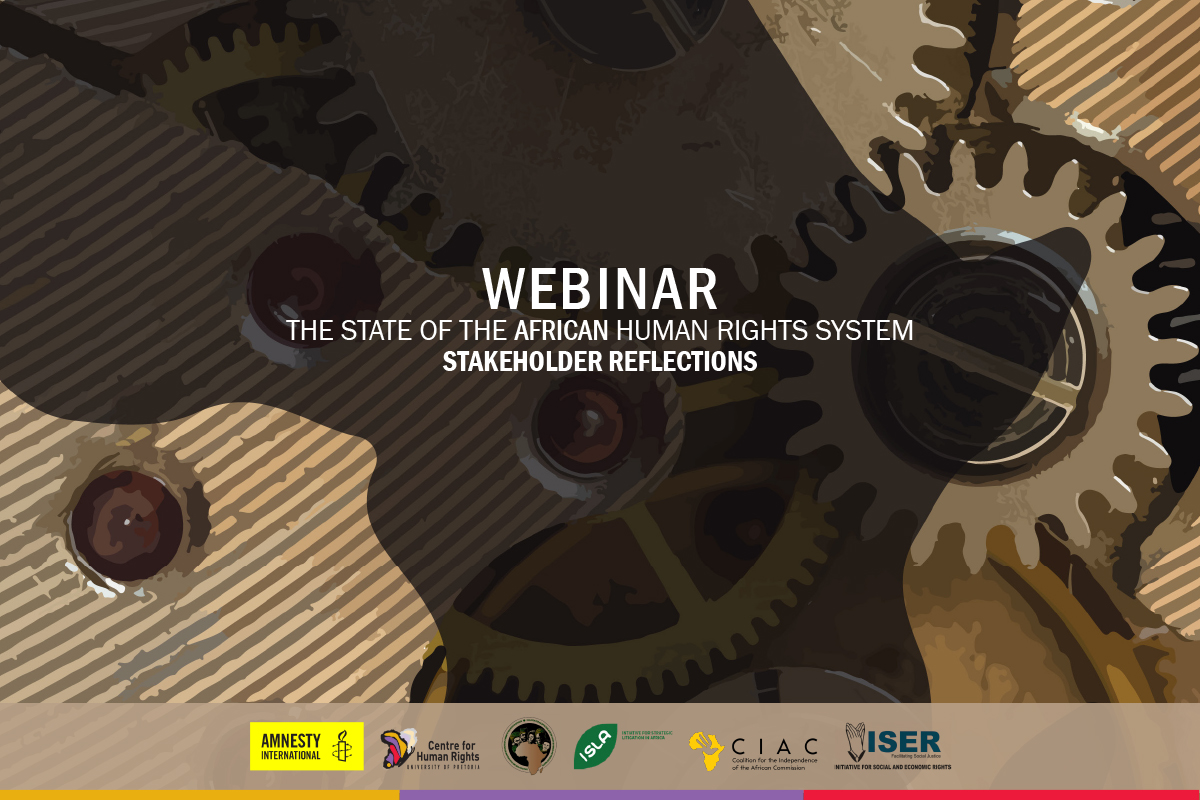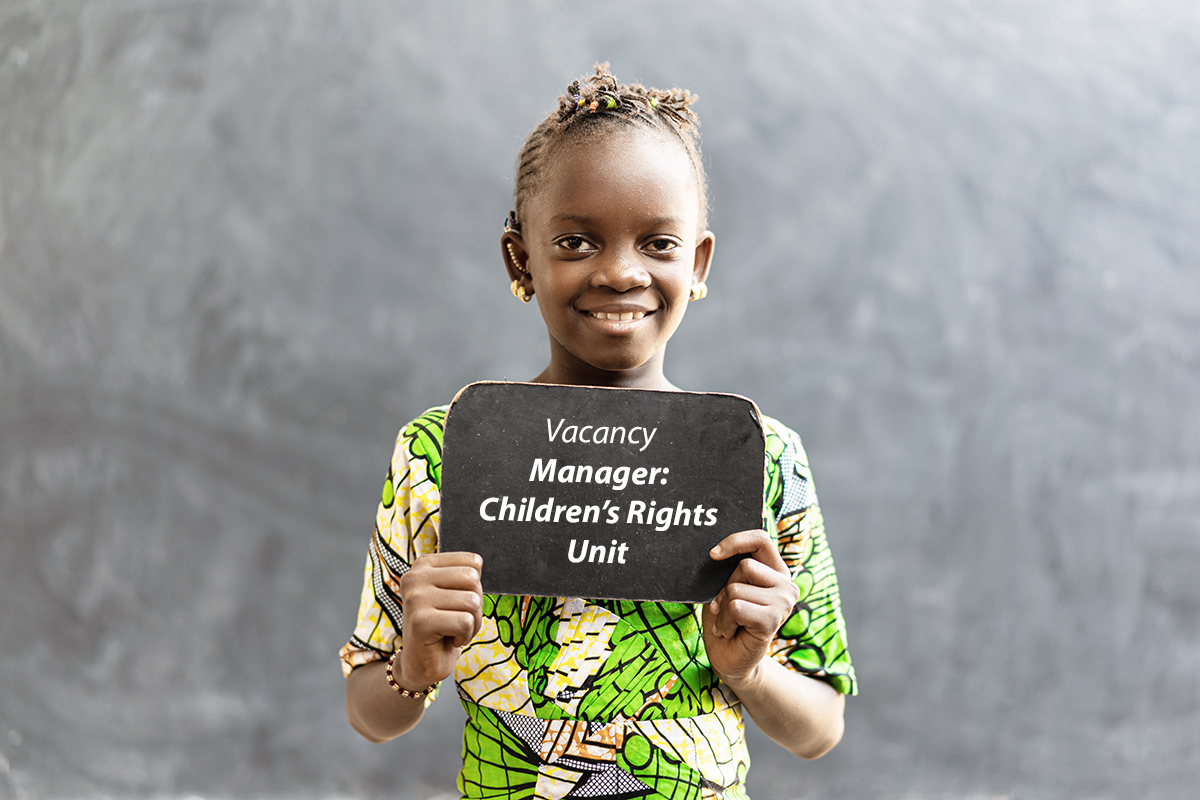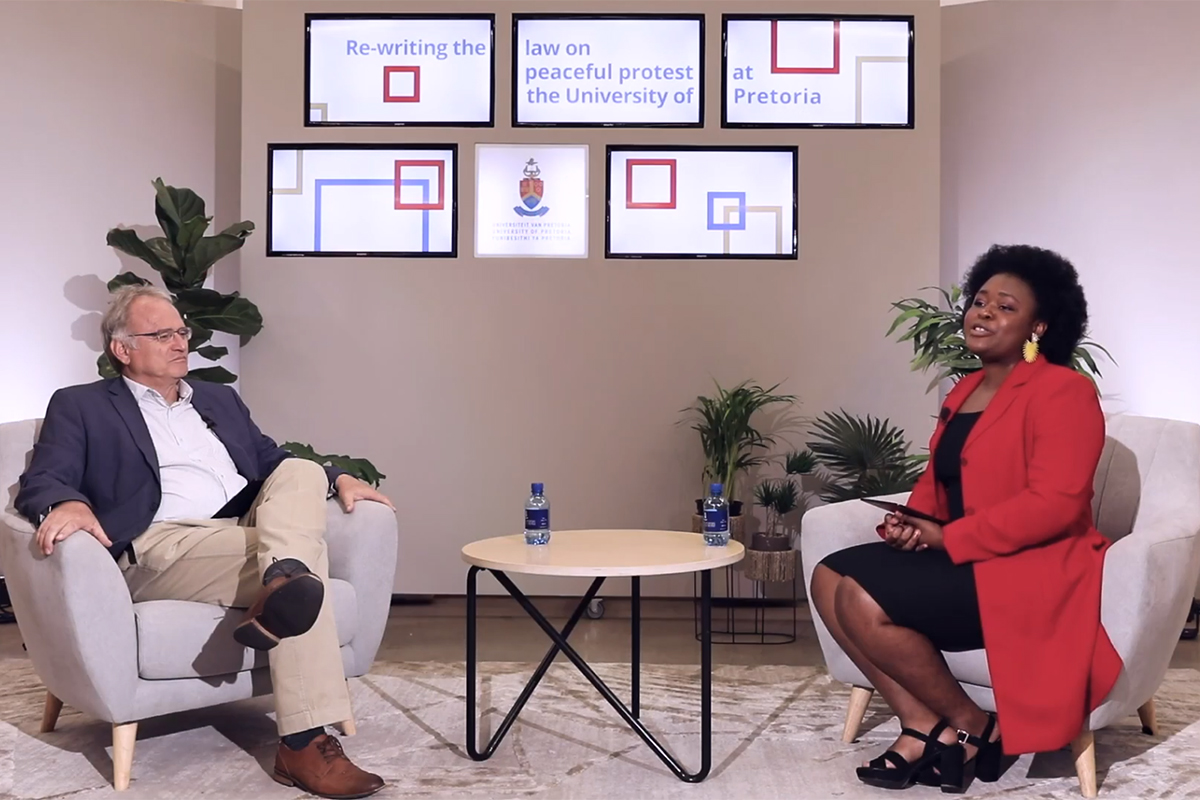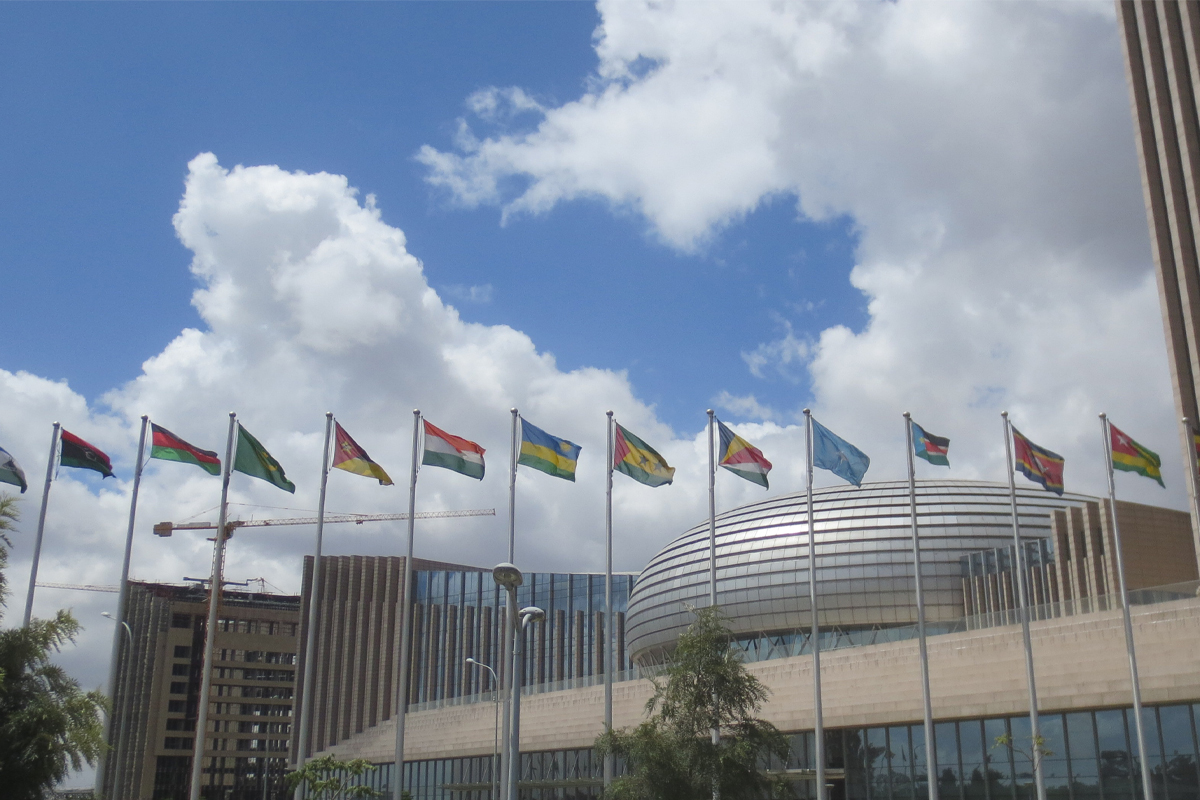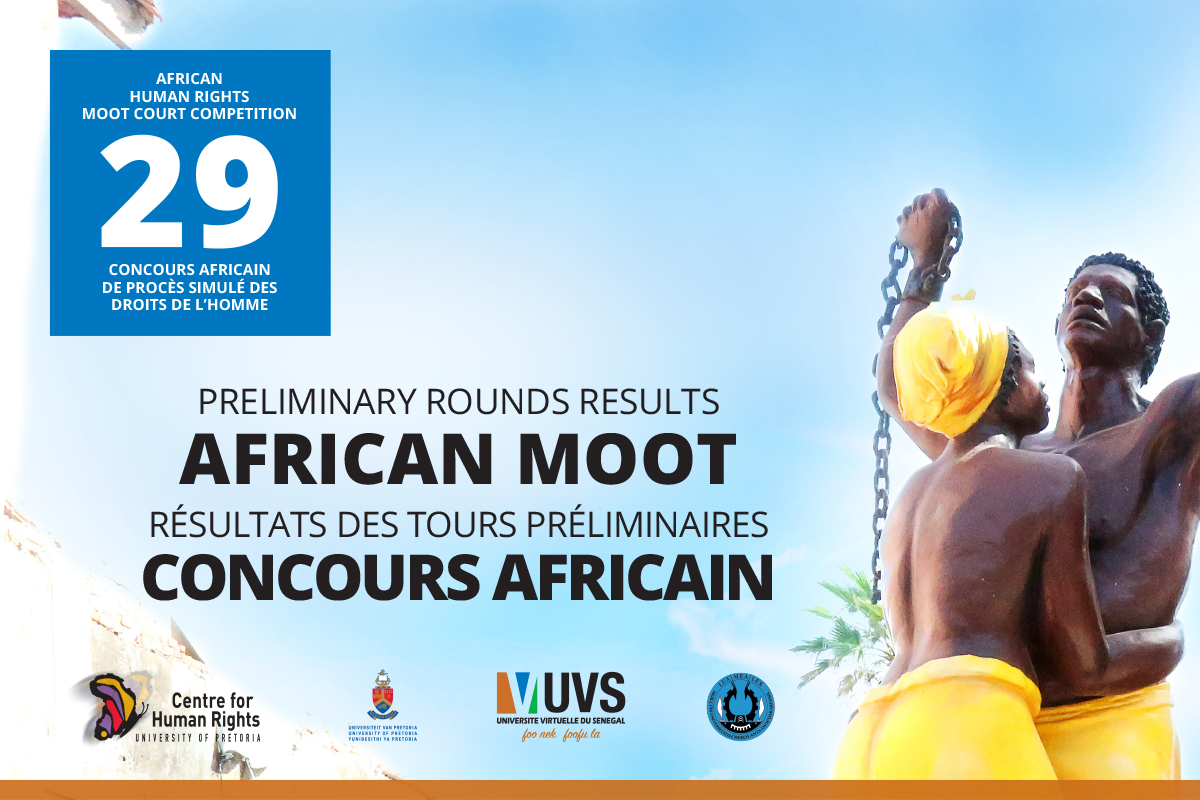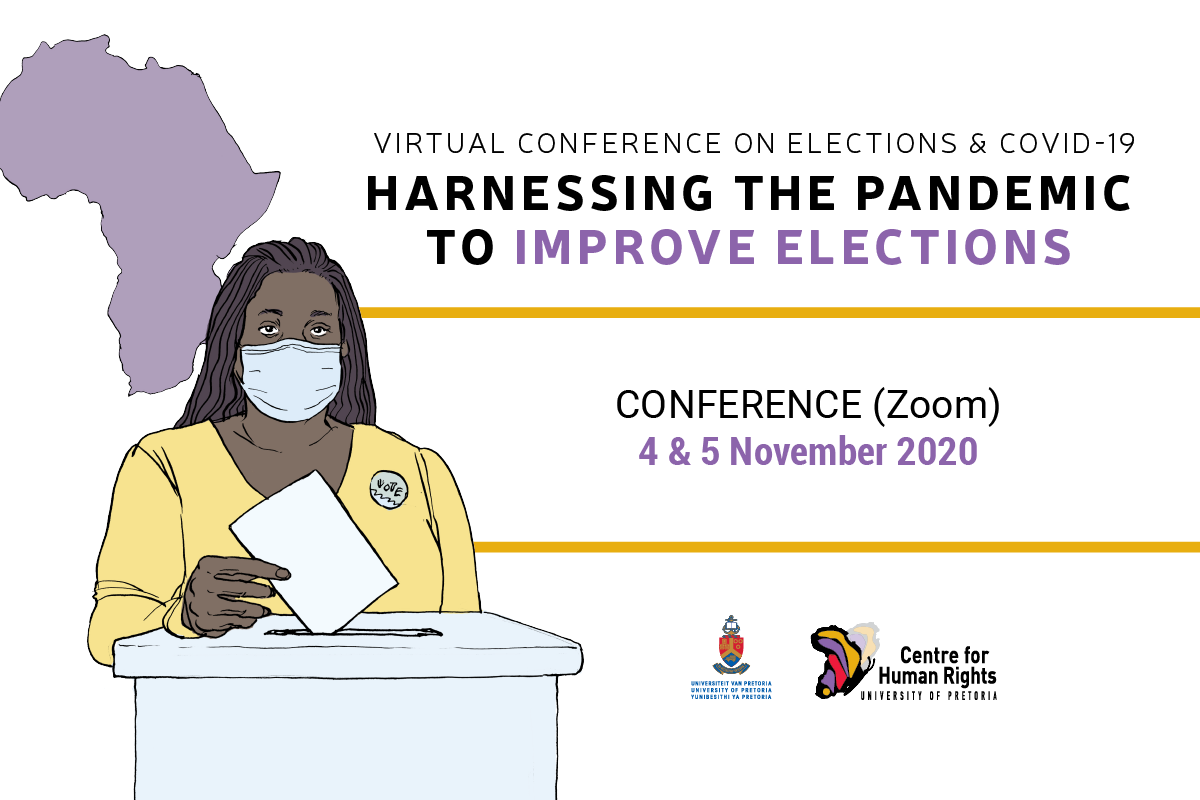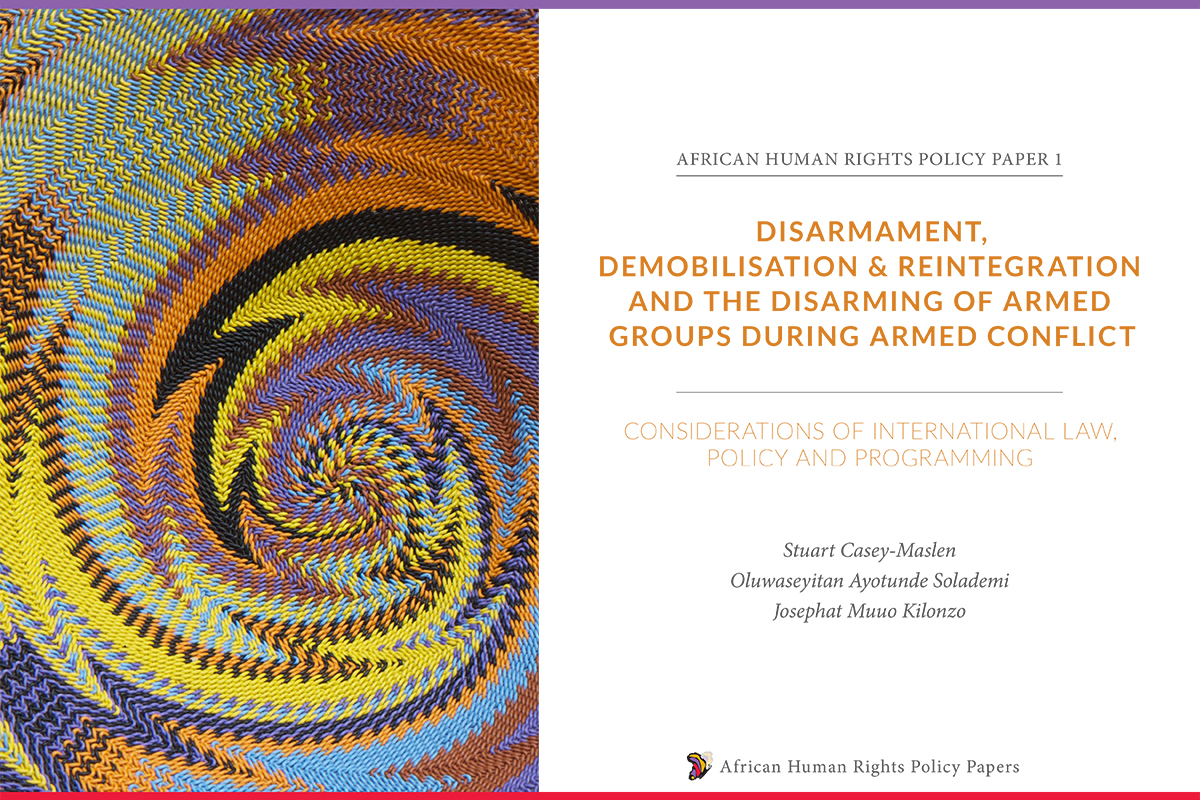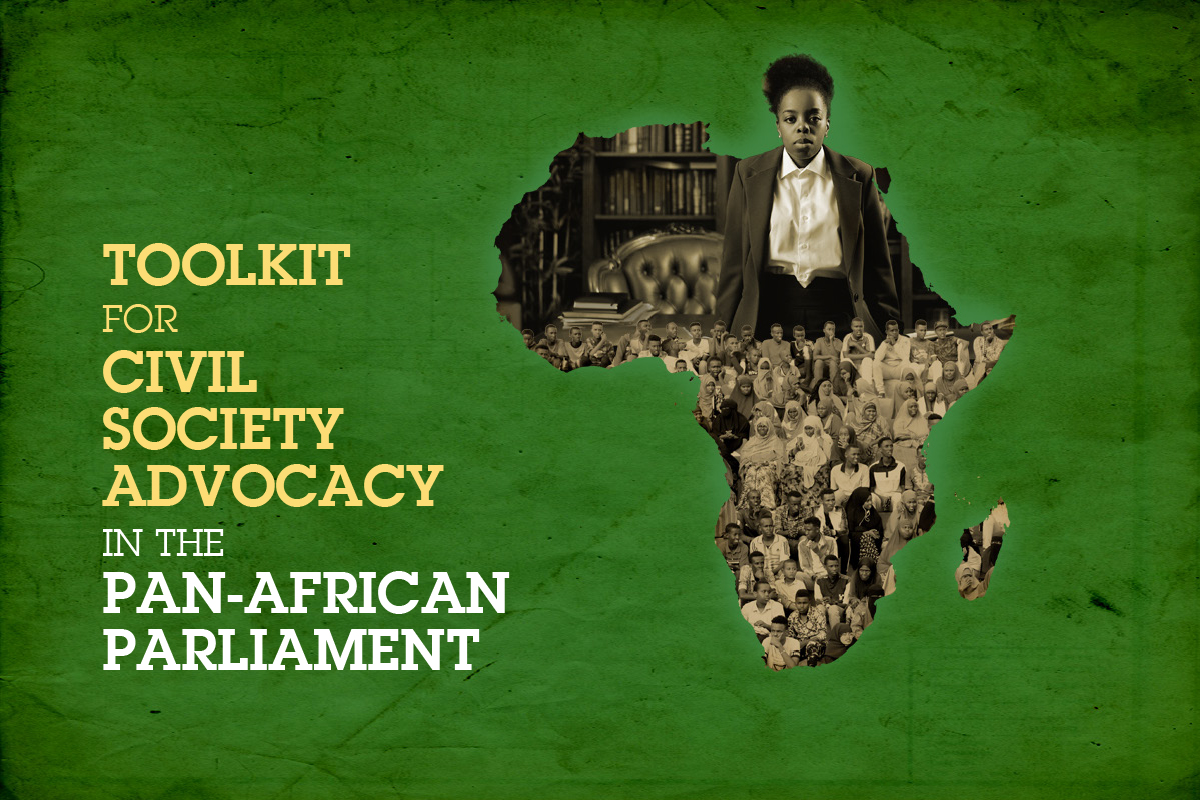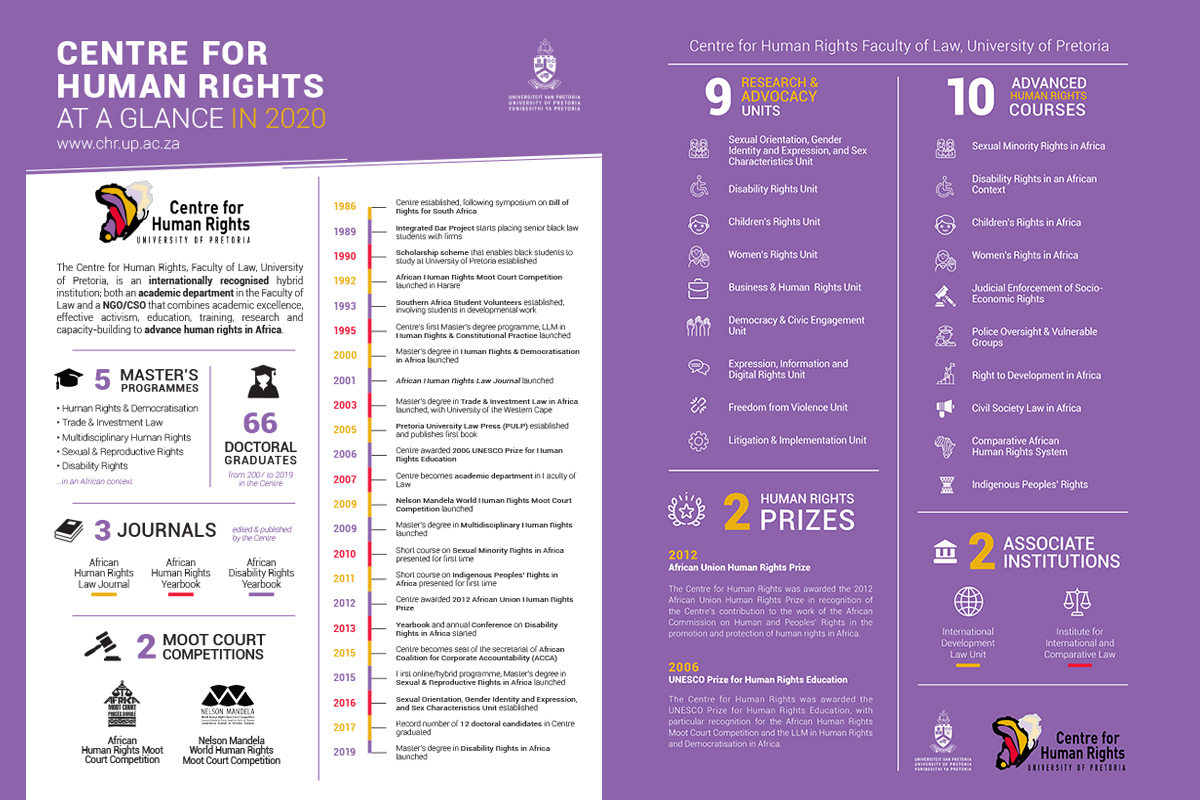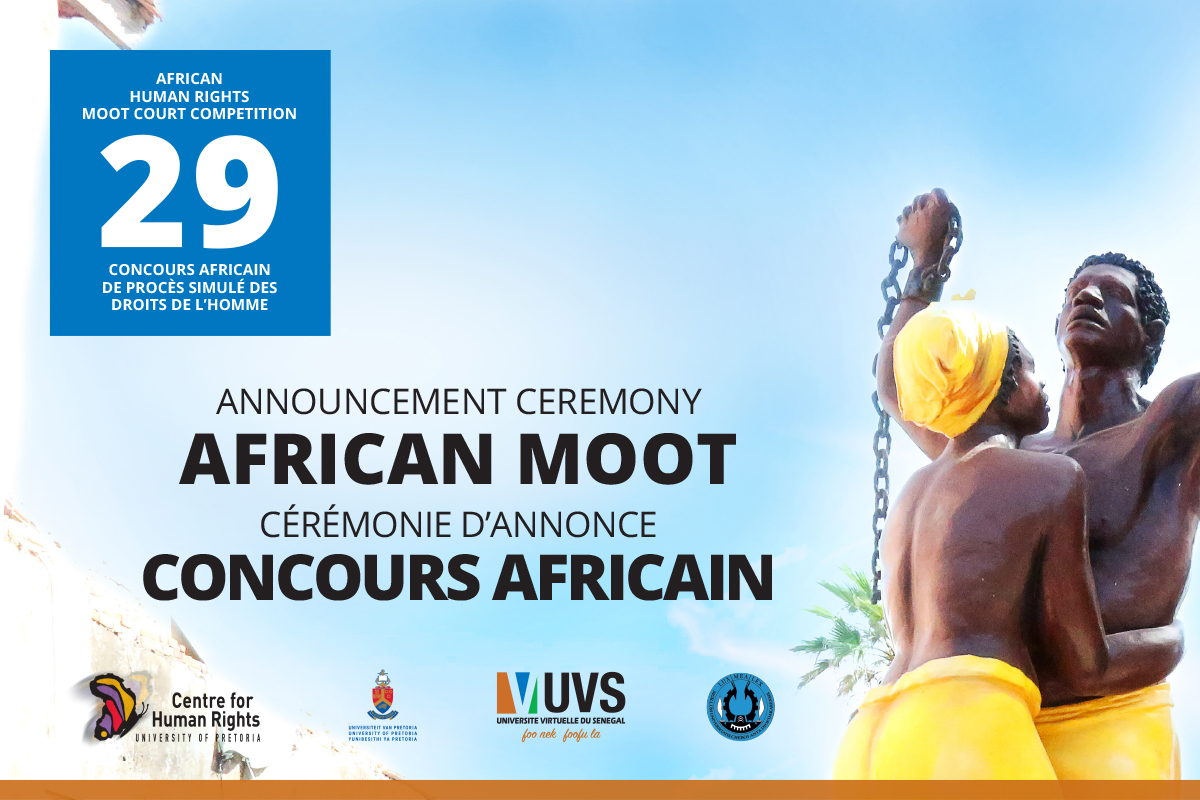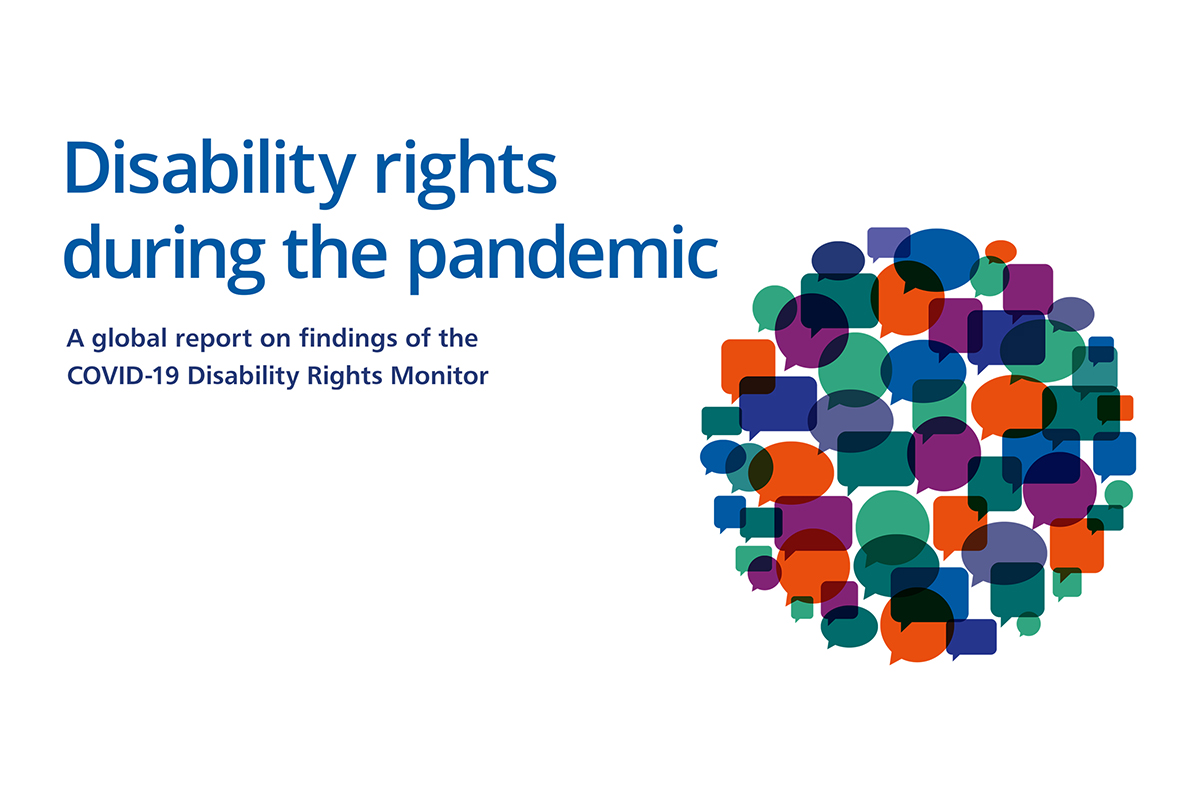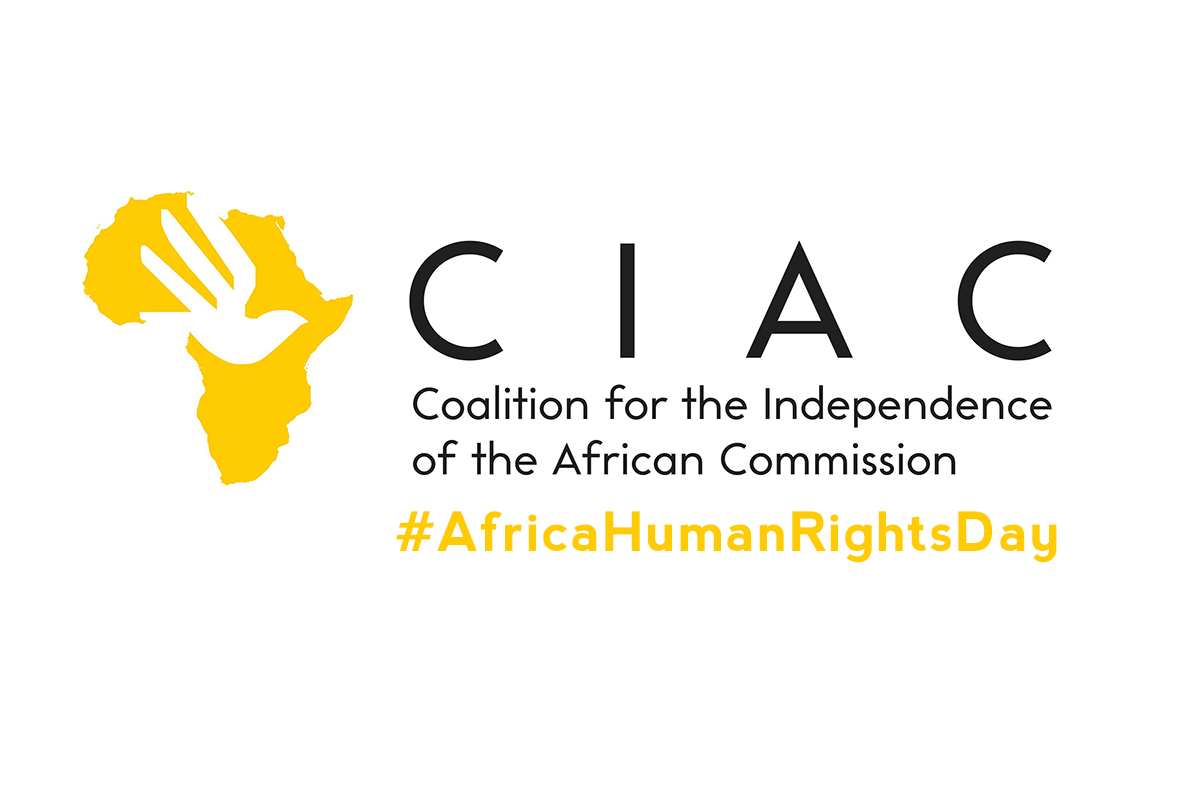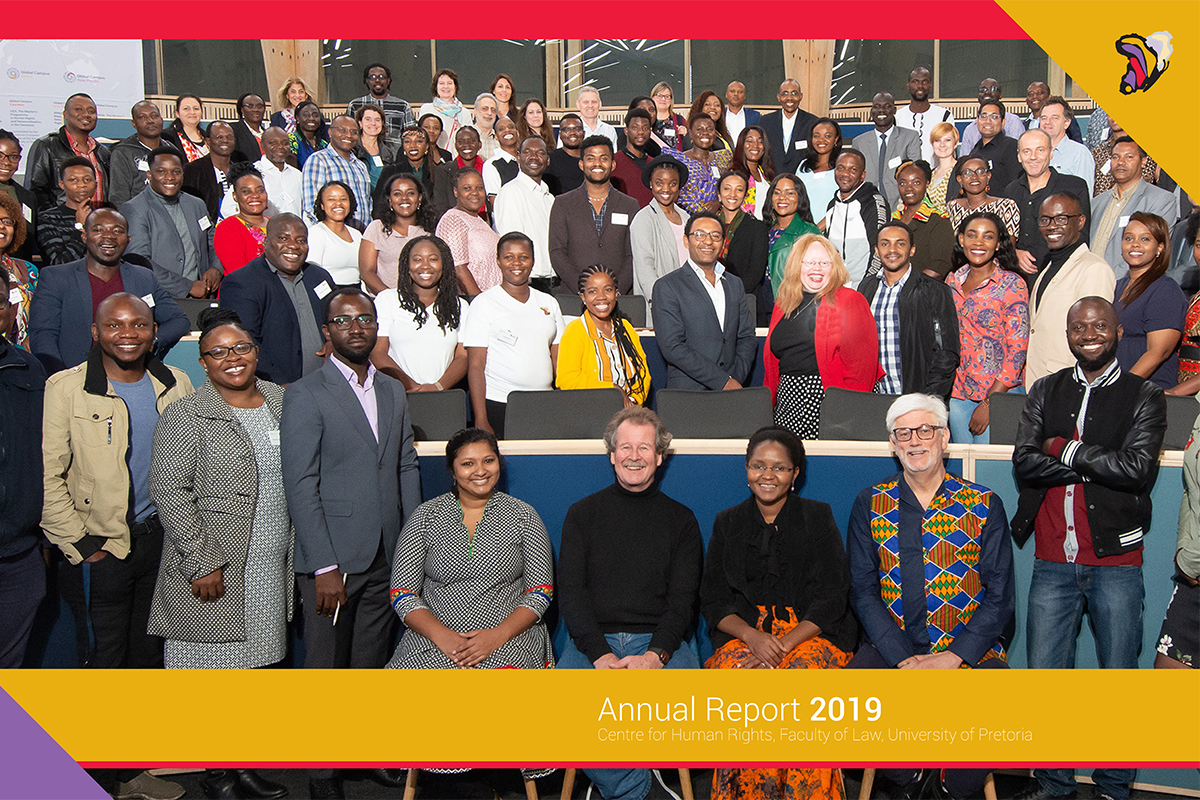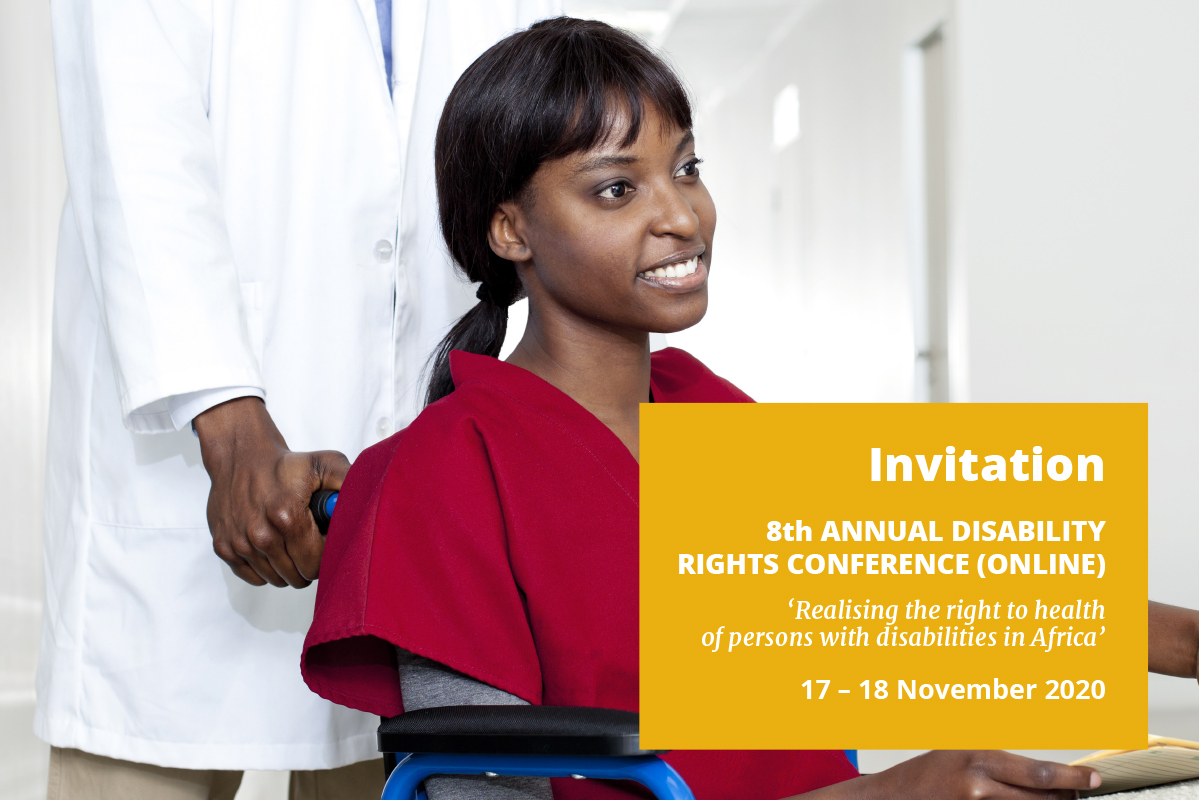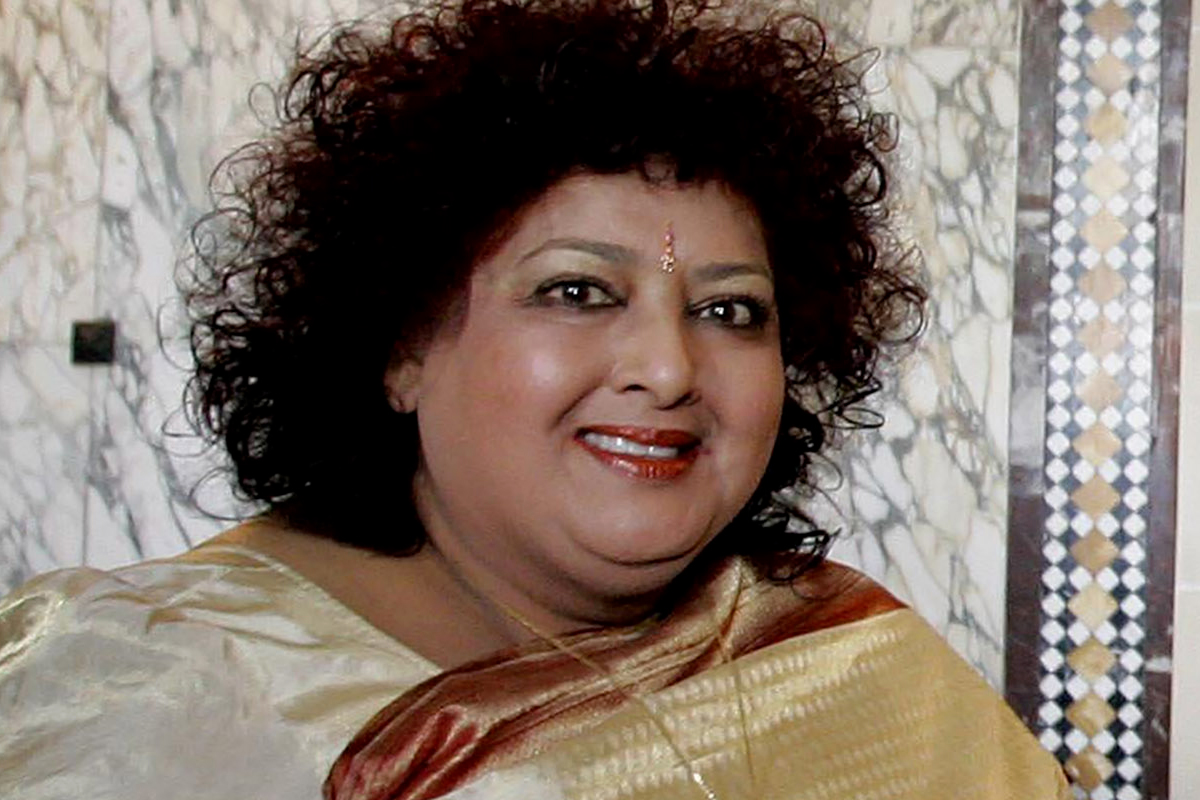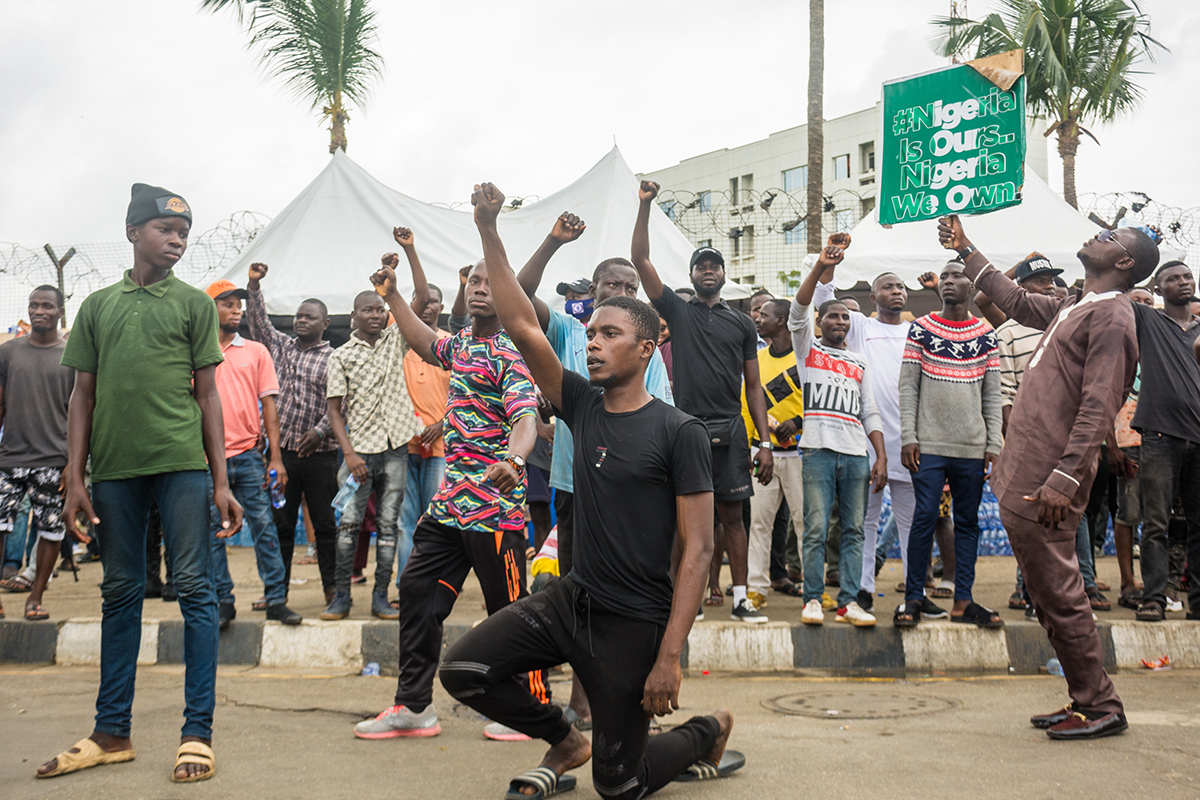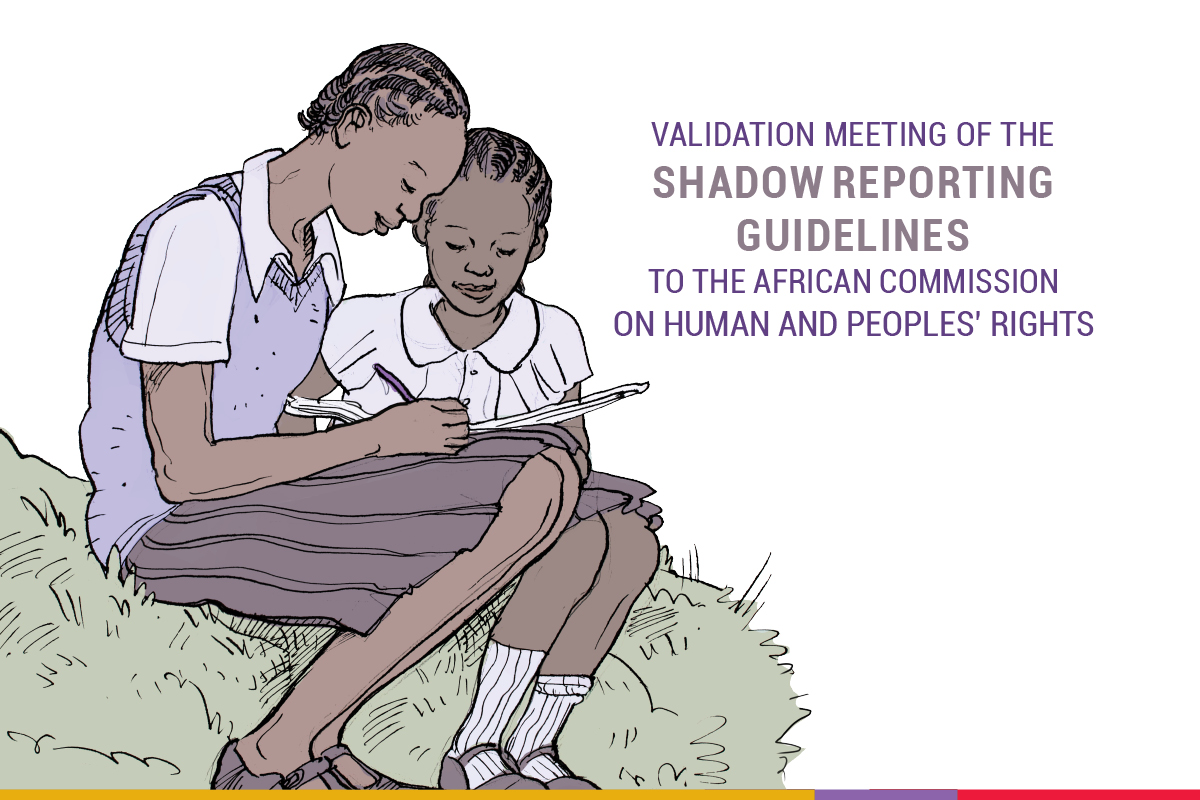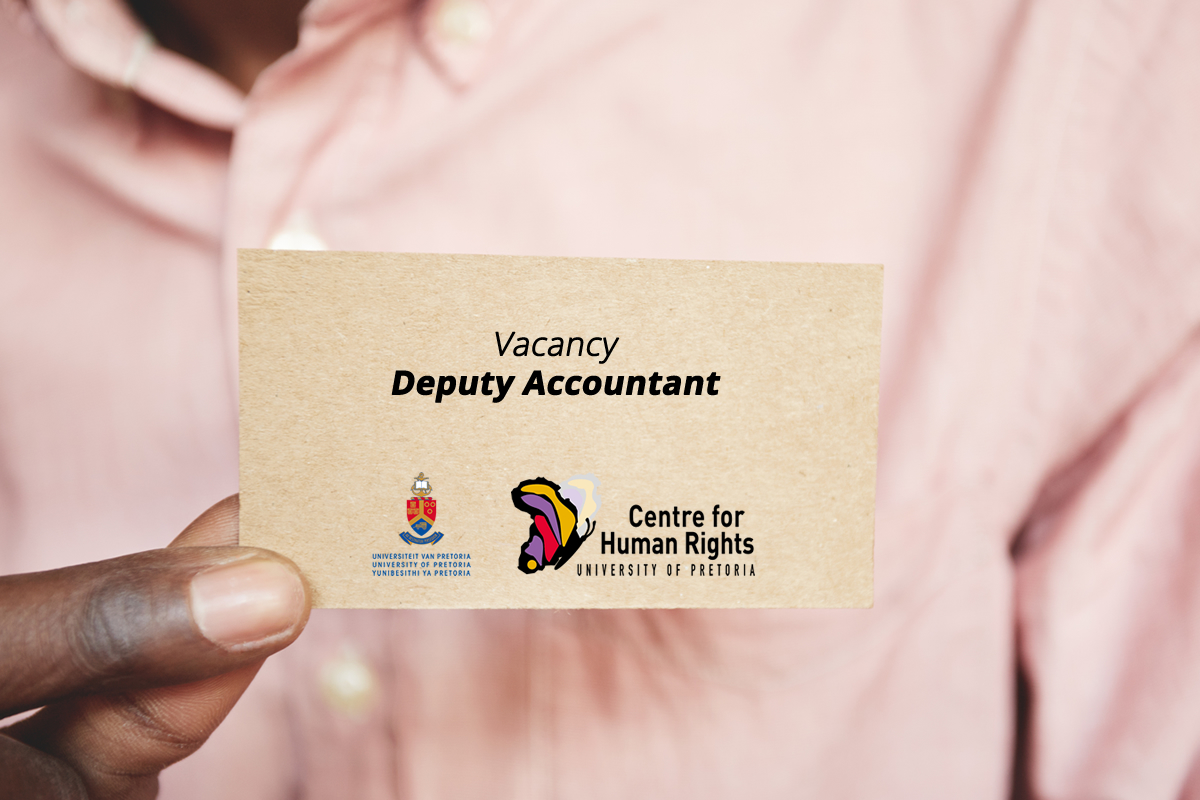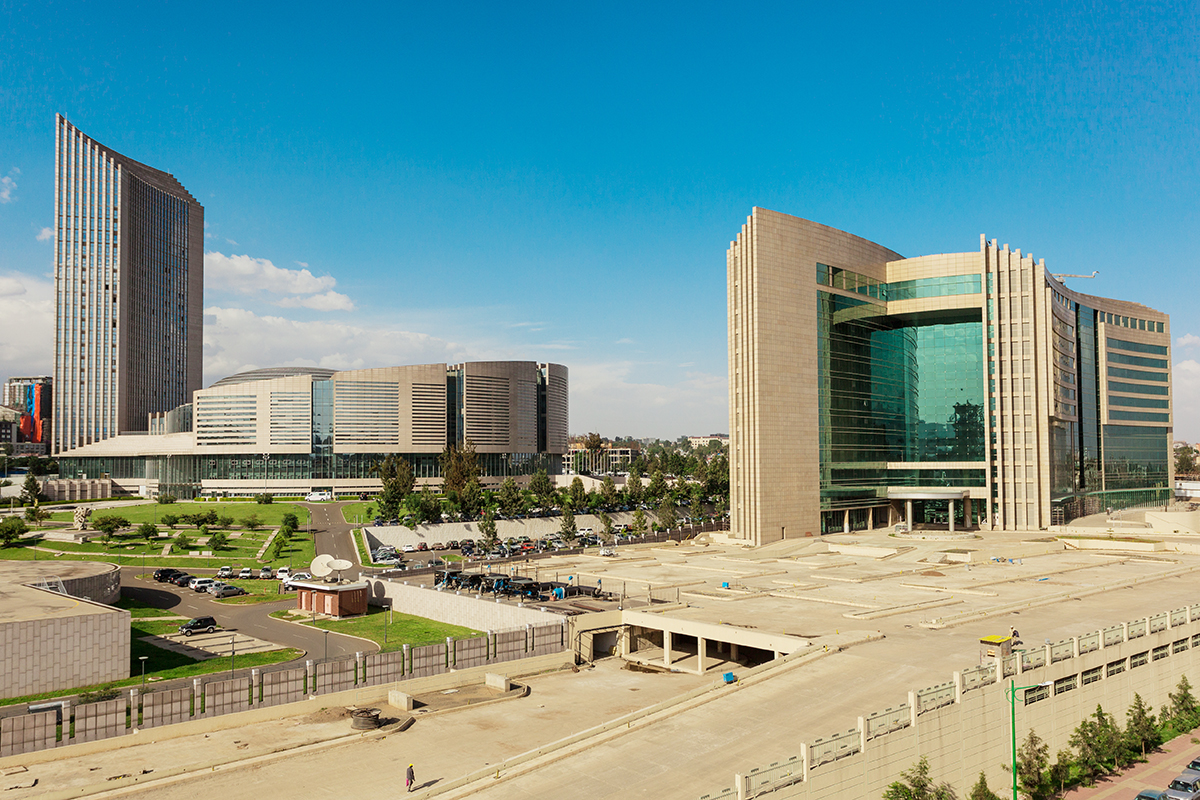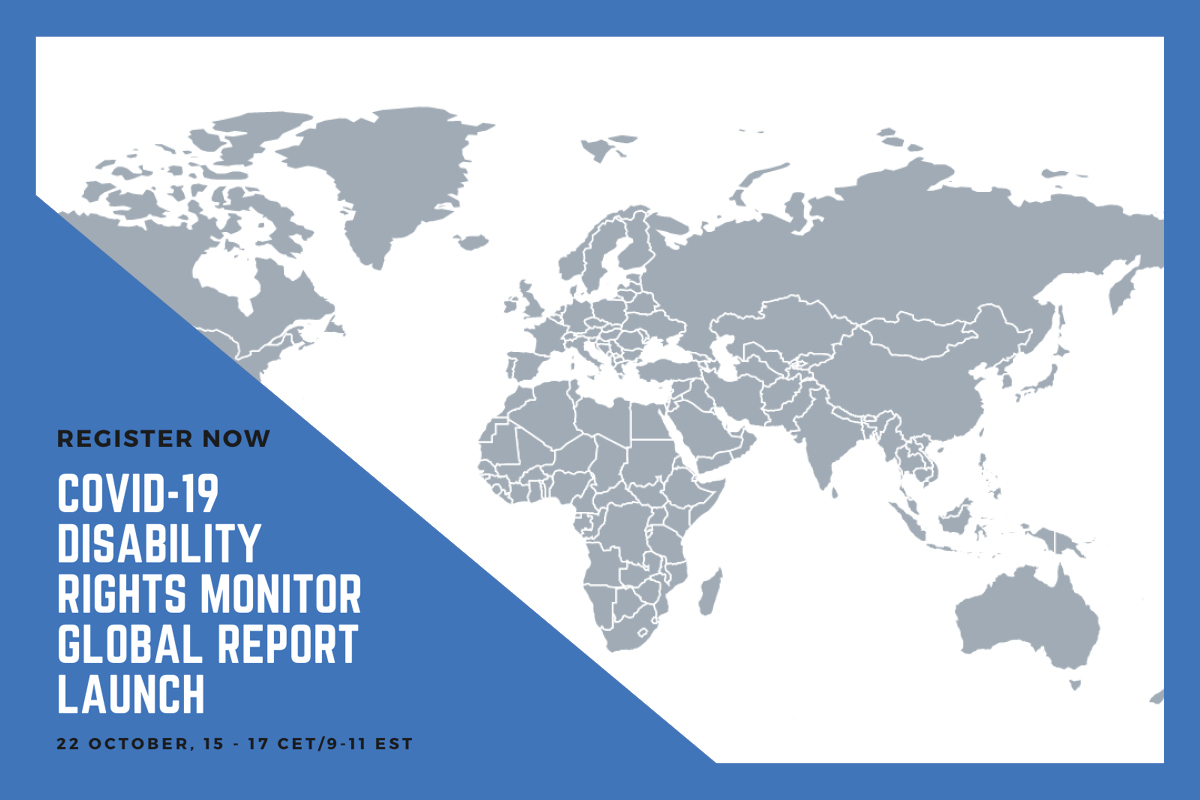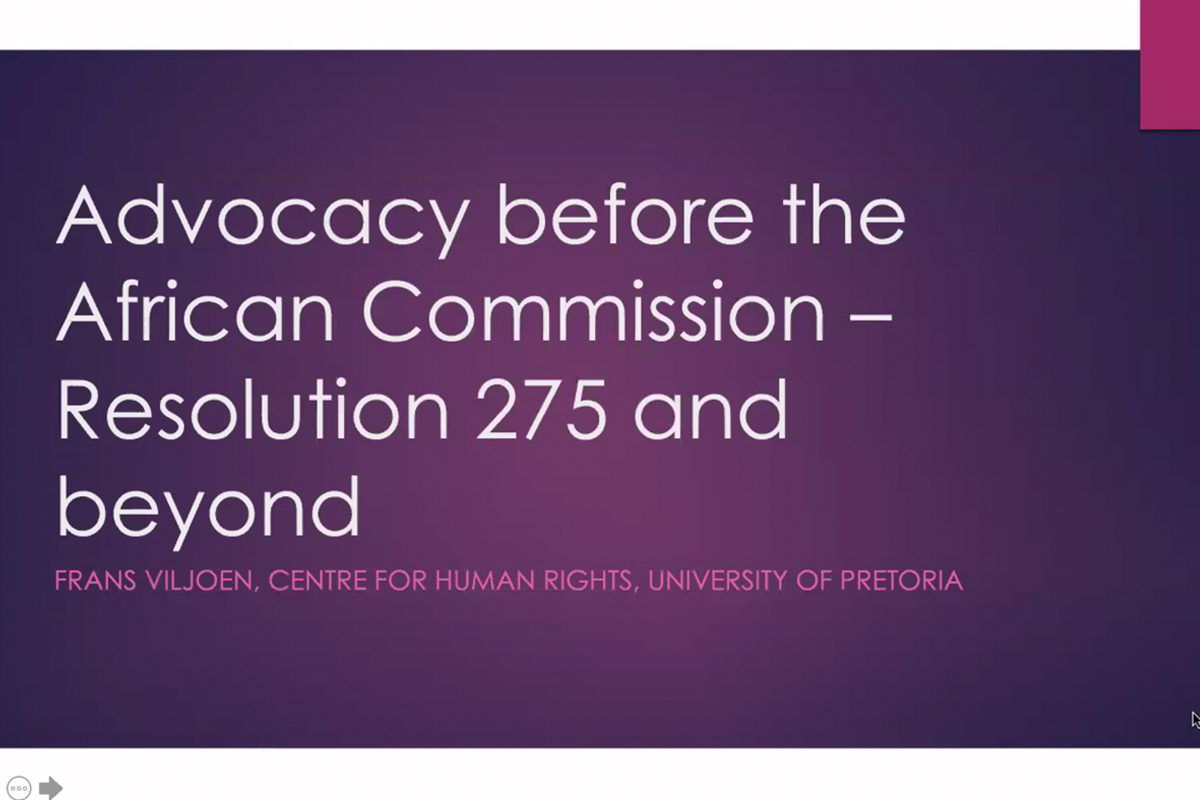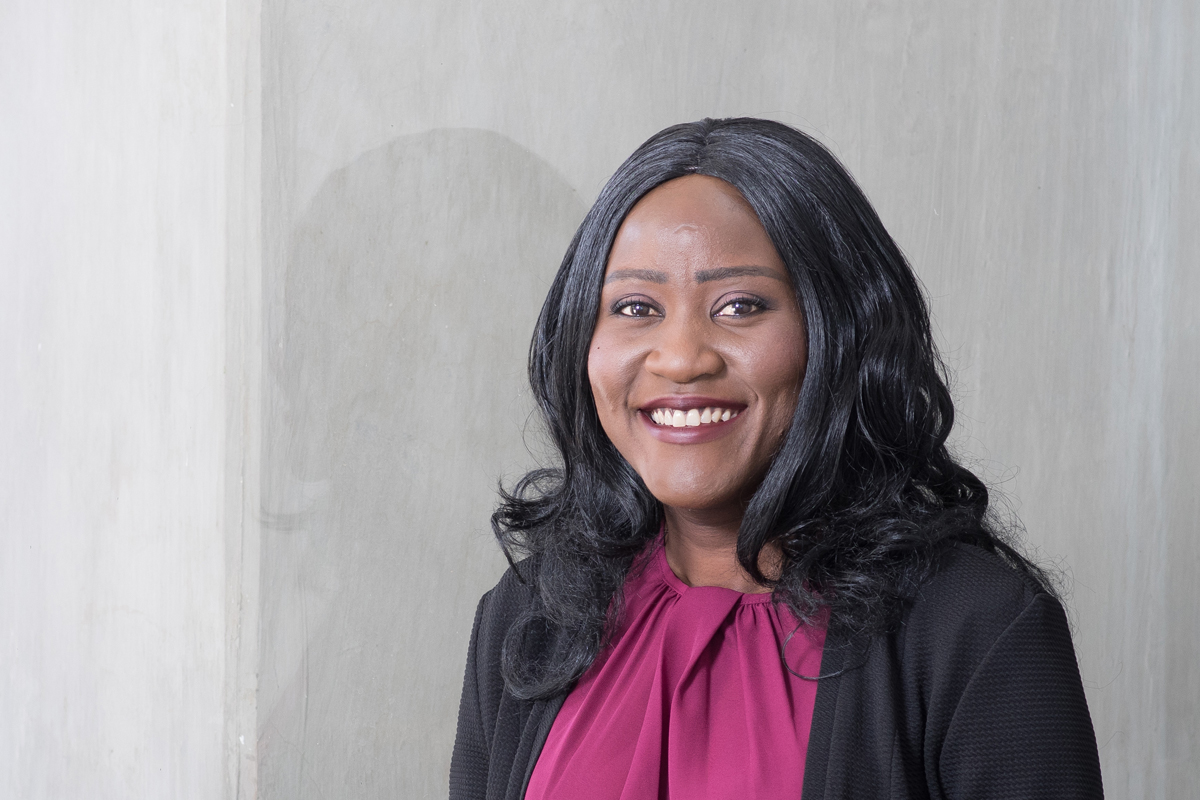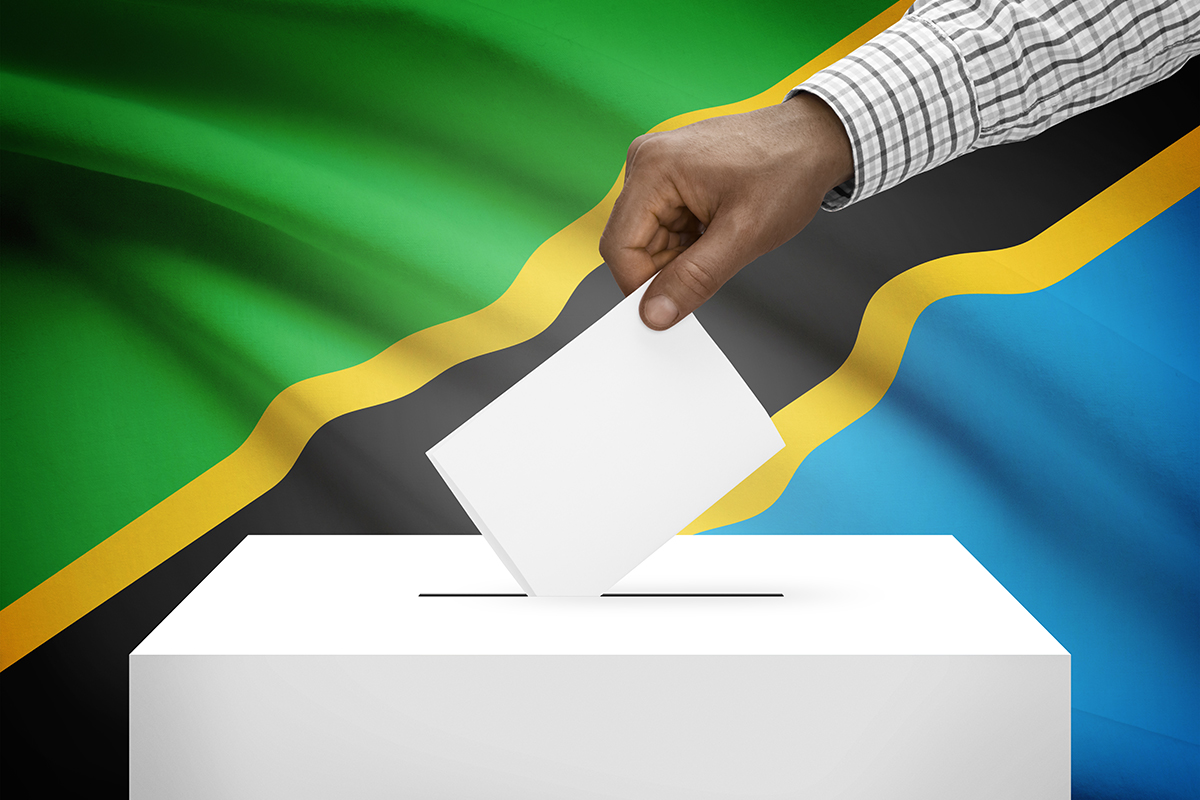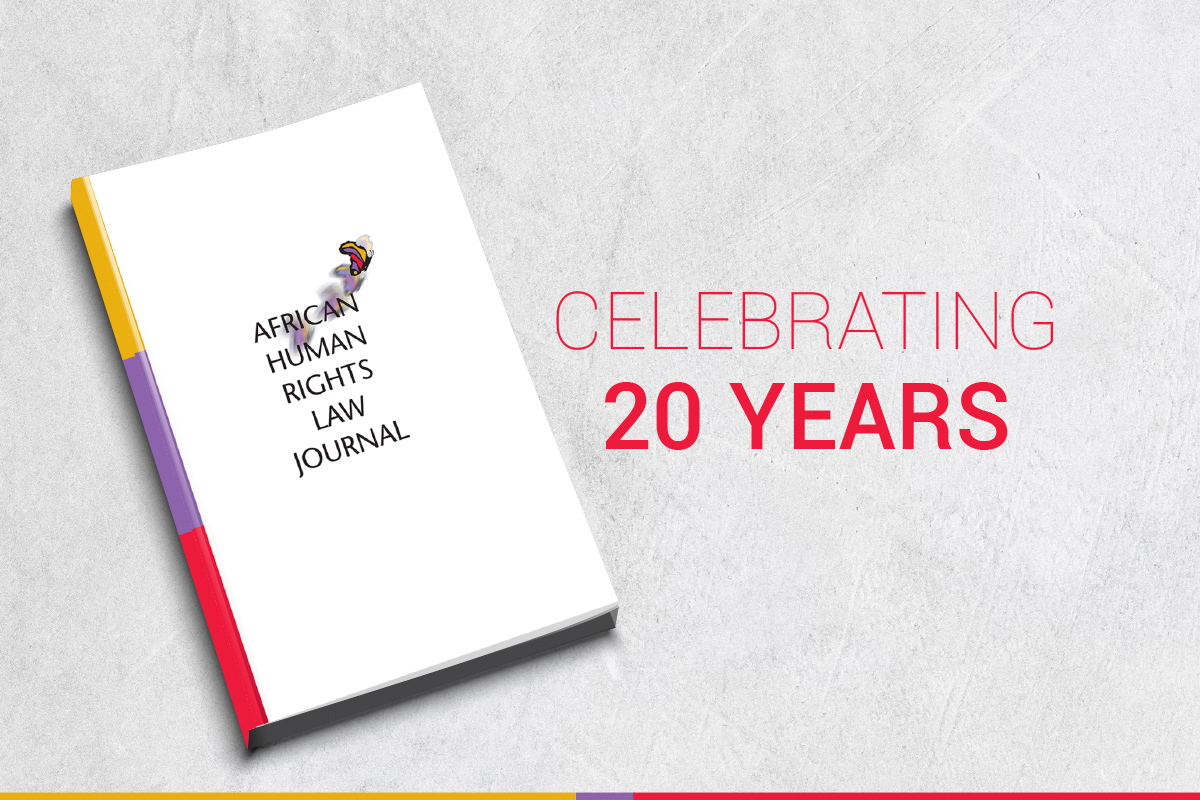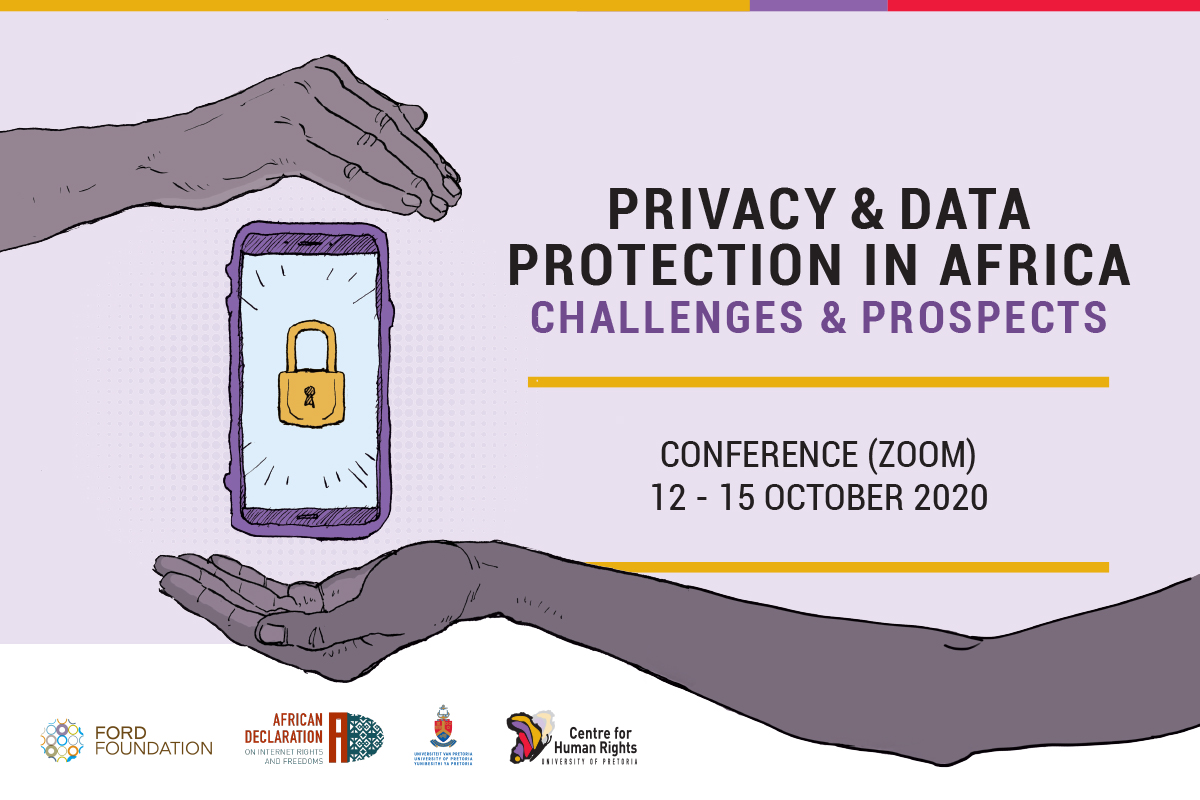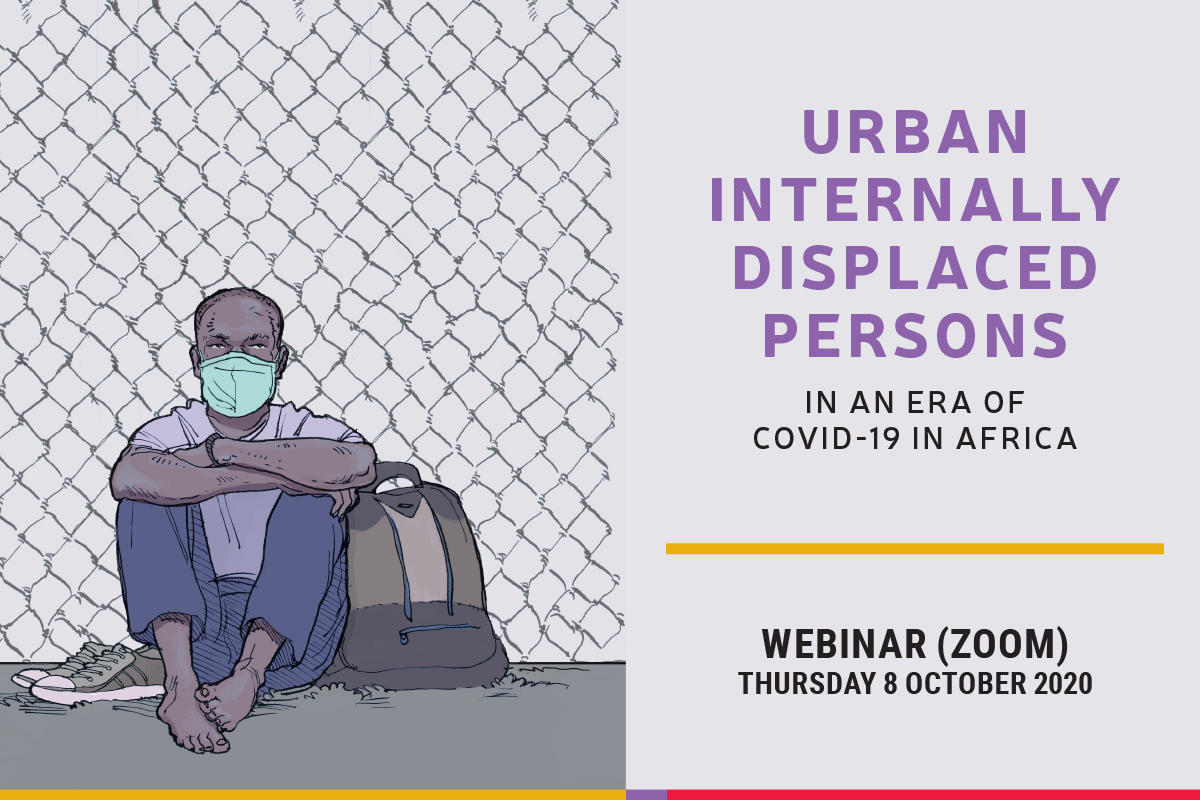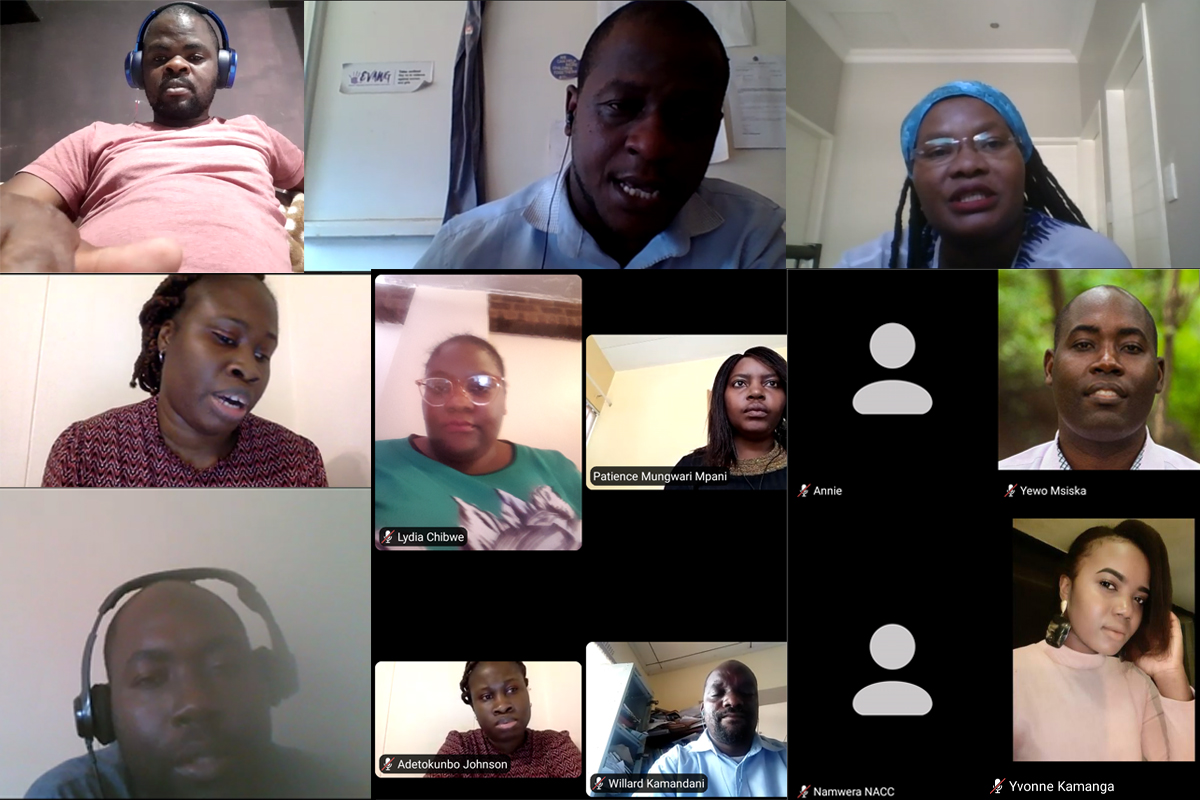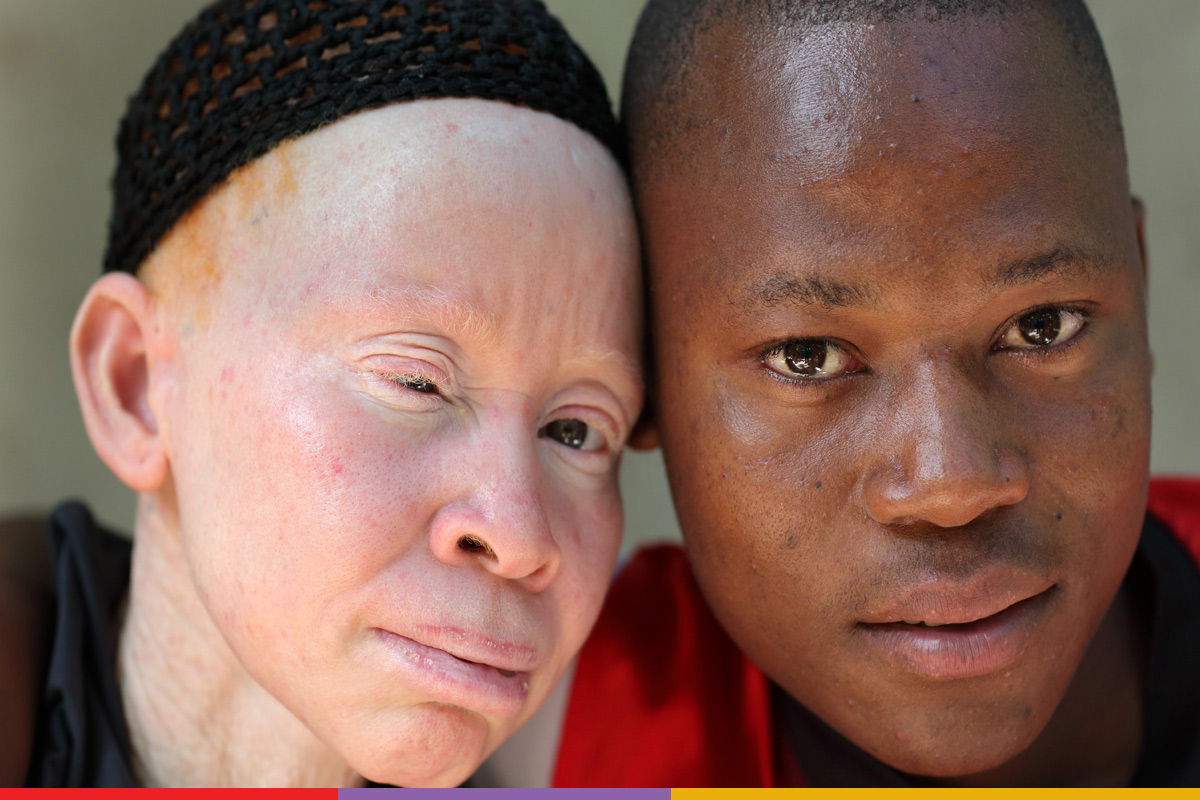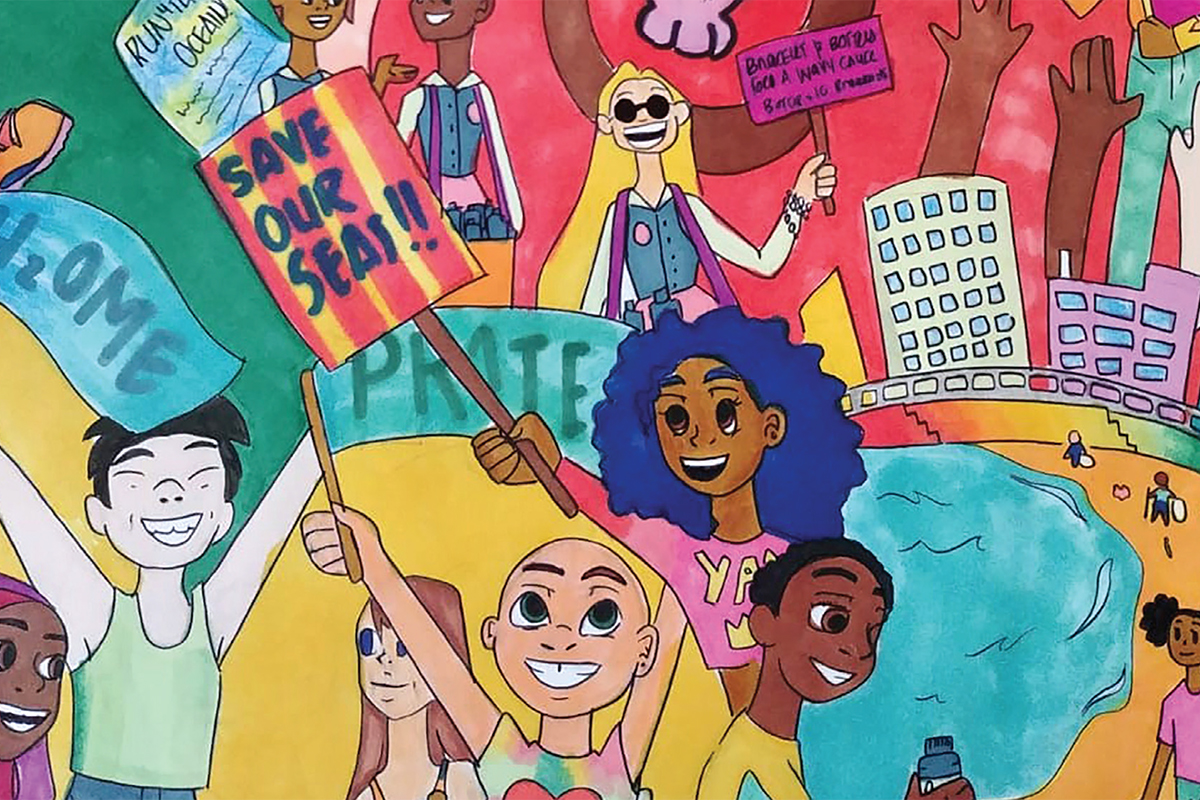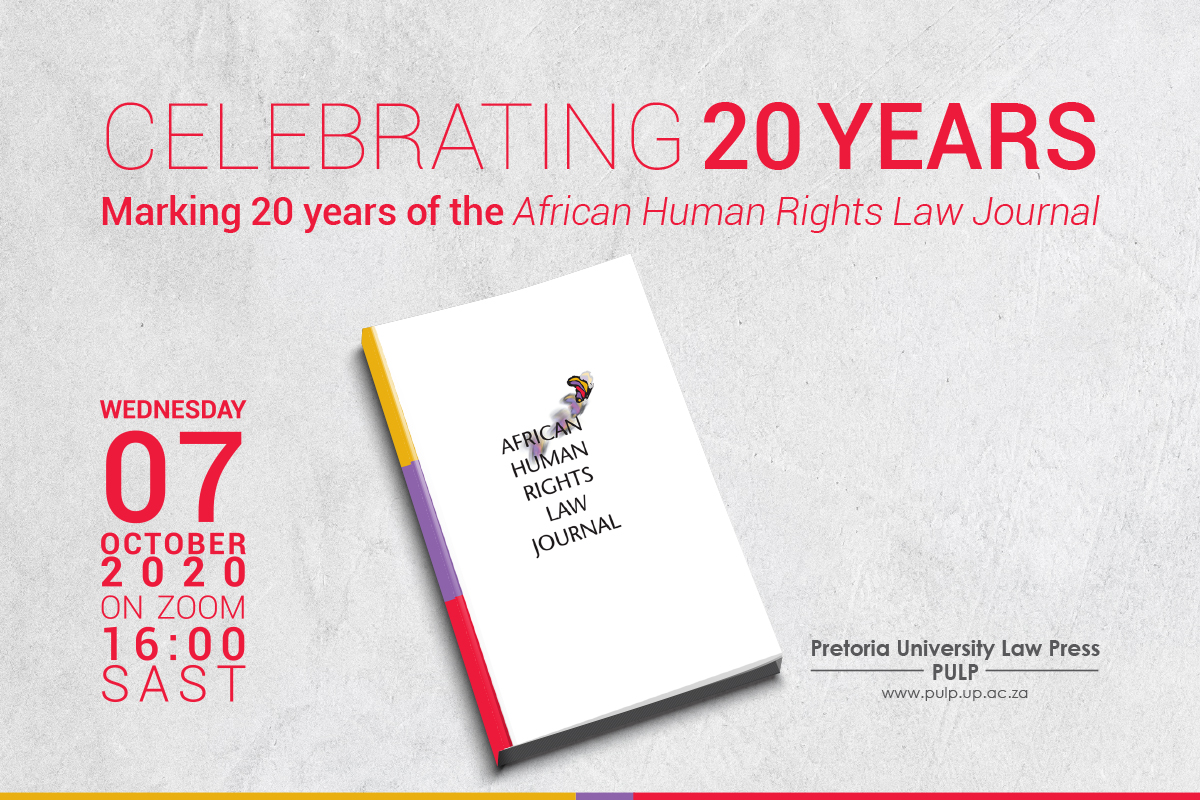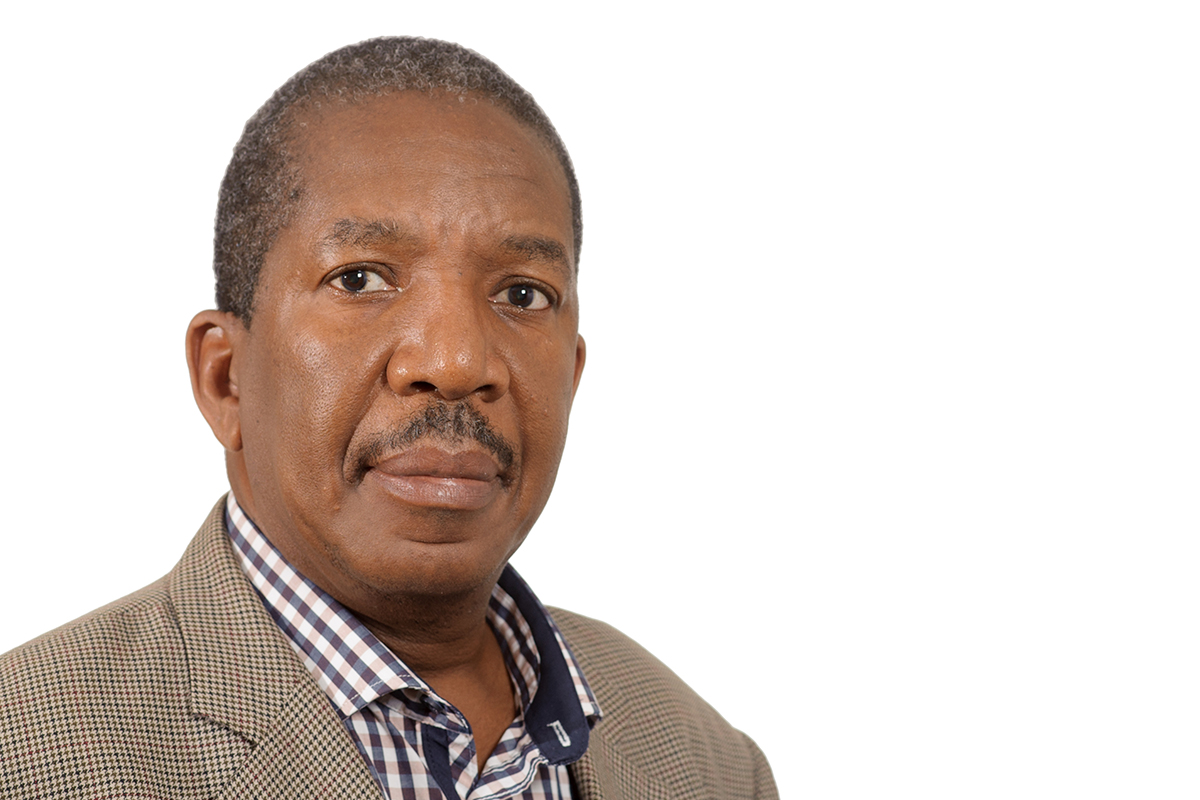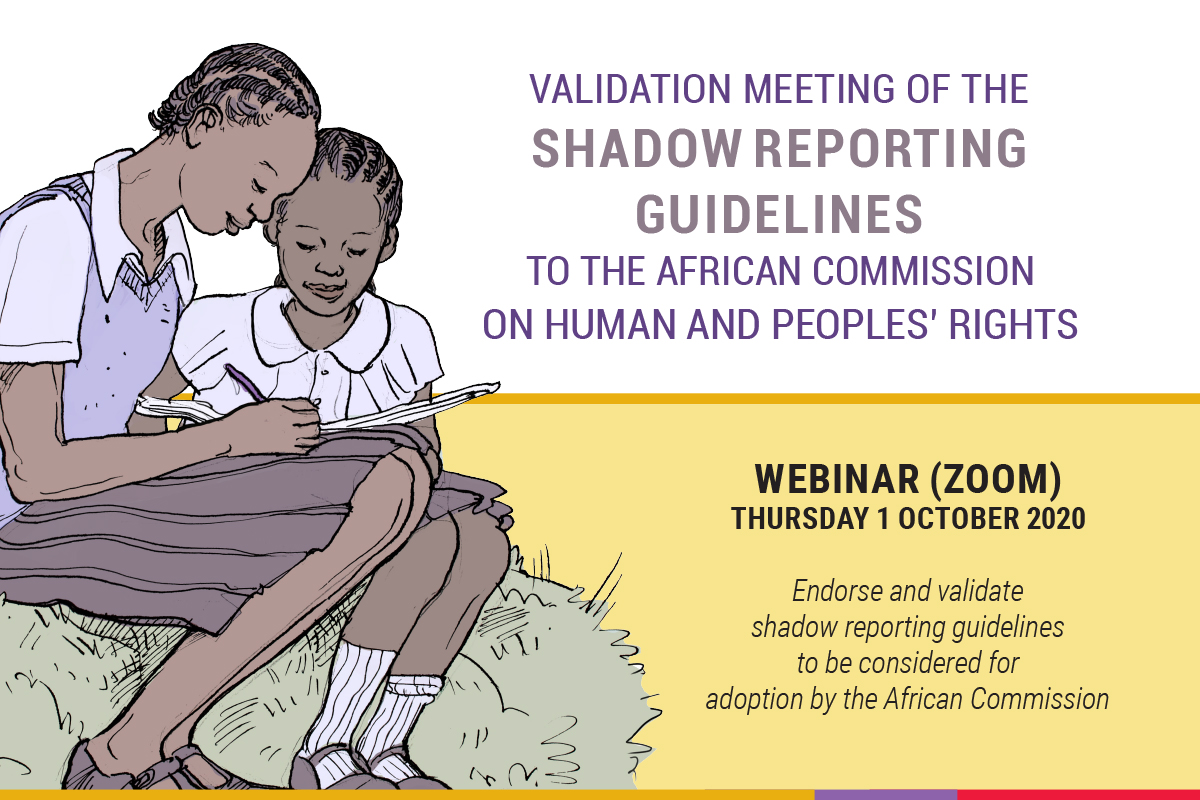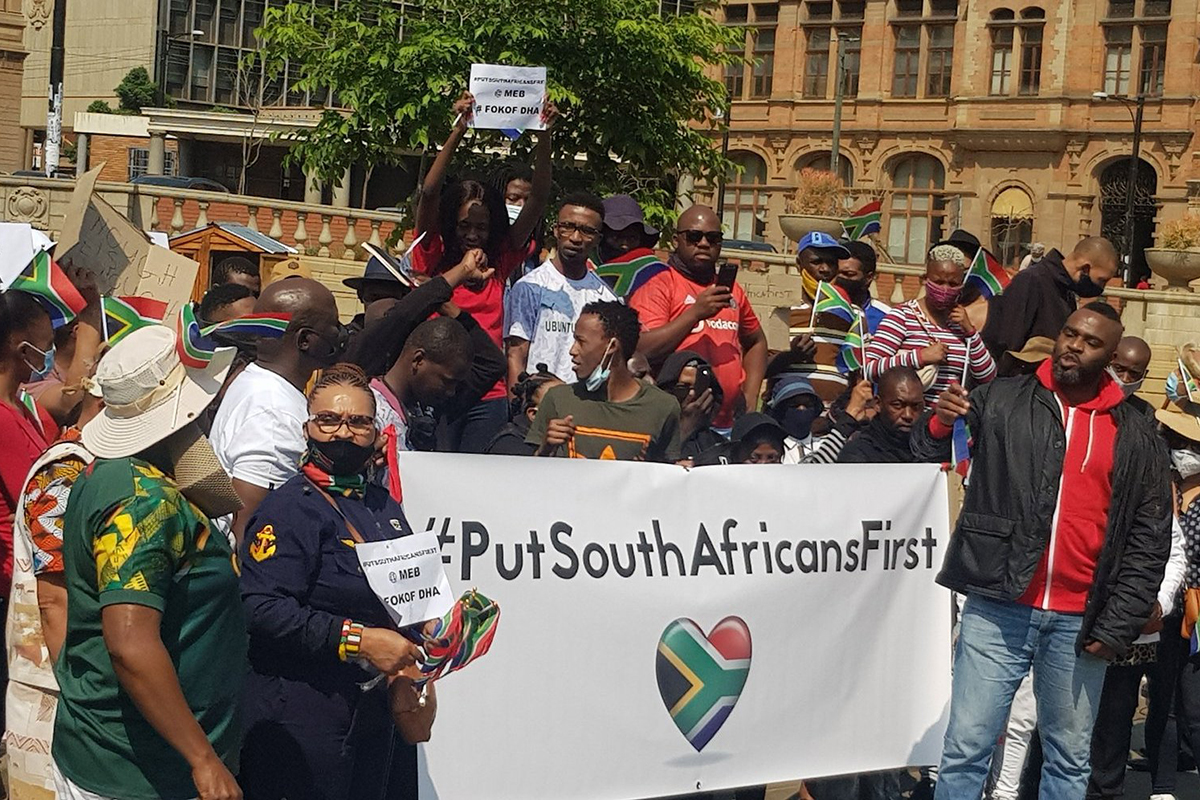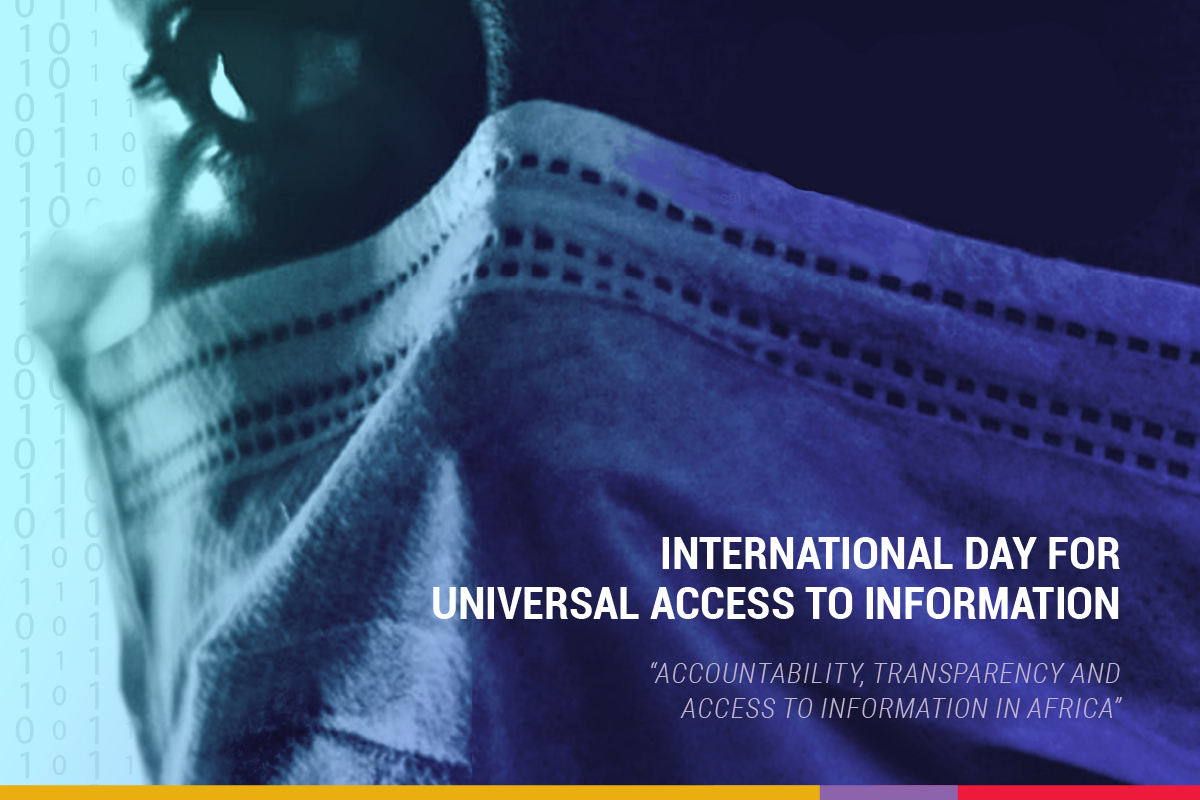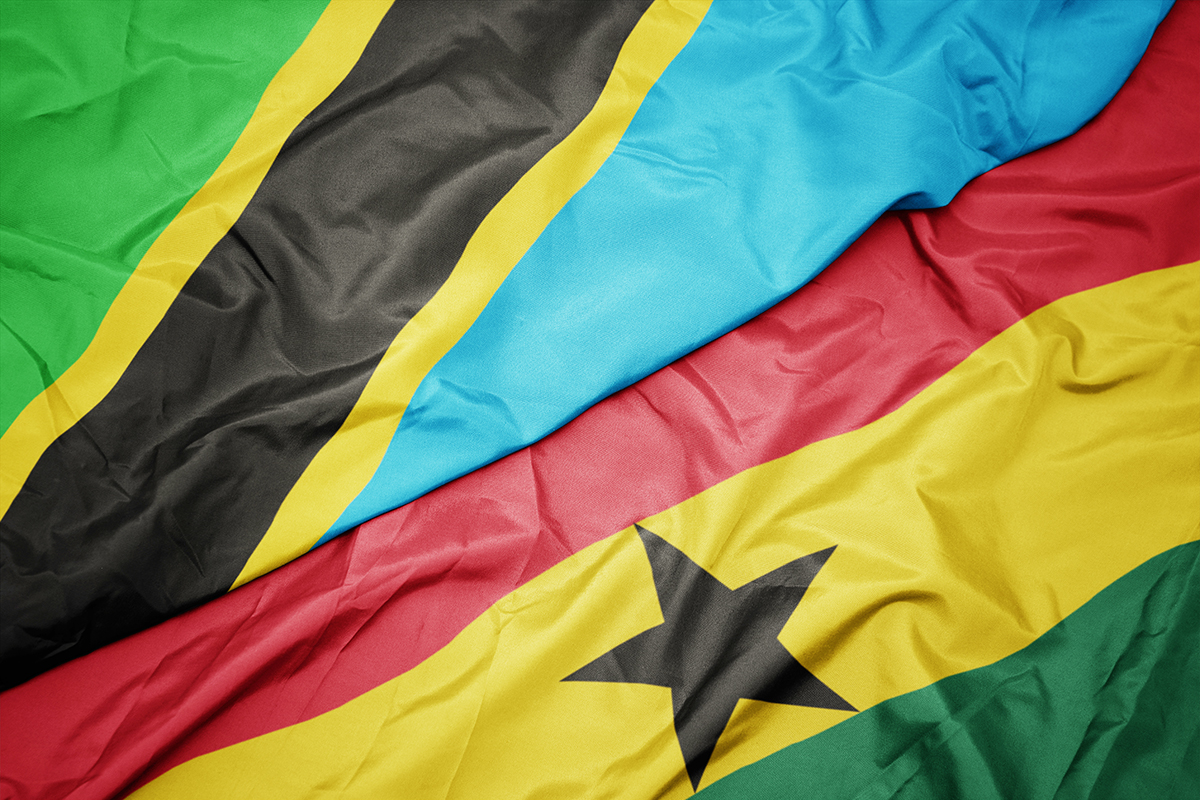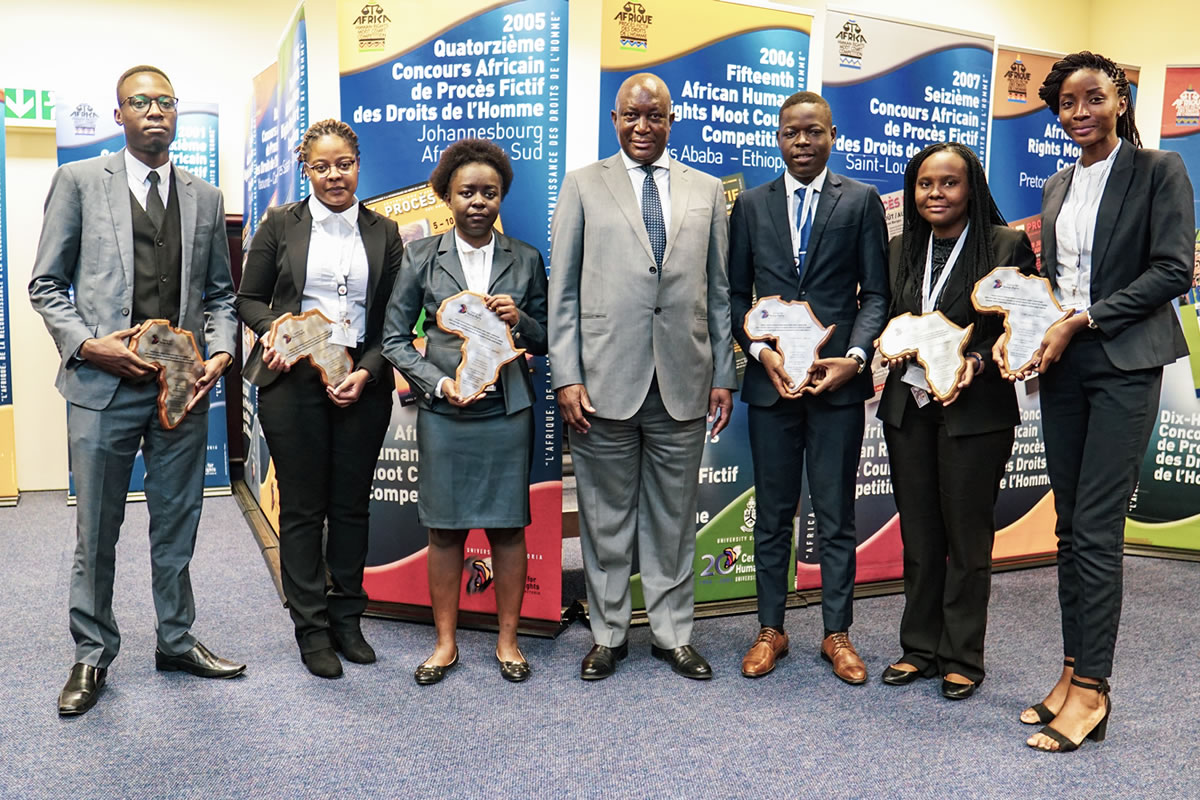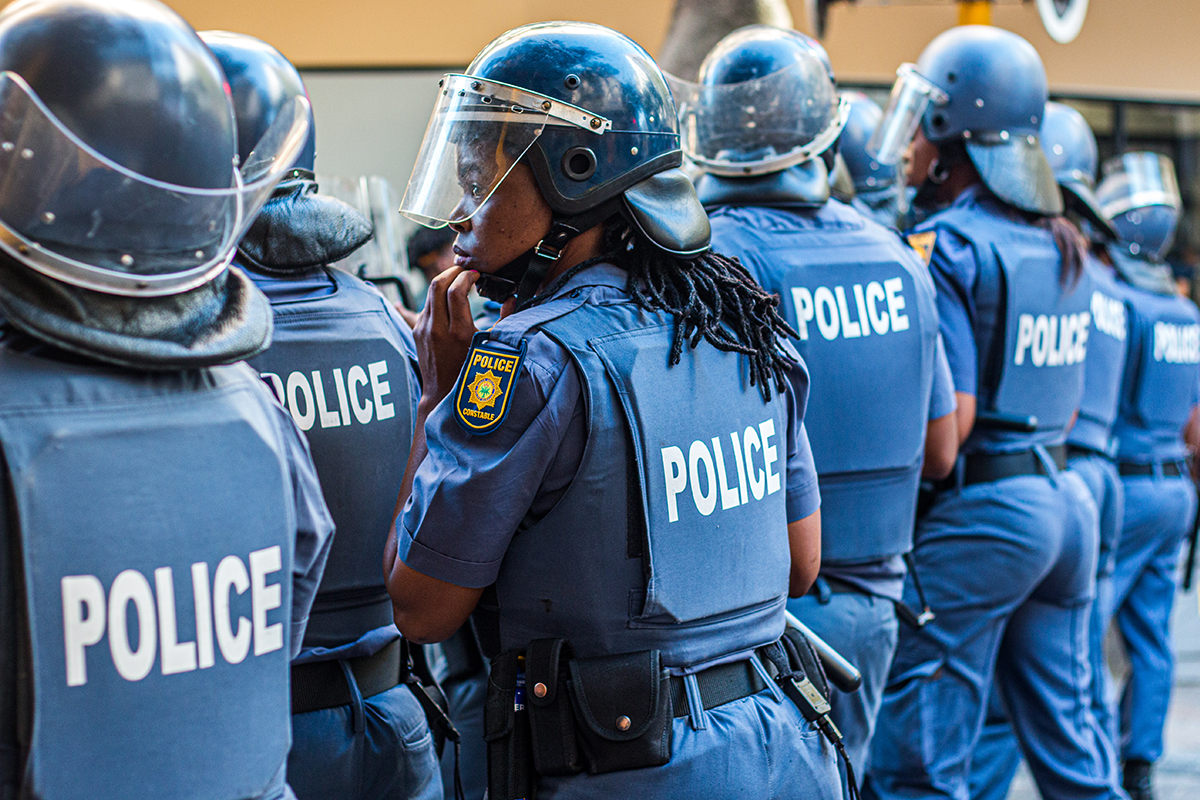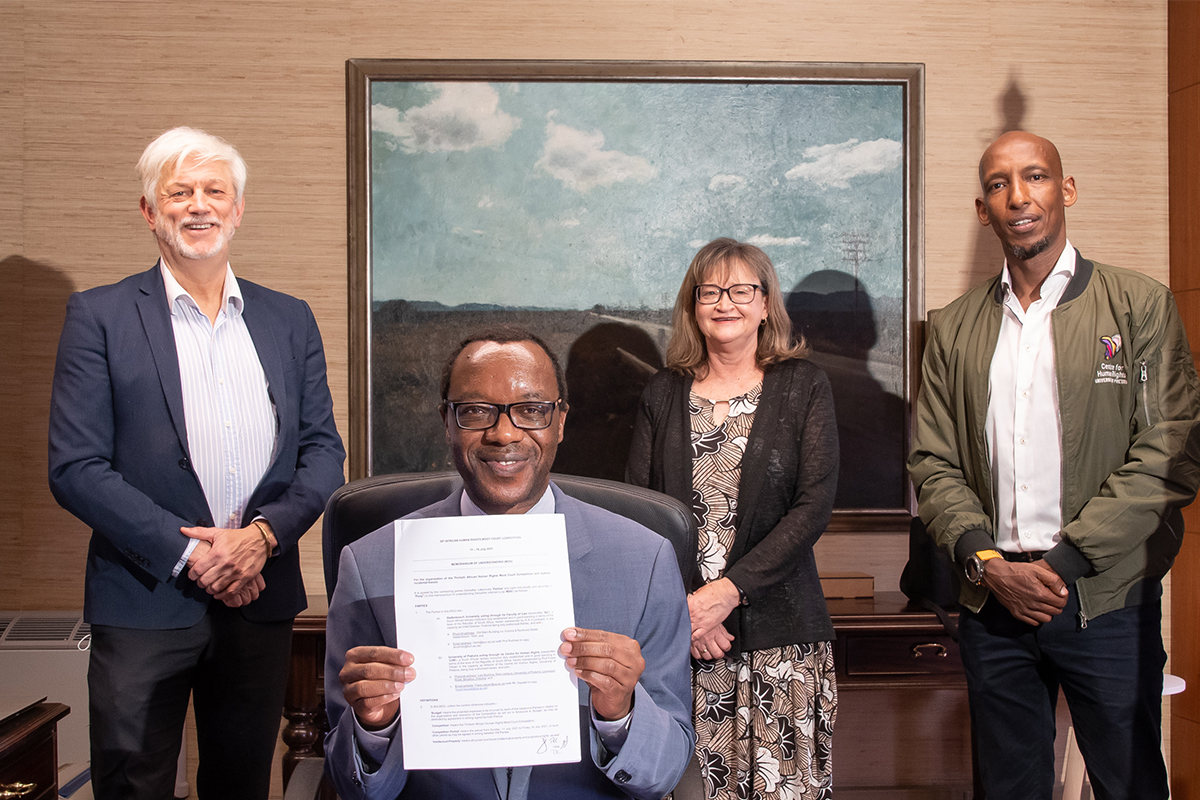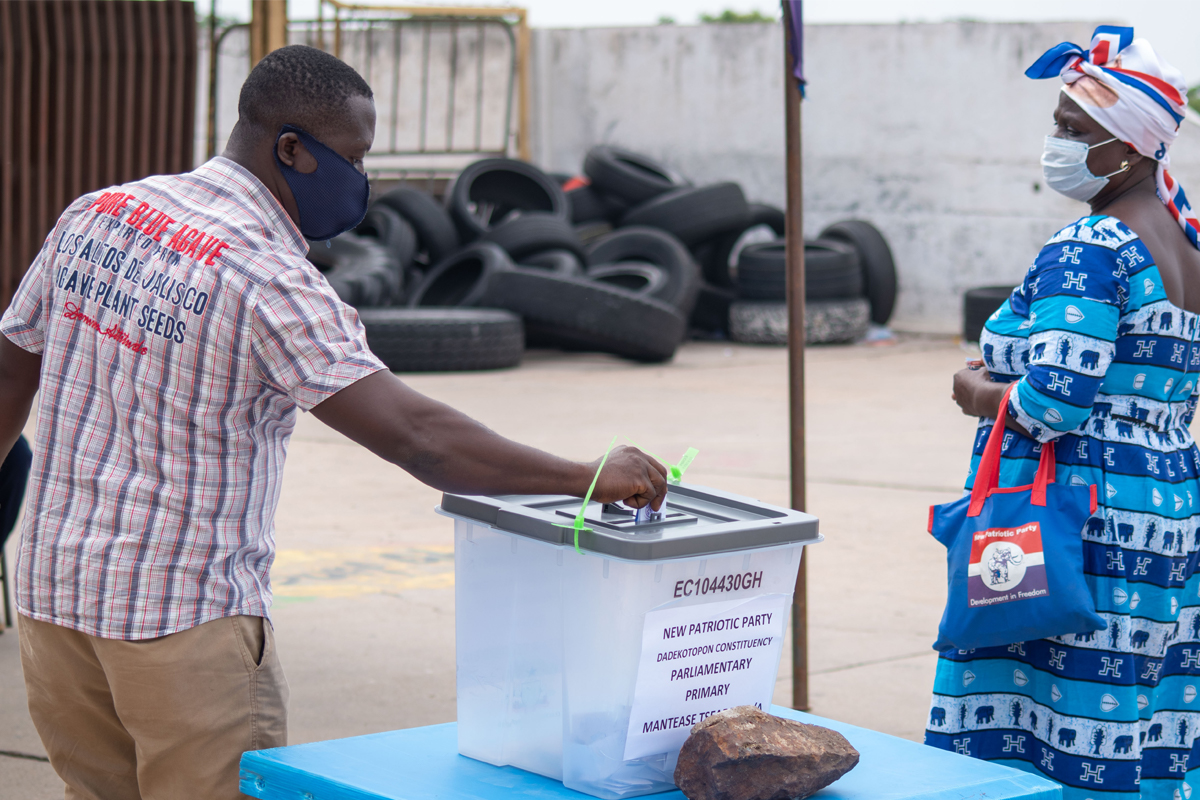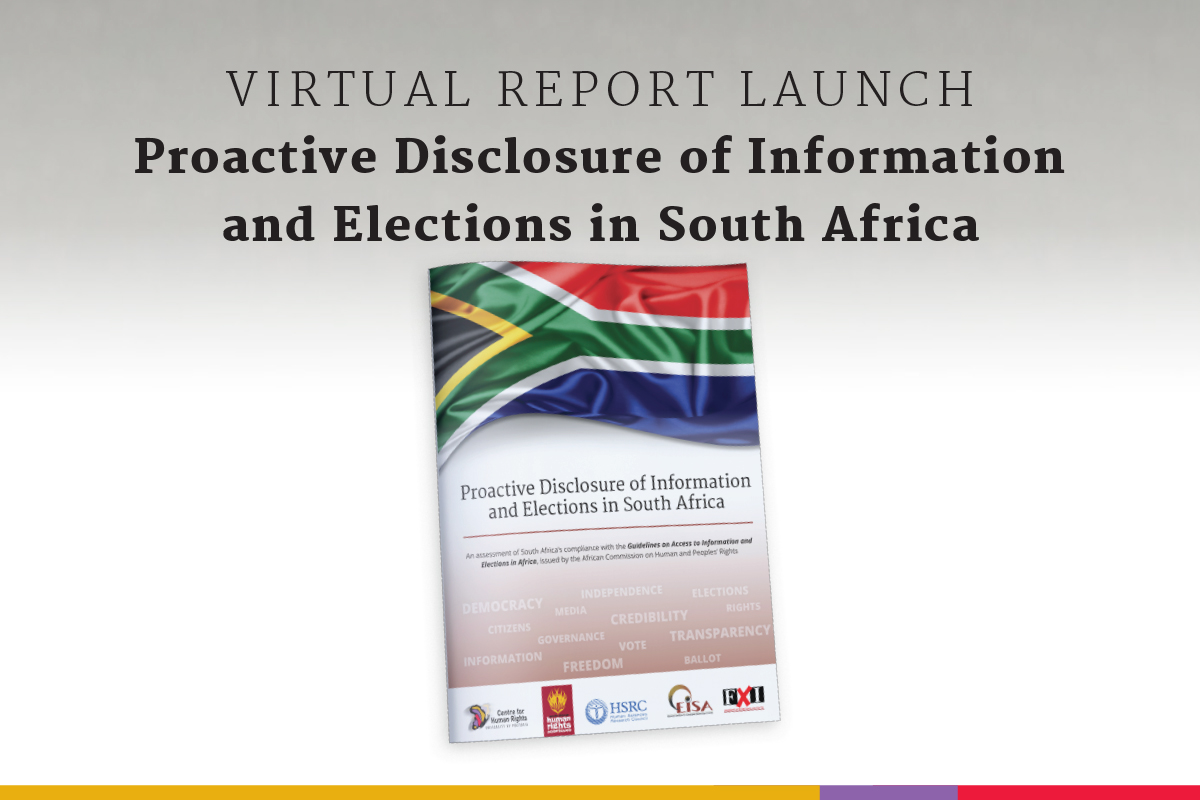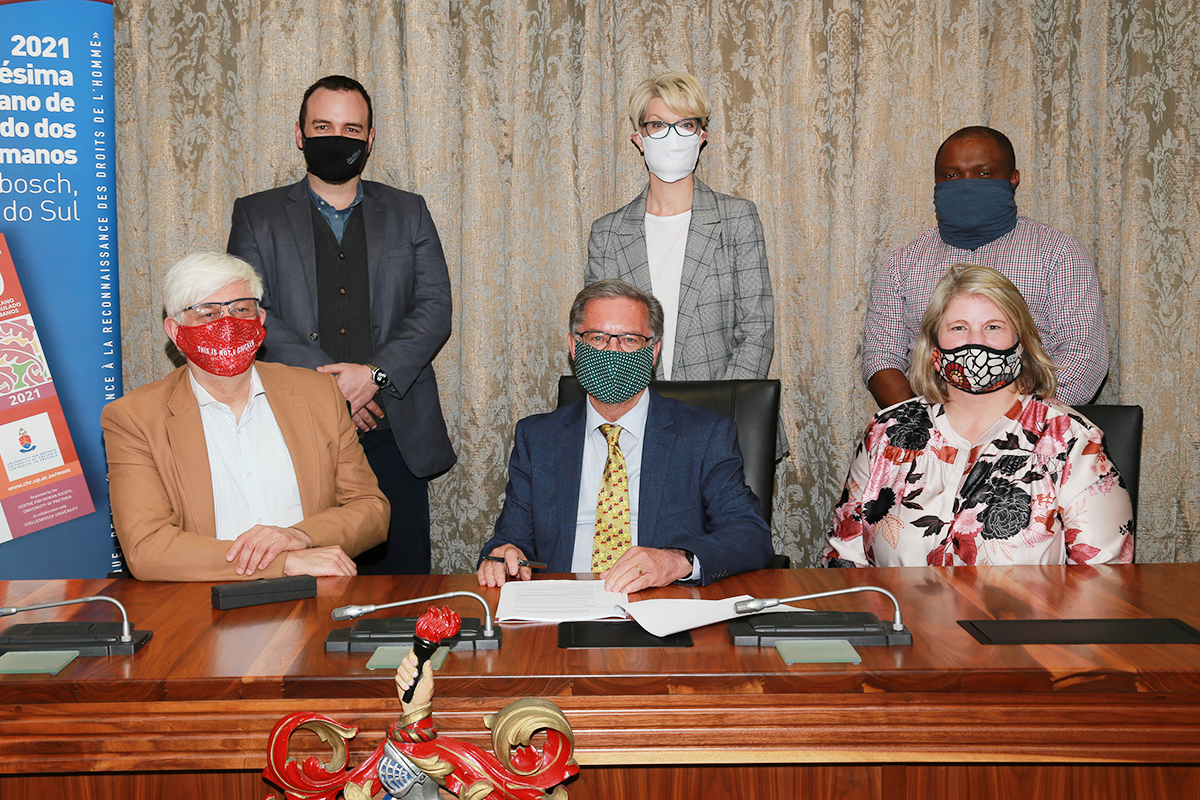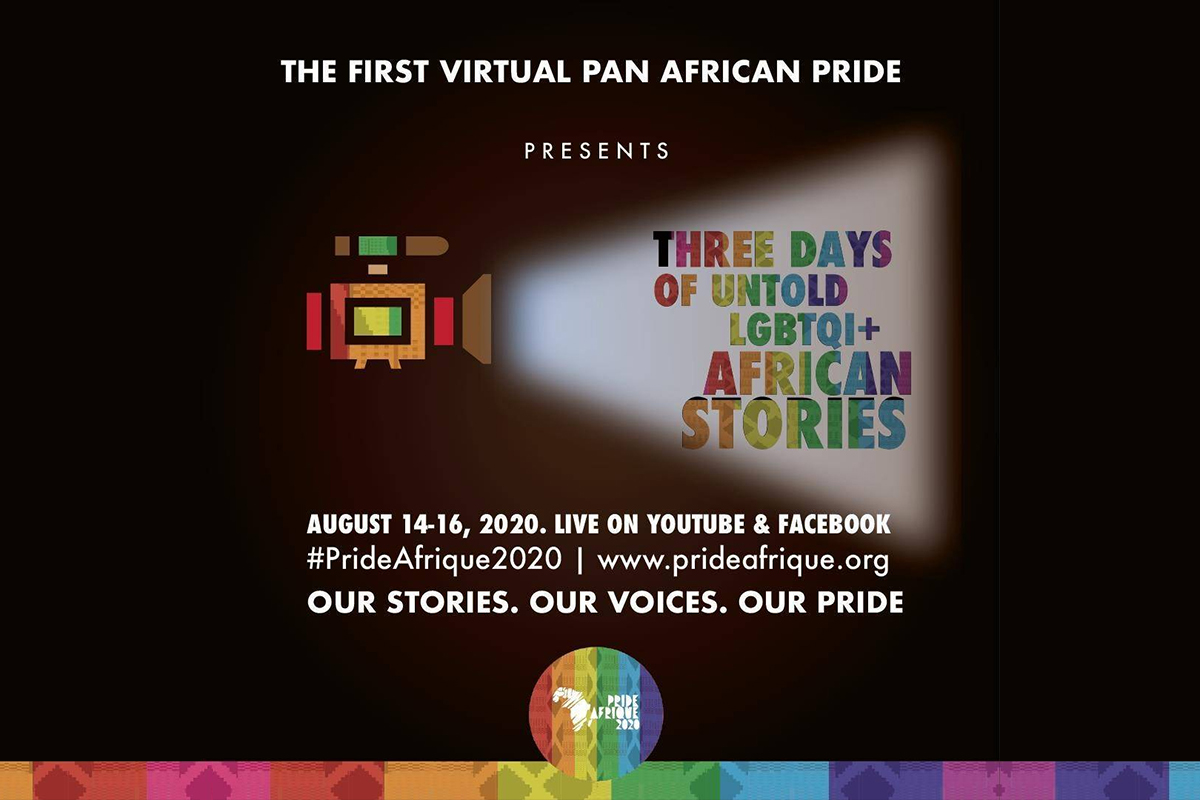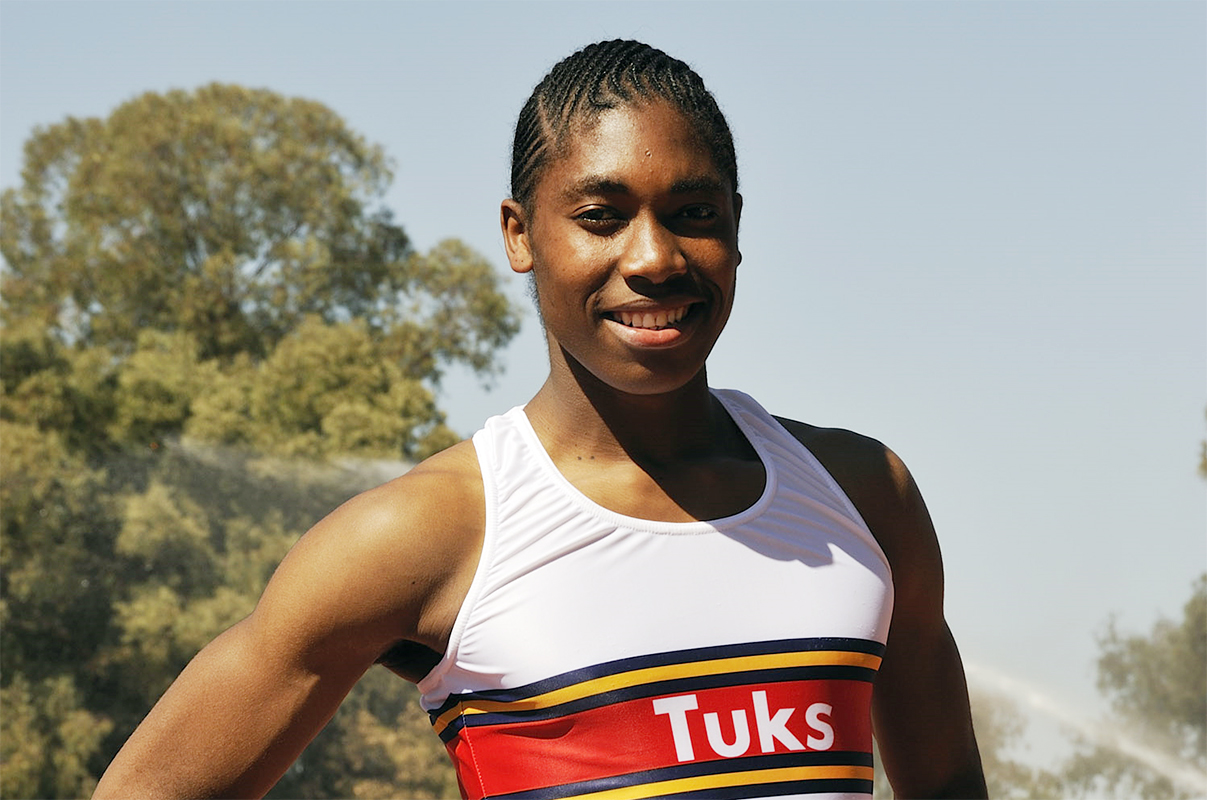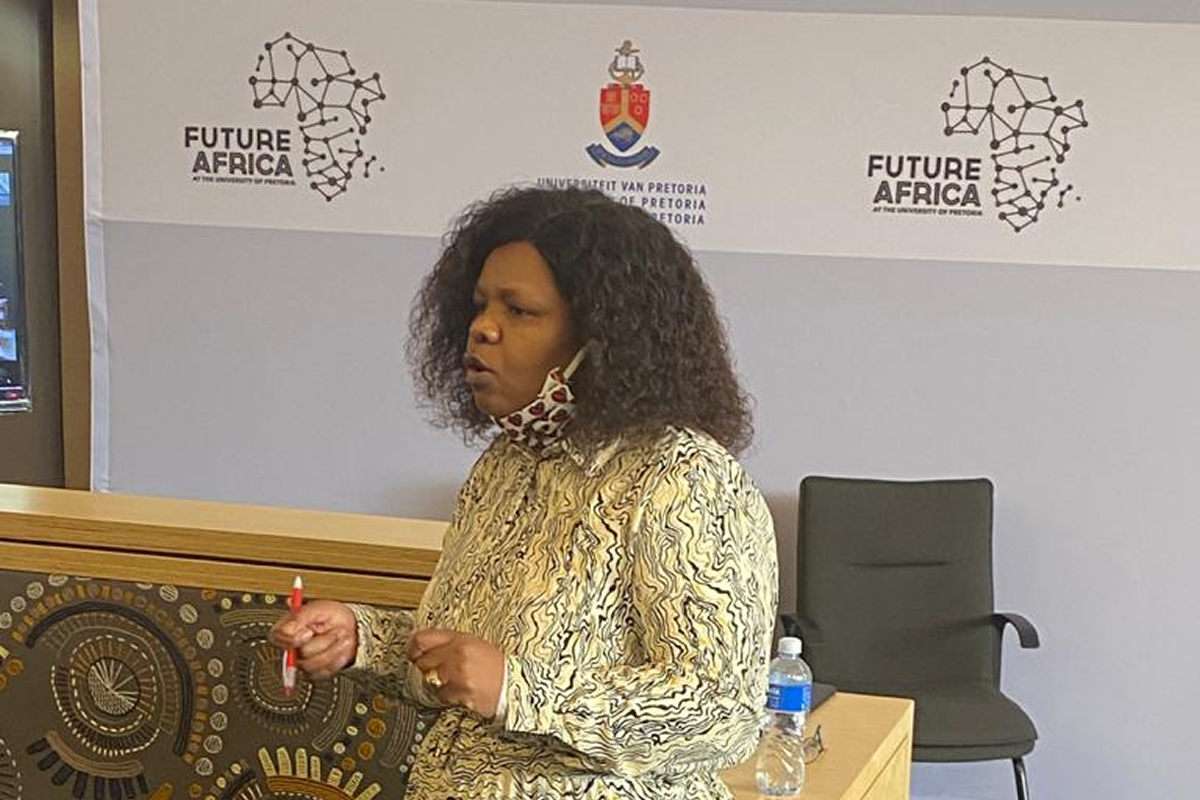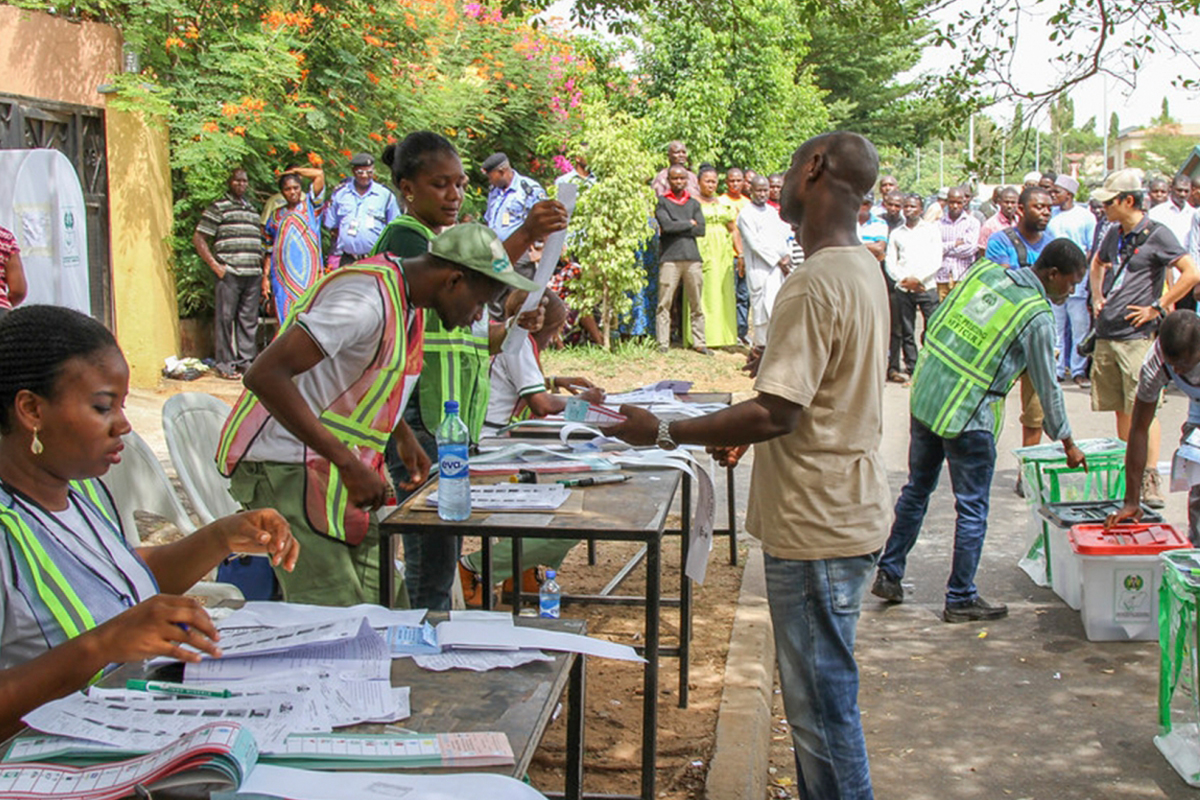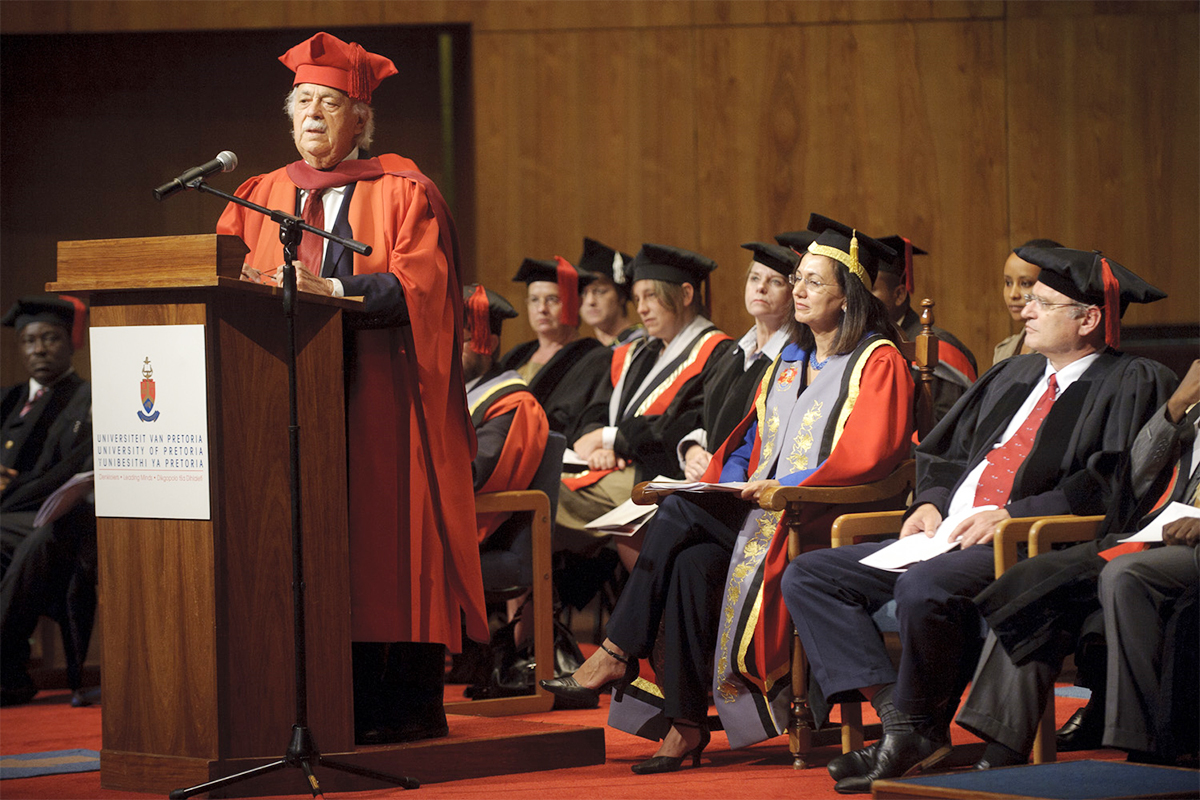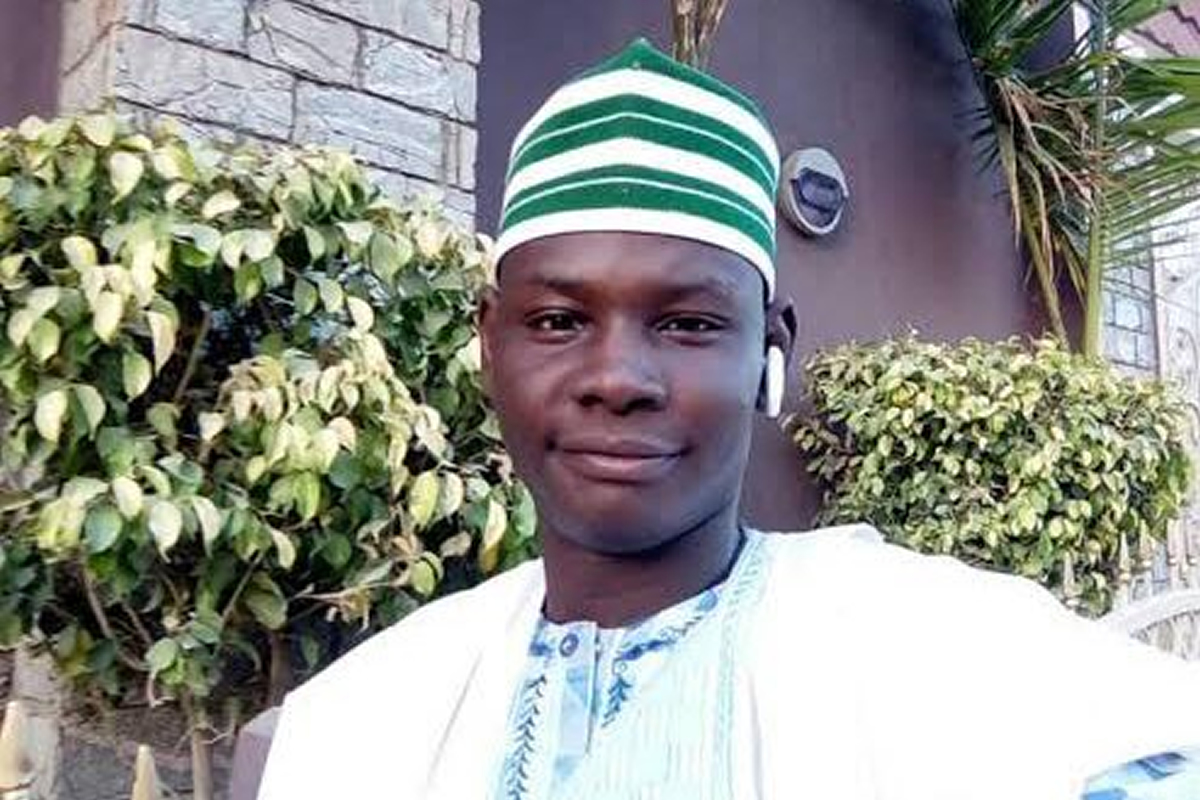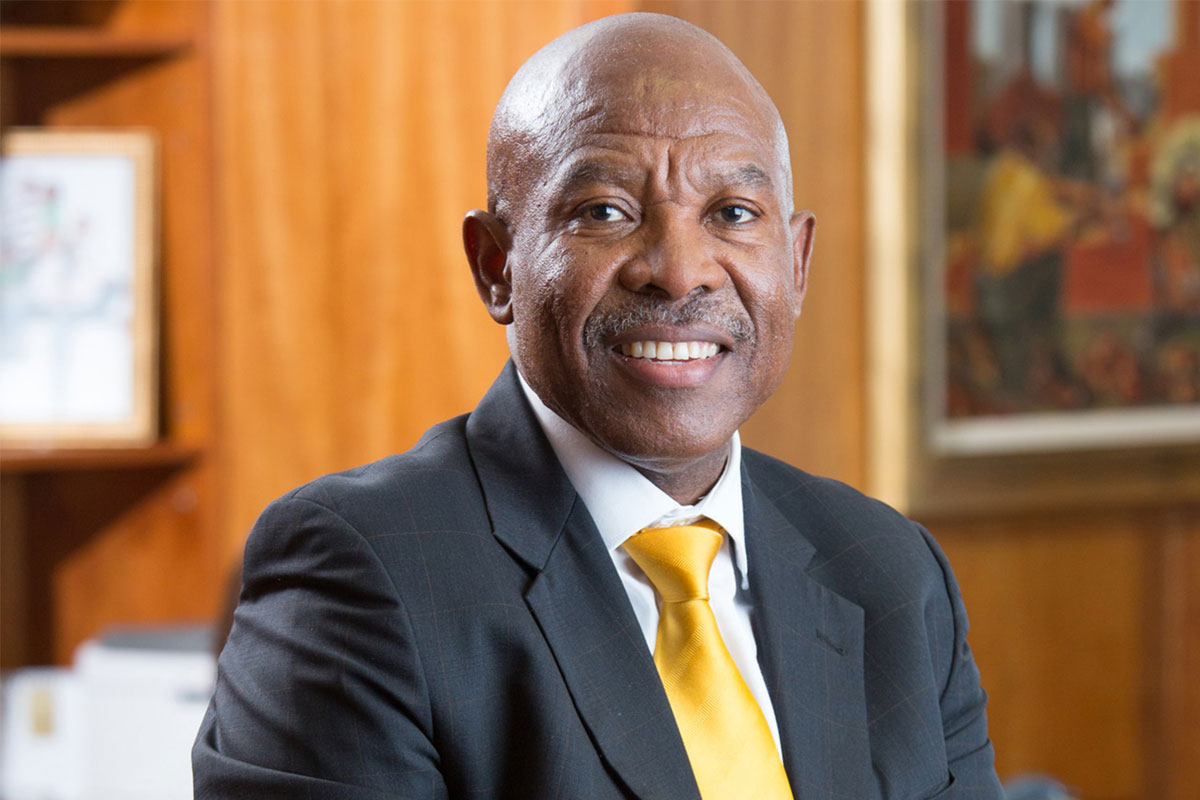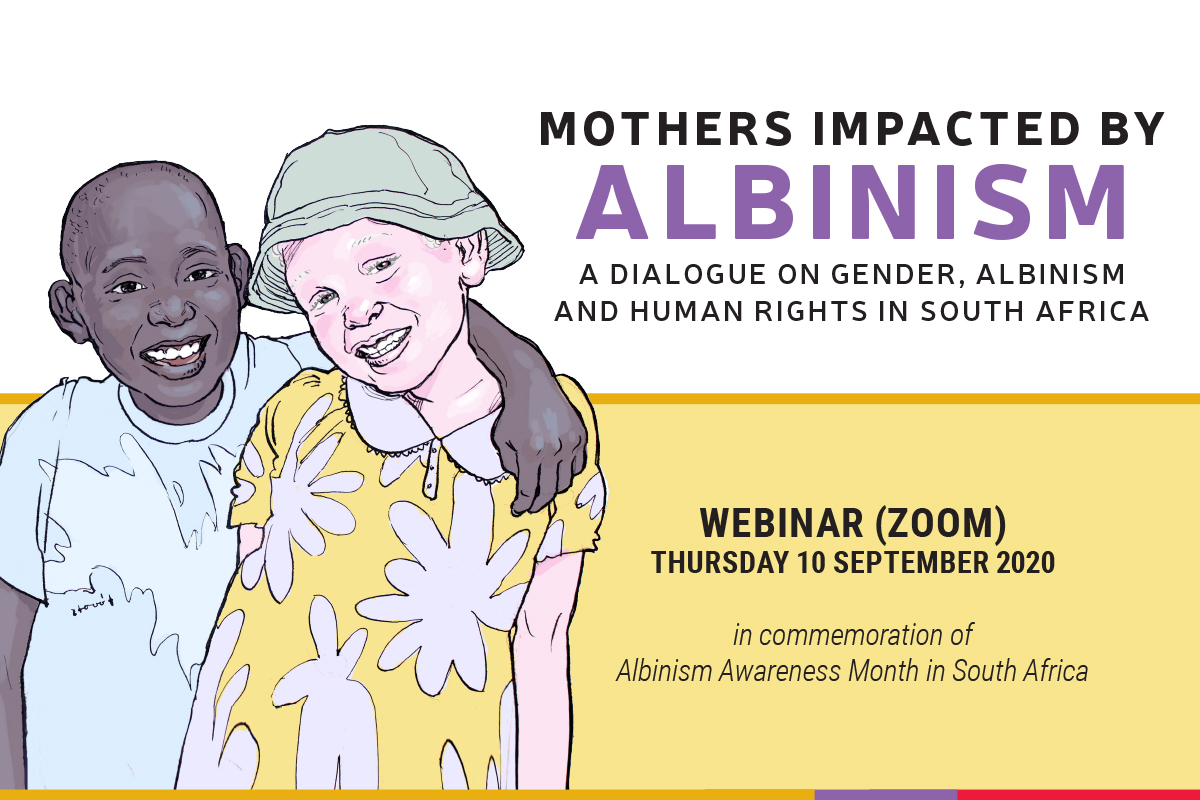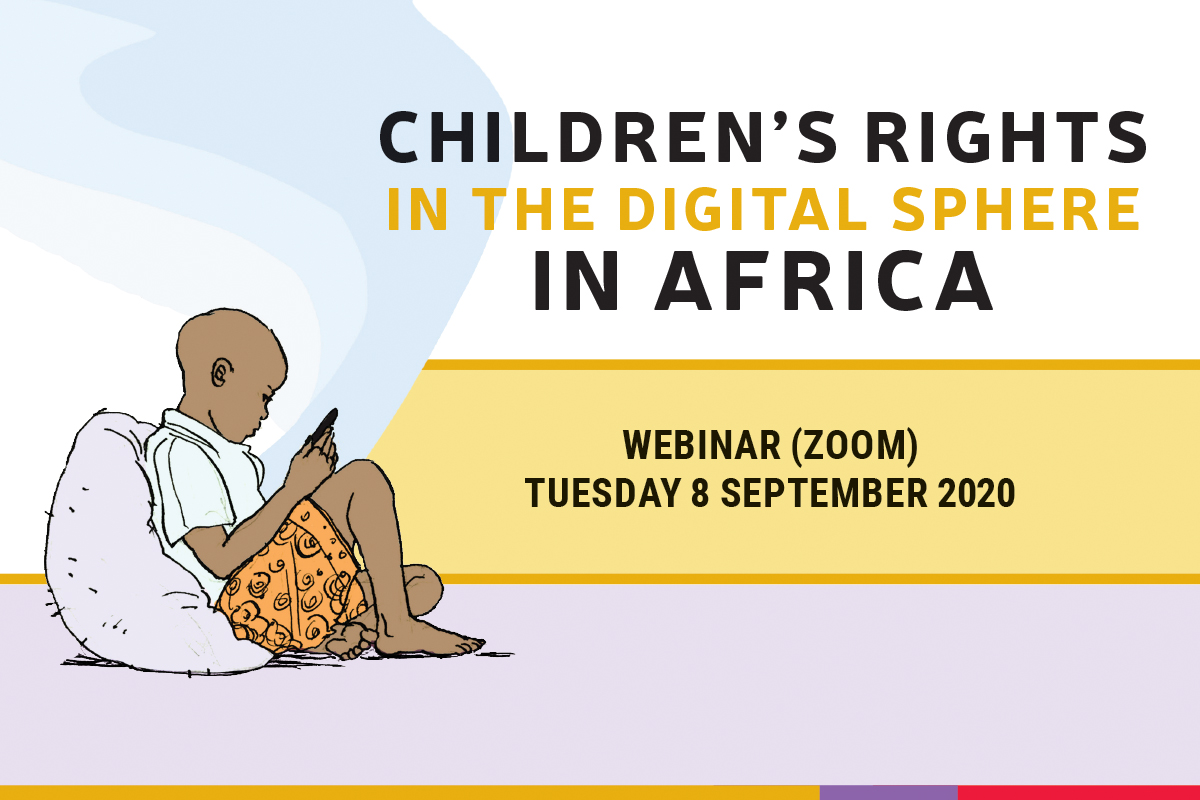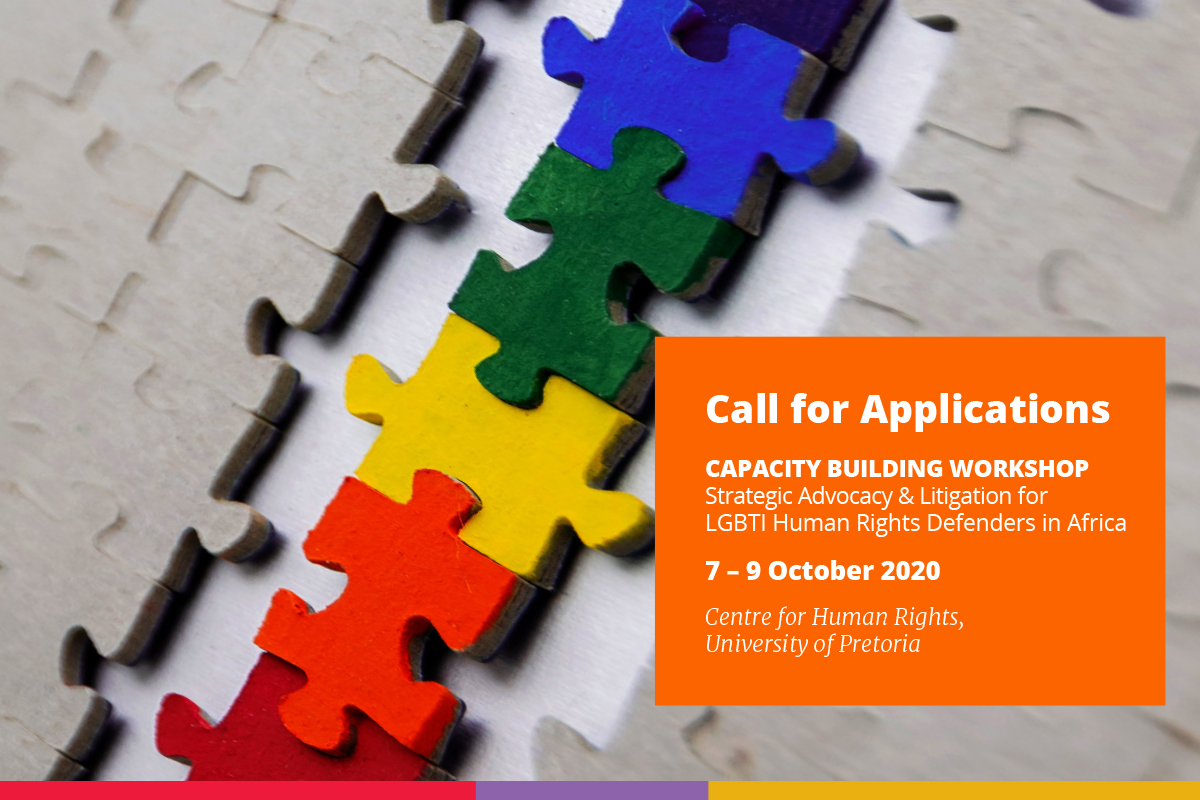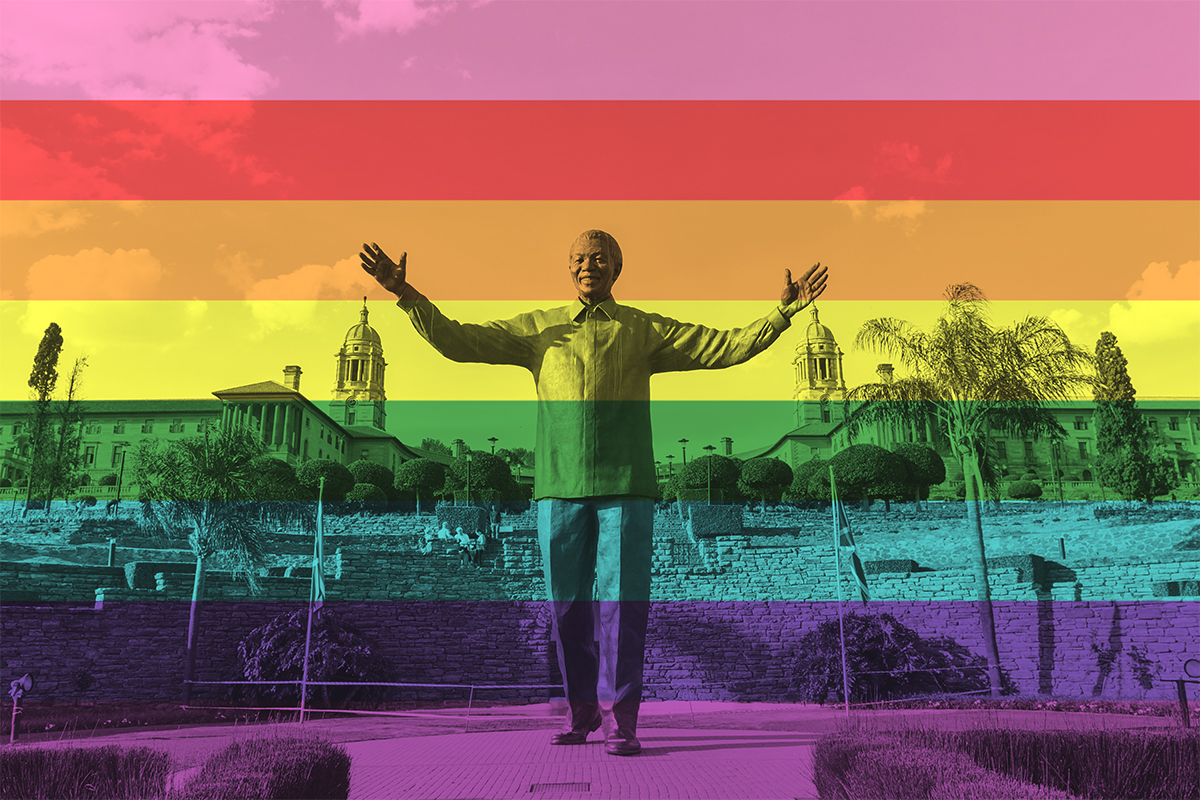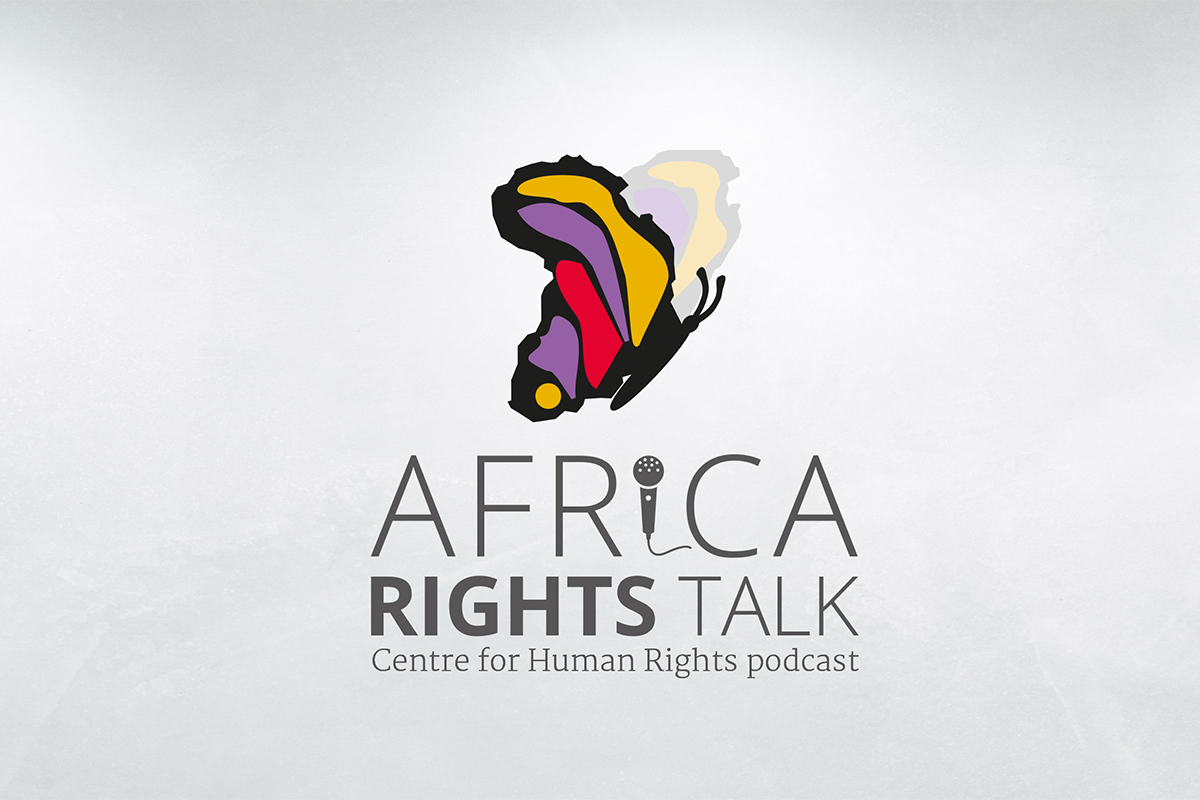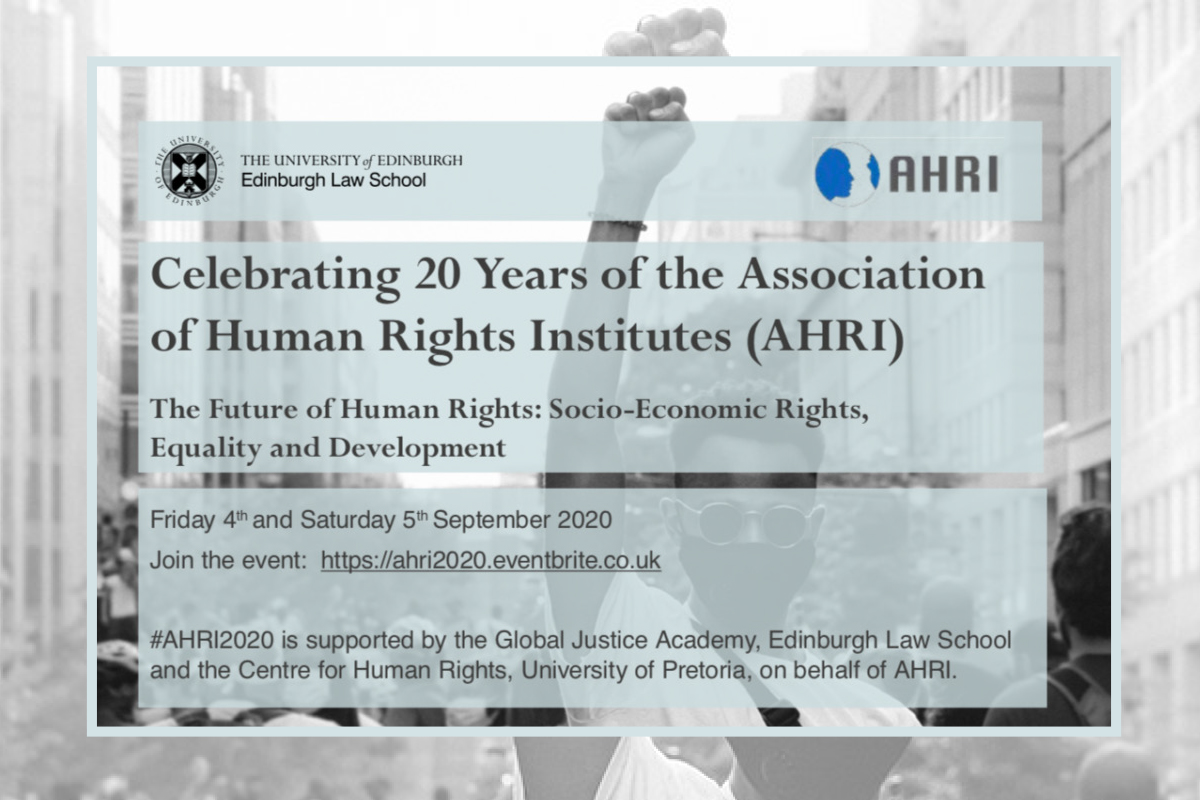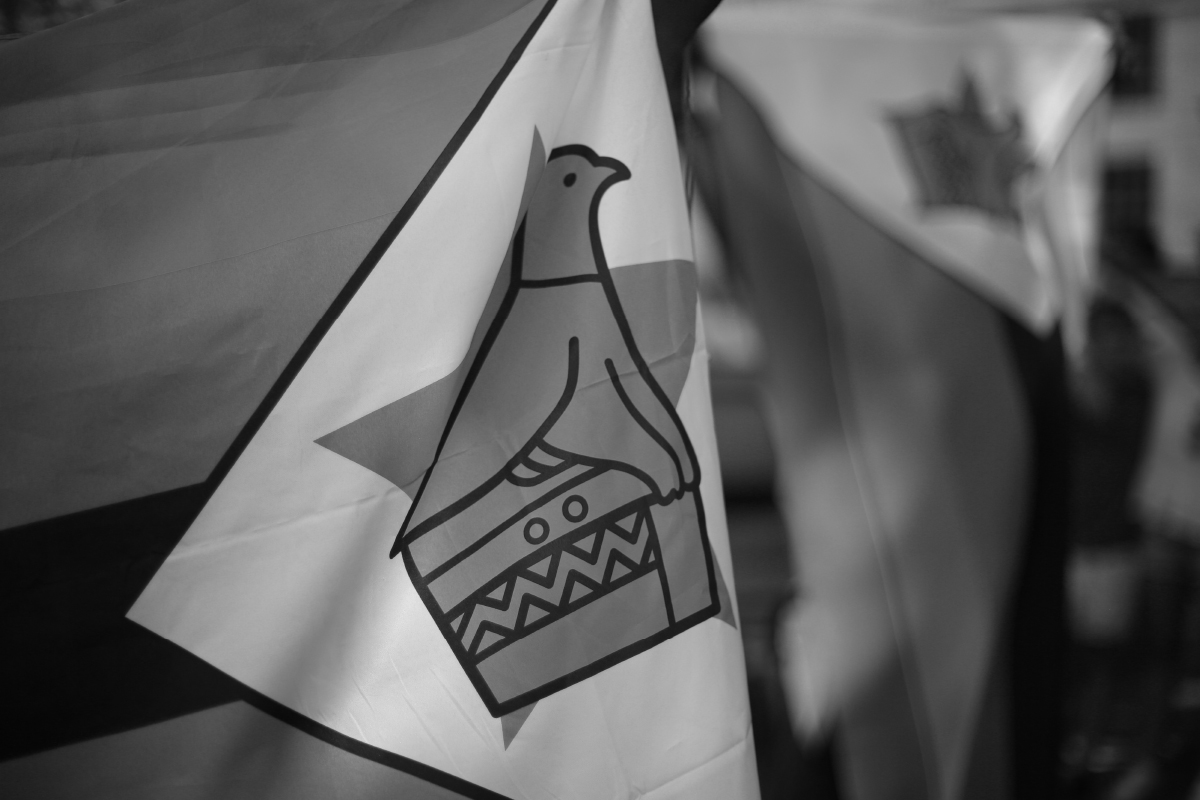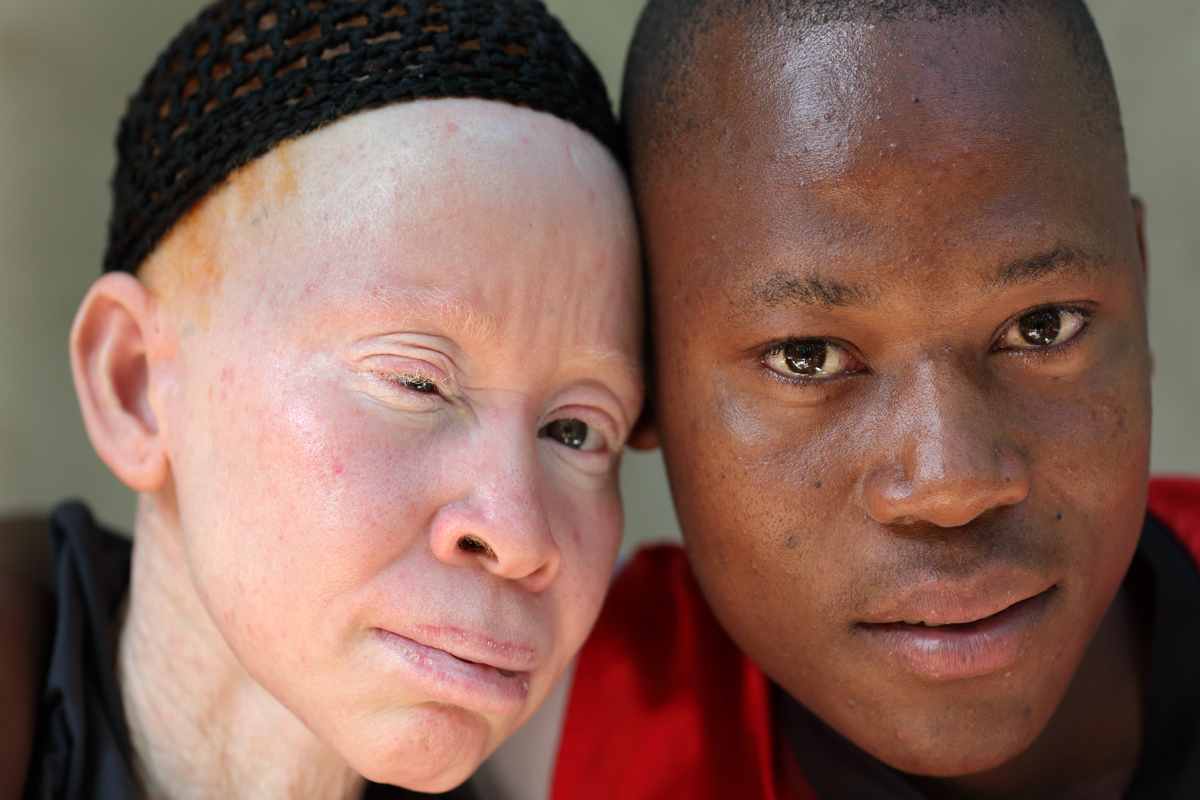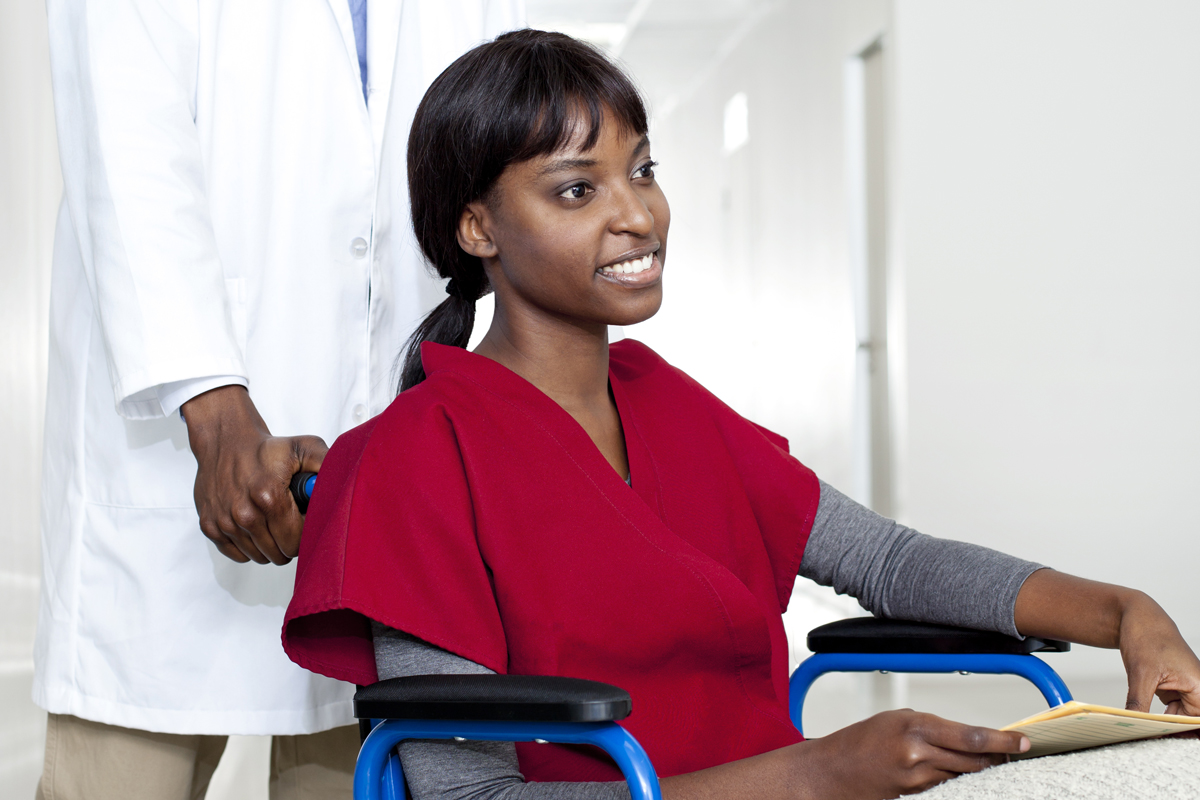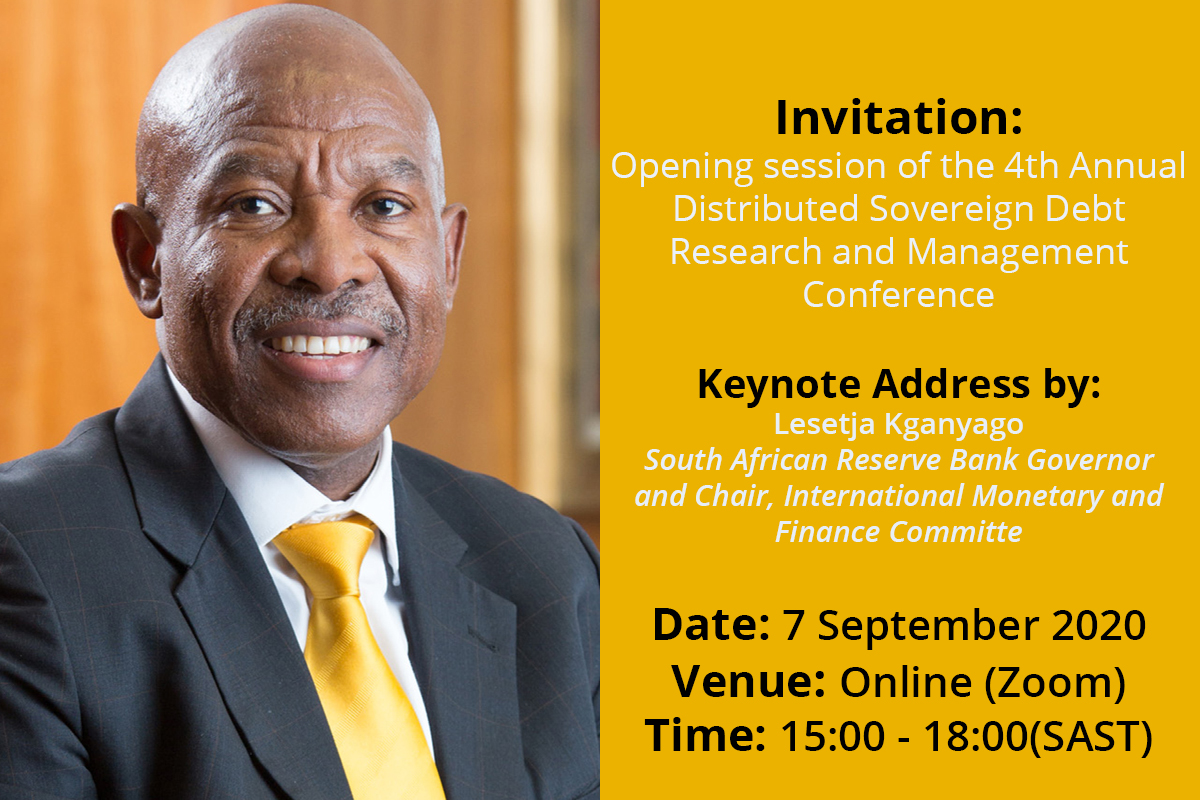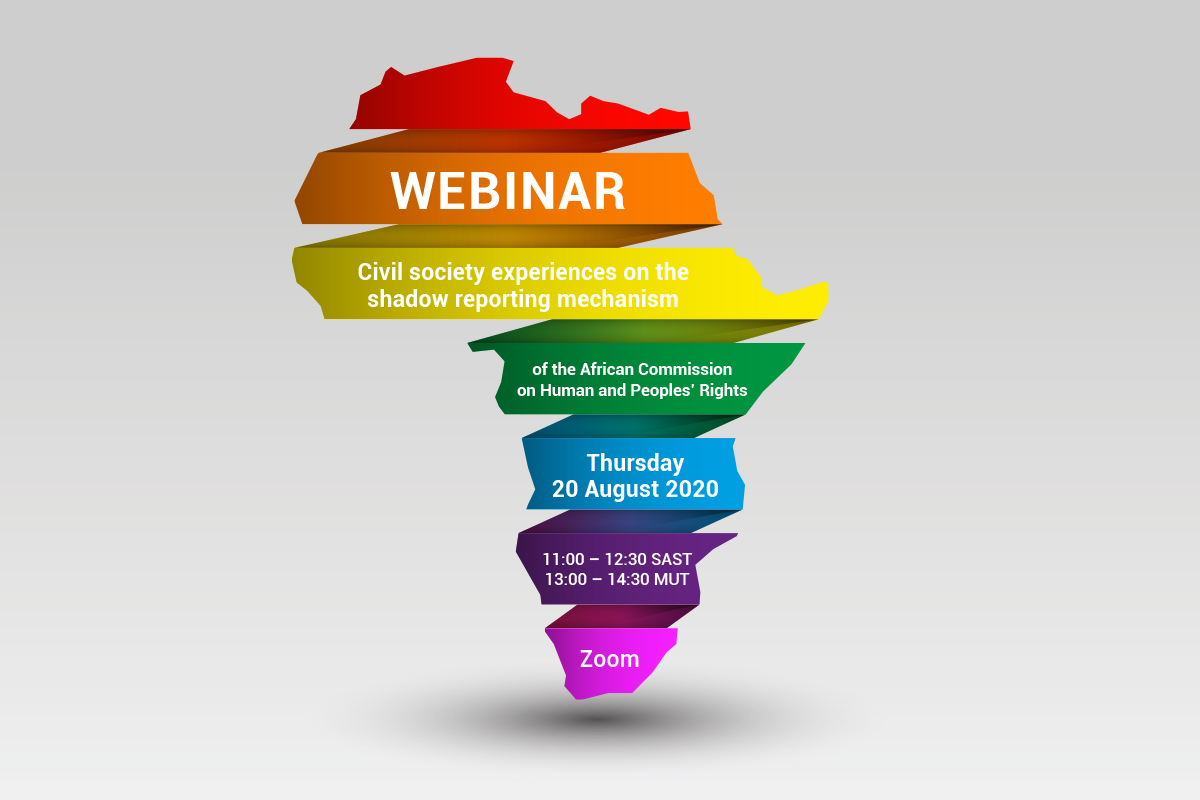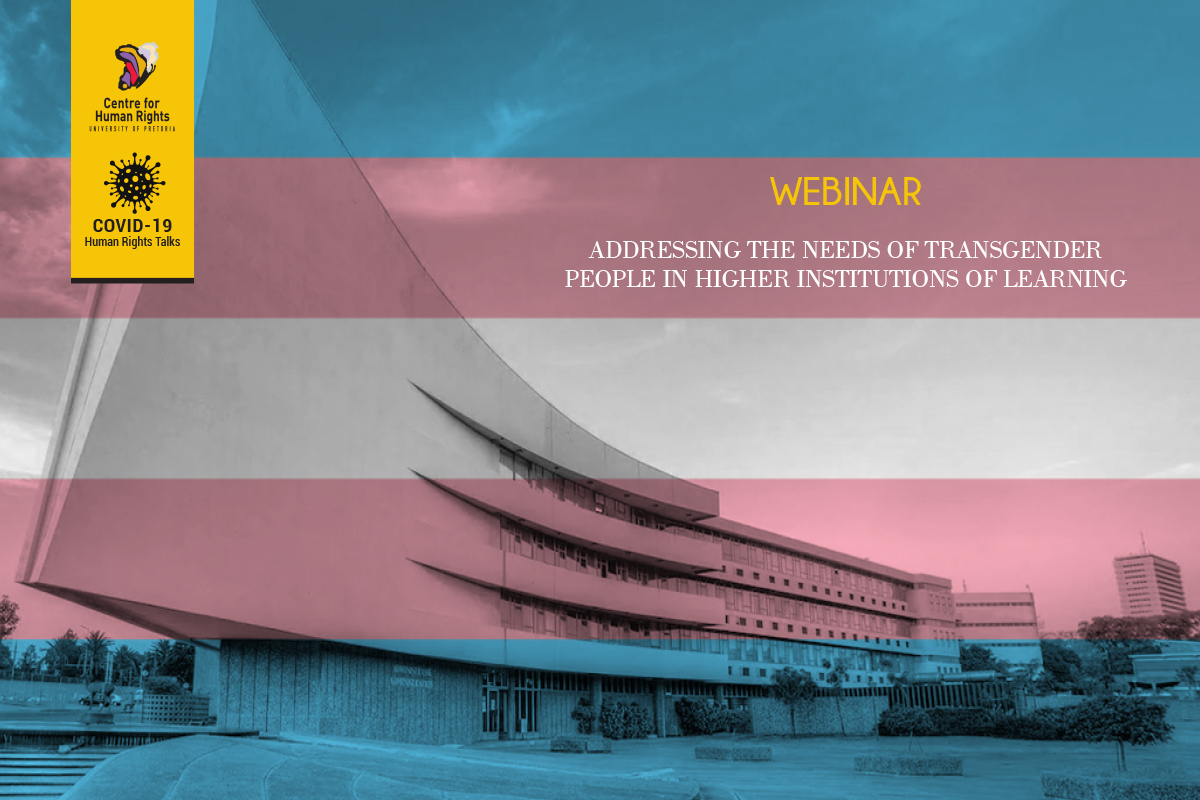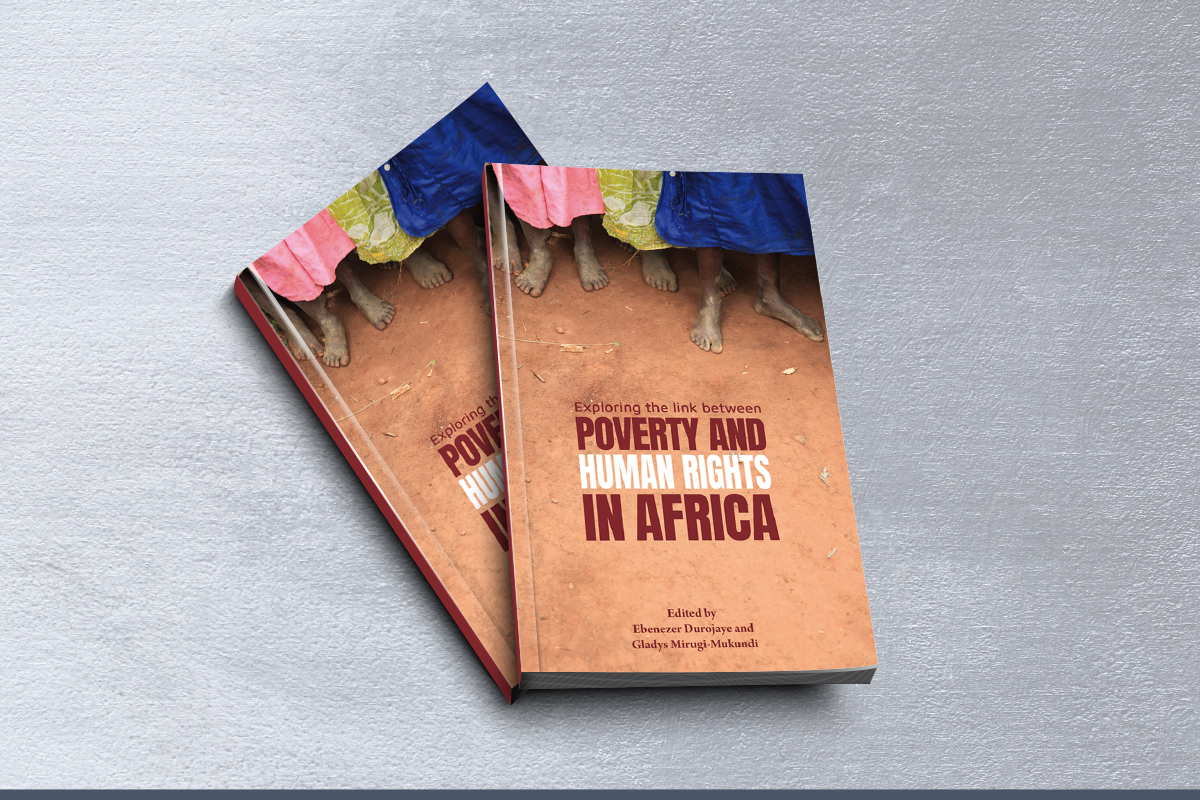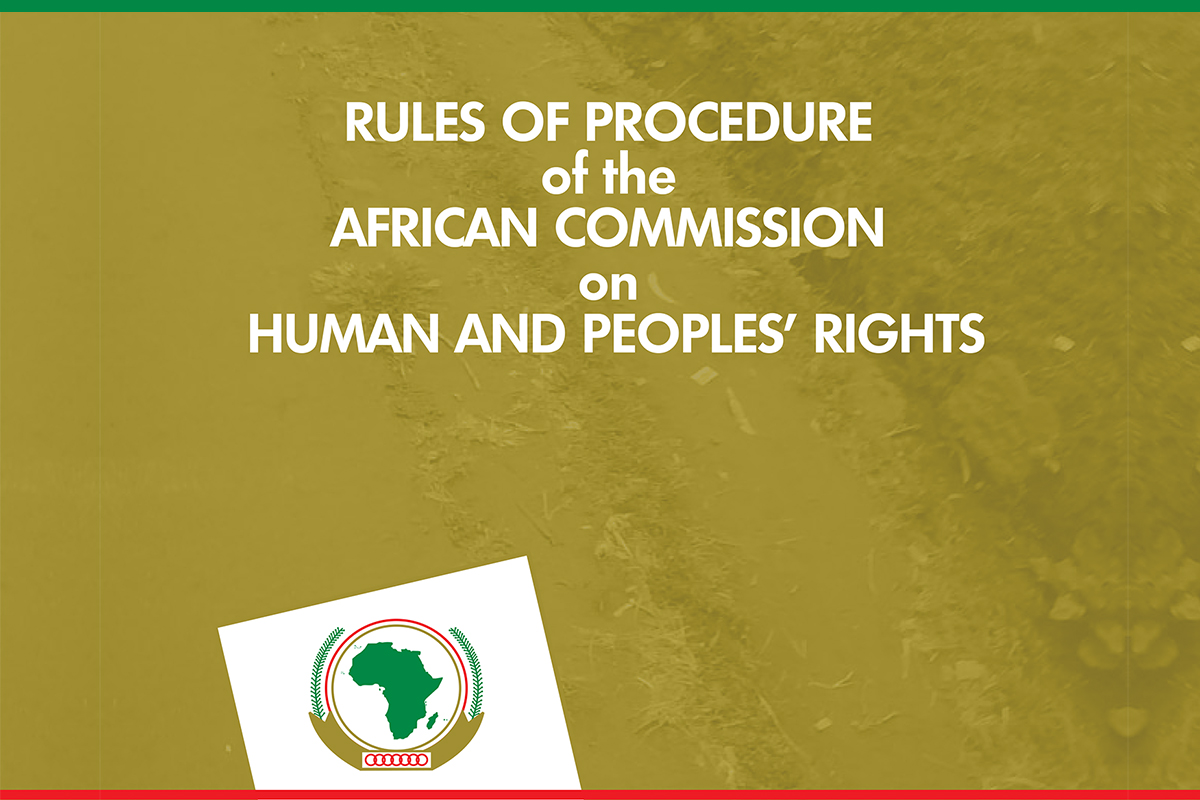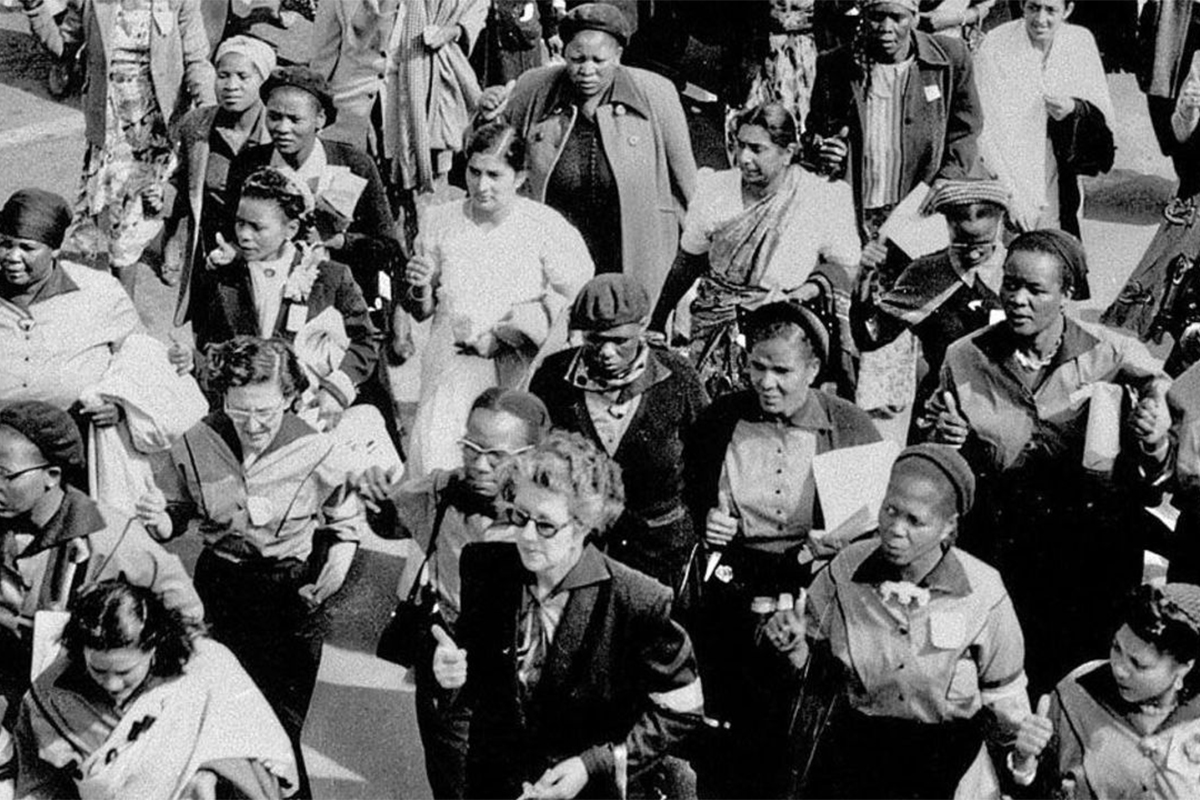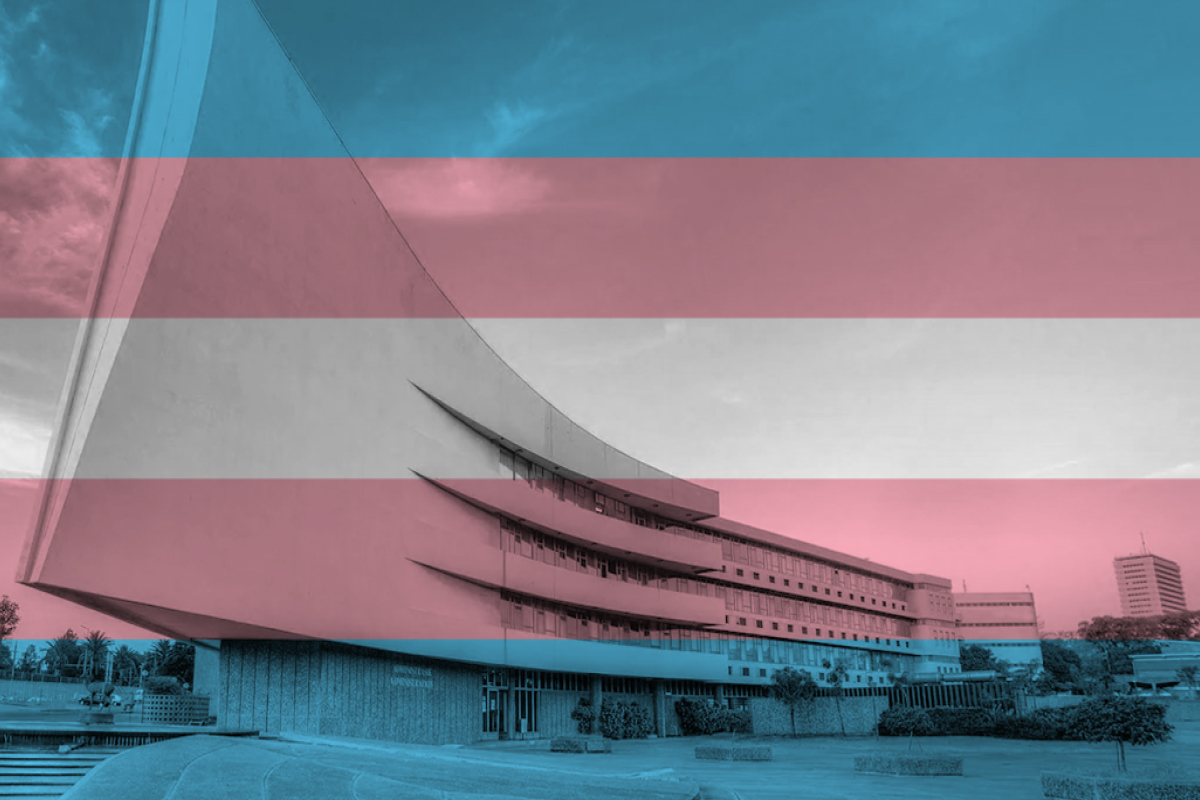- Details
The Centre for Human Rights, Faculty of Law, University of Pretoria, wishes to congratulate its graduate, Justice Miatta Maria Samba, who has just been elected as a Judge of the International Criminal Court (ICC). She will take her seat on the Court early in 2021.
- Details
The Centre for Human Rights, Faculty of Law, University of Pretoria, is concerned about ongoing discrimination on the basis of disability by airline carriers in Nigeria.
- Details
On 7 and 8 December 2020, the Centre for Human Rights, University of Pretoria, and Tshwaranang Legal Advocacy Centre (TLAC), under the umbrella of the Solidarity for African Women's Rights (SOAWR) Network, held a workshop on the Protocol to the African Charter on Human and Peoples’ Rights on the Rights of Women in Africa (Maputo Protocol) and its efficacy as an advocacy tool for the protection and promotion of women’s rights.
- Details
The Centre for Human Rights, Faculty of Law, University of Pretoria, calls for applications for a full-time doctoral scholarship in the field of disability rights. The successful candidate will be based within the Centre, and will be expected to contribute to the work of the Centre’s Disability Rights Unit (for 25 hours per week), while attending to her/his LLD/DPhil work.
- Details
For the first time since in its 12-year history, the Nelson Mandela World Human Rights Moot Court Competition was wholly held online. The team of Strathmore University, Kenya, consisting of Mariam Malik and Eugene Kanyugo, claimed the title as 2020 winners. The runner-up team is Kenyatta University, also from Kenya.
- Details
The Womens’ Rights Unit at the Centre for Human Rights, University of Pretoria, in collaboration with the Botswana Labour Migrants Association (BOLAMA), organised a workshop to consider the non-ratification of the Protocol to the African Charter on Human and Peoples’ Rights on the Rights of Women in Africa (Maputo Protocol) by the government of Botswana. The aim of the workshop was to sustain advocacy efforts towards the ratification of the Maputo Protocol. The meeting was held online on 1 December 2020 and Ms Patience Mungwari, Ms Lydia Chibwe and Ms Anthonia Lola Dickson represented the Centre.
- Details
The Centre for Human Rights, Faculty of Law, University of Pretoria, and the United Nations Office of the High Commissioner for Human Rights, cordially invite you to a global webinar on peaceful (and not so peaceful) assemblies: A fresh look at the international standards.
- Details
Africa is experiencing the highest increase in the number of older persons’ population. Most of them are living longer with valuable capacities but with vulnerabilities too. Yet older person’s rights are neither recognised nor valued, and often suffer from abuse, assaults and even murder at the hands of those who should support and protect them. Older persons are often accused of witchcraft, blamed for misfortunes such as sudden deaths, HIV/AIDS, traffic accidents and even the weather. They are denied opportunities for employment, they have restricted access to land and property, and lack adequate legal protection. Older women in particular bear more risks due to the intersectionality of their age as well as other aspects such as gender, disability and poverty. This is due to the lack of policies or legal frameworks that can protect the rights of older people in the majority of African countries.
- Details
On 10 December 2020, the Centre for Human Rights, University of Pretoria, held its annual graduation ceremony on International Human Rights Day. It was the first virtual human rights graduation ceremony due to COVID-19. The Centre awarded its annual Vera Chirwa Prize to two alumni (Solomon Dersso and Benyam Mezmur) for their role in contributing to the African Union’s human rights bodies both as members and chairpersons.
- Details
For the first time, the Nelson Mandela World Human Rights Moot Court Competition has taken place virtually in 2020.
- Details
History was made on 5 December 2020 when the final round of the African Human Rights Moot Court Competition was for the first time held virtually. The combined team of Makerere University, Uganda, and the University of Pretoria, South Africa, who appeared for the applicants, emerged as the winners. The runner-up is the combined team of the University of Ghana, Legon; and Université Félix Houphouët-Boigny Cocody, Côte d'Ivoire.
- Details
For the first time in its 29-year history, the African Human Rights Moot Court Competition has taken place virtually in 2020.
- Details
The year 2020 is the African Union Year of Silencing the Guns. The rhetoric provides a strong impetus for providing critical solutions to conflict in Africa. As the primary driver of internal displacement in Africa, conflict accounts for the continent’s 12.5 million internally displaced persons (IDPs). Through reflections from key experts in the African region, this webinar provides insights on critical strategies for silencing the guns and evidently preventing forced displacement in Africa.
- Details
The Centre for Human Rights, University of Pretoria, cordially invites you to a webinar to assess the status of implementation of the Maputo Protocol and submission of state reports to the African Commission on Human and Peoples’ Rights.
- Details
The Centre for Human Rights, University of Pretoria, and the Asser Institute are proud to announce the publication of the second paper in the African Human Rights Policy Papers series.
- Details
More than 20 civil society organisations fighting for social justice, supported by the Marikana Commission Chairperson Judge Ian Farlam, state that meaningful engagement with the new draft SAPS Bill is being undermined due to the 2018 report of the Panel of Experts on Policing being kept secret
- Details
Professor Charles Ngwena, Professor of Law in the Centre for Human Rights, Faculty of Law, University of Pretoria, has been awarded the annual Vice-Chancellor’s Award for Scholarly Books for his monograph What is Africanness? Contesting nativism in culture, race and sexualities.
- Details
(By Professor Daniel Bradlow)
The COVID-19 crisis is one of many indicators that we live in dangerous and uncertain times. Others include the international community’s struggle to respond to technological and climate change, demographic shifts, growing poverty and inequality as well as increased global insecurity.
- Details
The semi-final rounds of the 29th 2020 edition of the African Human Rights Moot Court Competition were held virtually and separately in French and English from 9 - 14 November 2020. This marks the first time that semi-final rounds have been part of the competition.
- Details
The Centre for Human Rights, University of Pretoria, in partnership with the Democracy Development Program (DDP), under the umbrella of the established Pan-African Parliament (PAP) CSO forum, is hosting a dialogue to engage young Africans on matters related to Africa’s politics and development and the workings of the PAP in particular.
- Details
The Centre for Human Rights, University of Pretoria, is alarmed by the arrest and detention of three human rights defenders by Egyptian authorities last week, marking a troubling escalation in an ongoing campaign of harassment and intimidation that has thus far failed to silence various organisations dedicated to defending fundamental human rights in the country.
- Details
The African Coalition for Corporate Accountability (ACCA) recently launched a video and a comic book prepared from the report on Free Prior and Informed Consent (FPIC). FPIC is a legal right for indigenous people in terms of international law, based on the principle of self-determination and it is also the collective right of indigenous peoples to negotiate the terms of externally imposed policies, programs, and projects that directly affect their livelihoods and well-being.
- Details
The 8th Annual Disability Rights Conference was held on Tuesday 17 and Wednesday 18 November 2020, virtually via zoom. The theme for this year’s two-day conference was ‘realising the right to health of persons with disabilities in Africa’. The conference focused on developing responses for overcoming barriers faced by persons with disabilities in the respect, protection and fulfilment of the right to health in the African region.
- Details
During his visit to Bern last week, the Burkinabe Minister of Industry, Trade and Handicrafts, Mr Harouna Kaboré has marked his disagreement with the “Popular Initiative for Responsible Multinationals” that will be submitted to a vote in Switzerland on November 29th. According to Minister Harouna Kaboré, the adoption of this Initiative would cause "serious socio-economic problems" in Burkina.
- Details
The Centre for Human Rights, University of Pretoria, calls for support for Professor Benyam Dawit Mezmur’s candidacy for re-election to the United Nations Committee on the Rights of the Child to be held on 24 November 2020.
- Details
The International Development Law Unit (IDLU) at the Centre for Human Rights, University of Pretoria invites you to 4 workshops to discuss papers focusing on the impacts and challenges relating to the sovereign debt situations in the SADC member countries.
- Details
The Centre for Human Rights, Faculty of Law, University of Pretoria, in partnership with the Global Development Policy Center at Boston University, Southern African Development Community Centre for Renewable Energy and Energy Efficiency (SACREEE), SADC Development Finance Resource Centre (SADC-DFRC) and the Development Bank of Southern Africa cordially invite you to the launch of the report Expanding Renewable Energy for Access and Development: The Role of Development Finance Institutions in Southern Africa, featuring a discussion of the study and Q&A with the audience.
- Details
The Centre for Human Rights, Faculty of Law, University of Pretoria, in partnership with Amnesty International, African Court Coalition, Initiative for Strategic Litigation in Africa (ISLA), Coalition for the Independence of the African Commission (CIAC) and Initiative for Social and Economic Rights (ISER), cordially invite you to a webinar for reflection on the current state of the African human rights system and the role of key stakeholders in strengthening and supporting the regional human rights bodies.
- Details
The Centre for Human Rights, University of Pretoria, is seeking a Monitoring, Evaluation and Advocacy Co-Ordinator. The deadline for applications is 27 November 2020.
- Details
The Centre for Human Rights, University of Pretoria, is seeking a Manager for the Children's Rights Unit. The deadline for applications is 27 November 2020.
- Details
Members of the Freedom from Violence Unit of the Centre for Human Rights, Faculty of Law, University of Pretoria, have for the last five years been leading the process in the United Nations (UN) to develop a coherent set of international standards on the management of demonstrations.
- Details
The Centre for Human Rights, Equality Now and International Commission of Jurists (Kenya Chapter) have drafted Shadow Reporting Guidelines in response to Resolution 436 by the African Commission on Human and Peoples' Rights. The resolution recognises the need to have a set of guidelines to guide non-state actors to submit appropriate shadow reports to the Commission. Please take a moment to go through the draft guidelines and fill out the accompanying questionnaire which will assist us to improve the draft guidelines.
- Details
#EndSARS: Practical implications of the protests on Nigerian citizens
In conversation with Ayodele Sogunro
- Details
For the first time in its 29-year history, the African Human Rights Moot Court Competition took place virtually as a result of the COVID-19 pandemic, which resulted in the restriction on movements and the various mitigating measures adopted by several countries on the continent. 29 English-speaking and 7 French-speaking teams took part in the online preliminary rounds from 21 September to 21 October 2020. The semi-final rounds take place from 9 to 14 November, and the final round on 28 November. All these rounds are virtual, using the Zoom platform.
- Details
#EndSARS: The need for police reform and justice for victims of police brutality in Nigeria
In conversation with Victoria Ibezim- Ohaeri
- Details
The Centre for Human Rights, University of Pretoria, cordially invites you to a virtual conference on 4 and 5 November 2020. The theme of the conference is ‘Elections and COVID-19: Harnessing the pandemic to improve elections.’ The conference is organised by the Democracy and Civic Engagement Unit and the Expression, Information and Digital Rights Unit of the Centre for Human Rights. The conference invites academics, policymakers, practitioners, researchers and other stakeholders with a keen interest in democracy and elections, information technology and human rights law in the African context.
- Details
The African Human Rights Policy Papers is a series of concise, thoughtful and accessible papers published by the Centre for Human Rights at the Faculty of Law, University of Pretoria. The series runs from 2020. These papers set out key findings on contemporary topics related to human rights, good governance, social justice and democratisation in Africa. In some cases, the topics may extend to the broader range of issues related to the rule of law and international law. The primary aim of the papers is to provide policy guidance to relevant stakeholders and decision makers. Ancillary aims include: supporting advocacy campaigns, spreading knowledge, and sparking public debate on selected issues.
- Details
The Democracy and Civic Engagement Unit at the Centre for Human Rights, University of Pretoria, recently developed a Toolkit for civil society advocacy in the Pan-African Parliament (PAP). Despite its potentially crucial role in PAP’s activities, civil society organisations (CSOs) still know very little about this institution. For most CSOs, the PAP, and the African Union (AU) in general, are largely invisible, and too distant to access or influence with their advocacy. This Toolkit aims to change that.
- Details
The Centre for Human Rights, Faculty of Law, University of Pretoria, is an internationally recognised hybrid institution; both an academic department in the Faculty of Law and a NGO/CSO that combines academic excellence, effective activism, education, training, research and capacity-building to advance human rights in Africa.
- Details
The 29th edition of the African Human Rights Moot Court Competition adopted, for the first time, a hybrid format following the impact of the COVID-19 pandemic.
- Details
The Centre for Human Rights, University of Pretoria, is part of a coalition of seven global disability rights organisations that have called for urgent action by States and the international community to halt the catastrophic failure to protect the lives, health, and rights of persons with disabilities during the COVID-19 pandemic.
- Details
Statement by the Coalition for the Independence of the African Commission (CIAC): Today we mark African Human Rights Day, at a time when many Africans are struggling to come to terms with the devastating effects that Covid-19 has had on their lives. While many have lost their jobs, business, and different sources of income, others have been victims of human rights violations including rape and other gender-based violence, abusive policing, discrimination based on their race, social class, or sexual orientation.
- Details
(Op-Ed by Solomon A. Dersso, Chairperson of the African Commission on Human and Peoples’ Rights)
For this year’s Africa Human Rights Day, the African Commission on Human and Peoples’ Rights commemorates this landmark event under the theme ‘Human and Peoples’ Rights and the COVID-19 Pandemic: Protecting Rights for Building Back Better’. This occasion serves to deliberate on why and how respect for and protection of human and peoples’ rights offers the recipe for a successful strategy for building back better.
- Details
In an age during which human rights are increasingly intellectually questioned, and placed under political threat, it is reassuring and important that human rights institutions still prosper. In 2019, the Centre for Human Rights forged ahead to establish itself as a credible institution advancing the rights of particularly the most vulnerable among us in Africa, and to raise levels of understanding and awareness of rights on the continent.
- Details
The Centre for Human Rights, University of Pretoria, cordially invites you to its 8th Annual Disability Rights Conference on 17 and 18 November 2020, which will take place virtually via Zoom. The theme of this year’s conference is ‘Realising the right to health of persons with disabilities in Africa’.
- Details
The Centre for Human Rights, Faculty of Law, University of Pretoria, is saddened by the passing of Devikarani Priscilla Jana, anti-apartheid activist and giant of South African human rights law, on 10 October 2020.
- Details
The Centre for Human Rights, University of Pretoria, is concerned about ongoing police brutality and human rights violations in Nigeria. These violations are in response to demonstrations by Nigerians expressing concerns about gross human rights violations by the Nigerian Police Force (NPF), particularly by the Special Anti-Robbery Squad (SARS), a tactical unit within the NPF designed to tackle incidents of armed robbery in Nigeria.
- Details
On 1 October 2020, the Women’s Rights Unit at the Centre for Human Rights, Faculty of Law, University for Pretoria, in partnership with International Commission of Jurists (Kenya) and Equality Now, conducted a webinar to garner the views of civil society organisations on the draft Shadow Reporting Guidelines they have developed.
- Details
The Centre for Human Rights, University of Pretoria, is seeking a Deputy Accountant. The deadline for applications is 9 November 2020.
- Details
The Centre for Human Rights, University of Pretoria, in collaboration with Ghent University, presented the annual Advanced Human Rights Course (AHRC) on African Human Rights System in Comparative Perspectives from 9 to 12 October 2020. The course was presented online via Zoom. Just under 50 participants from 17 African countries, Europe andSouth America attended the course. Participants included legal practitioners, human rights advocates, government representatives as well as members of academia.
- Details
On 22 October 2020, Validity Foundation, the European Network on Independent Living, Disability Rights International, the Centre for Human Rights, University of Pretoria, the International Disability Alliance, the International Disability and Development Consortium, and the Disability Rights Fund/Disability Rights Advocacy Fund will launch the COVID-19 Disability Rights Monitor Global Report.
- Details
The Centre for Human Rights, Faculty of Law, University of Pretoria (UP), in partnership with the Initiative for Strategic Litigation in Africa (ISLA), hosted a three-day workshop on strategic litigation and advocacy for LGBTI+ human rights defenders in Africa. The workshop is an annual event organised by the Centre’s Sexual Orientation, Gender Identity and Expression, and Sex Characteristics (SOGIESC) Unit and is aimed at building the capacity of and empowering LGBTI+ human rights defenders in Africa, with a specific focus on how to conduct strategic litigation and advocacy. This year’s edition was held virtually from 7 to 9 October 2020.
- Details
The Centre for Human Rights, Faculty of Law, University of Pretoria, takes great pleasure in congratulating Dianah Msipa on her appointment by the Department of Women, Youth and Persons with Disabilities onto a team of experts working on the proposed African Union (AU) Convention on Violence against Women and Children.
- Details
The Centre for Human Rights, University of Pretoria (the Centre) is assessing state compliance with the Guidelines on Access to Information and Elections in Africa (the Guidelines) that the African Commission on Human and Peoples’ Rights (the African Commission) adopted during its 61st Ordinary Session in November 2017. The Centre has completed its initial country assessment under the Guidelines focusing on the 2019 elections in South Africa.
- Details
The African Human Rights Law Journal (AHRLJ) in 2020 celebrates 20 years since it first appeared. This milestone was marked with a webinar on 7 October 2020, hosted by the Pretoria University Law Press (PULP), based at the Centre for Human Rights, Faculty of Law, University of Pretoria. The AHRLJ is the only peer-reviewed journal focused on human rights related topics of relevance to Africa, Africans and scholars of Africa.
- Details
The Centre for Human Rights, University of Pretoria, cordially invites you to a conference on privacy and data protection in Africa from 12 to 15 October 2020. The conference is organised by the Expression, Information and Digital Rights Unit in collaboration with the African Declaration on Internet Rights and Freedoms Coalition(AfDec Coalition). The conference will be of interest to academics, students, policymakers and practitioners working in the areas of privacy, data protection, big data, information technology, and human rights law in Africa and others interested in understanding of the state of privacy and data protection, particularly within the African context. The conference is aimed at improving privacy and data protection scholarship in Africa.
- Details
The Centre for Human Rights, Faculty of Law, University of Pretoria, in collaboration with the Global Engagement Network on Internal Displacement in Africa (GENIDA), cordially invite you to a webinar on the situation of urban IDPs in an era of COVID-19 and how protection can be secured and enhanced.
- Details
The Centre for Human Rights, Faculty of Law, University of Pretoria and the Tshwaranang Legal Advocacy Centre (TLAC), under the umbrella of the Solidarity for African Women's Rights (SOAWR) Network, held a three-day virtual workshop from 28 to 30 September 2020 on the Protocol to the African Charter on Human and Peoples’ Rights on the Rights of Women in Africa (Maputo Protocol) and shadow reporting. The aim of the workshop was to increase the number of shadow reports submitted to the African Commission on Human and Peoples’ Rights (African Commission) and to encourage a robust interaction of CSOs with the African Commission to effectively monitor the implementation of the Maputo Protocol.
- Details
The Disability Rights Unit of the Centre for Human Rights, Faculty of Law, University of Pretoria, in collaboration with the office of the United Nations Independent Expert on the enjoyment of human rights by persons with albinism hosted a virtual two-day advocacy and human rights skills training. The training, which was held online from 28 to 29 September 2020 was aimed at organisations representing persons with albinism in Southern Africa. The training was attended by individuals representing civil society organisations (CSOs) from various African countries, including South Africa, Botswana, Zambia, Namibia, Malawi, Ghana, Uganda, Nigeria, Kenya, Mozambique. Furthermore, the virtual platform allowed the inclusion of international participants, and included Argentina and Iraq.
- Details
On 27 August 2020, the Centre for Human Rights, Faculty of Law, University of Pretoria, in collaboration with the South African Institute of International Affairs (SAIIA) and the African Climate Foundation hosted a webinar focusing on foreign policy and South Africa's climate change diplomacy.
- Details
The Pretoria University Law Press (PULP) invites you to a webinar to mark 20 years of the African Human Rights Law Journal.
The African Human Rights Law Journal in 2020 marks 20 years of consistently publishing 2 issues per year. It was first published in 2001 by Juta publishers. From 2013, it has been published as an open-access journal by PULP. The Journal is accredited with the International Bibliography of the Social Sciences (IBSS) and appears in a number of open access portals, including AfricanLii, the Directory of Open Access Journals and SciELO.
- Details
The African Coalition for Corporate Accountability (ACCA) and the Centre for Applied Legal Studies (CALS) is convening a webinar on the Second Revised Draft of the Treaty on Business and Human Rights. The webinar will be an opportunity for Africans to discuss the draft, highlight its strengths and weaknesses and reflect on the prospects of galvanising state support for its adoption.
- Details
The Centre for Human Rights, Faculty of Law, University of Pretoria, calls for applications for full-time doctoral scholarships in the field of sexual and/or reproductive rights in the African region.
- Details
The Centre for Human Rights, Faculty of Law, University of Pretoria, takes great pleasure in congratulating Professor Charles Ngwena on his appointment by the Minister of Justice and Constitutional Development as an advisory committee member for Project 148.
- Details
The Centre for Human Rights, Faculty of Law, University of Pretoria, in partnership with the International Commission of Jurists (ICJ Kenya) and Equality Now cordially invite you to a validation meeting of the shadow reporting guidelines to the African Commission on Human and Peoples’ Rights.
- Details
The Centre for Human Rights, University of Pretoria, is distressed by the march on 23 September 2020 against foreign nationals in the City of Tshwane (#PutSouthAfricansFirst). The marchers targeted Nigerians and Zimbabweans, in particular. While declaring that they are concerned about illegal migrants, the marchers spoke of ‘Nigerians’ and ‘Zimbabweans’ in a very general way. The march organisers in one breath expressed concern about illegal migrants and drug trafficking. By making this association between migrant status and drug trafficking, the marchers fell into the trap of generalisation and stigmatisation of all of these non-nationals as both illegal and criminal.
- Details
The Centre for Human Rights, University of Pretoria, ARTICLE 19 (Eastern and Western Africa), Media Institute of Southern Africa (MISA) Zimbabwe, Transparency International (Kenya), and the Special Rapporteur on Freedom of Expression and Access to Information in Africa cordially invite you to a webinar on the occasion of the commemoration of the International Day for Universal Access to Information (IDUAI).
- Details
The Centre for Human Rights, University of Pretoria, is assessing state compliance with the Guidelines on Access to Information and Elections in Africa (the Guidelines) that the African Commission on Human and Peoples’ Rights (the African Commission) adopted during its 61st Ordinary Session in November 2017. The Centre has completed its initial country assessment under the Guidelines focusing on the 2019 elections in South Africa.
- Details
The English preliminary rounds for the 29th edition for the African Human Rights Moot Court Competition will be held online from 21 September to 21 October 2020. The #AfricanMoot2020 is presented by the Centre for Human Rights, Faculty of Law, University of Pretoria, in partnership with the Université Virtuelle de Sénégal (UVS) and the Université Cheick Anta Diop de Dakar (UCAD). The preliminary rounds for the French-speaking teams have been organised separately and will be held, also online, from 12 to 16 October 2020.
- Details
The Centre for Human Rights, University of Pretoria, in collaboration with the African Policing Civilian Oversight Forum (APCOF), and African Men for Sexual Health & Rights (AMSHER) hosted the annual advanced human rights short course on Police Oversight and Vulnerable Groups in Africa from 7 to11 September 2020.
- Details
The preliminary oral rounds of the 12th Nelson Mandela World Human Rights Competition will be held online from 19 to 23 September 2020. The World Moot is presented by the Centre for Human Rights, Faculty of Law, University of Pretoria, in partnership with the Academy on Human Rights and Humanitarian Law, Washington College of Law, American University and the United Nations Human Rights Council Branch (HRCB) at the Office of the High Commissioner for Human Rights (OHCHR).
- Details
The Centre for Human Rights, Faculty of Law, University of Pretoria, wishes to congratulate Dr Rimdolmsom Jonathan Kabre on his recent achievement. Dr Kabre, a post-doctoral research fellow at International Development Law Unit (IDLU), was awarded the 2020 Law Faculty Prize (Prix de Faculté) from the University of Lausanne (Switzerland) for the best doctoral dissertation. Dr Kabre was also awarded a grant to support the publication of his dissertation. This prize was awarded during the Opening Ceremony for the 2020 courses at the University of Lausanne, which took place on 15 September 2020.
- Details
Preparations for the 30th edition of the African Human Rights Moot Court Competition, scheduled to take place from 26 to 31 July 2021, are now formally underway. Following the signature of a Memorandum of Understanding (MOU) by Stellenbosch University, the host for the 30th edition of the Competition, on 7 September 2020, the Vice-Chancellor and Principal of the University of Pretoria, Prof Tawana Kupe, co-signed the MOU at the University of Pretoria on 16 September 2020.
- Details
The Democracy and Civic Engagement Unit and the Expression, Information and Digital Rights Unit at the Centre for Human Rights, University of Pretoria, are hosting a (virtual) conference on 29 October 2020 under the theme ‘Elections and COVID-19: Harnessing the pandemic to improve elections’.
- Details
The Centre for Human Rights, University of Pretoria, cordially invites you to a webinar organised by the Expression, Information and Digital Rights Unit on “Proactive disclosure of information and elections in South Africa”. The webinar will focus on South Africa’s compliance with the Guidelines on Access to Information and Elections in Africa, issued by the African Commission on Human and Peoples’ Rights. This flows from a collaborative research report on access to information and elections during South Africa’s 2019 elections, that will be formally launched.
- Details
Preparations for the 2021 African Human Rights Moot Court Competition were formally launched on 7 September 2020 in Stellenbosch, South Africa, when the Director of the Centre for Human Rights, University of Pretoria, Prof Frans Viljoen, the Vice Rector (Research, Innovation and Postgraduate Studies) of Stellenbosch University, Prof Eugene Cloete, together with the Dean of the Faculty of Law, Stellenbosch University, Prof Nicola Smit, signed the Memorandum of Understanding.
- Details
Pride Afrique, the first virtual Pan-African pride event, recently took place from 14 to 16 August. The event provided an opportunity for African LGBTIQ+ communities to meet and celebrate virtually, despite the COVID-19 pandemic that has prevented several physical pride events from being held.
- Details
The Centre for Human Rights, Faculty of Law, University of Pretoria notes with disappointment the decision by the Swiss Federal Supreme Court to effectively ban Caster Semenya from participating in certain competitive sporting events (400m to the mile) unless she reduces her testosterone levels to ‘acceptable female’ levels. This decision follows an appeal by Caster to the Supreme Court against a decision by the Court of Arbitration for Sports (CAS), which upheld the validity of the World Athletics regulations on female athletes with differences of sex development (Eligibility Regulations on Female Classification (Athlete with Differences of Sexual Development). The CAS, based in Lausanne, Switzerland, is a private legal person under Swiss law. Its arbitration awards are subject to the appellate jurisdiction of the Swiss Federal Supreme Court.
- Details
The Centre for Human Rights, University of Pretoria, in collaboration with the African Policing Civilian Oversight Forum (APCOF), and African Men for Sexual Health & Rights (AMSHeR) is currently prersenting the annual Advanced Human Rights Course on Police Oversight and Vulnerable Groups in Africa.
- Details
(Op-Ed by Marystella A. Simiyu)
The inability of countries to ordinarily hold elections and undertake electioneering is one of the many disruptions brought by the COVID-19 pandemic.
- Details
With the passing of Advocate George Bizos on 9 September 2020, South Africa lost an exceptional human rights lawyer who devoted his life to the promotion and fostering of a human rights culture in South Africa. “His life demonstrates the best use to which the law can be put: as a tool to defend those at risk of abuse of power, and as a tool for social transformation and human connection’”, said the Director of the Centre for Human Rights, University of Pretoria, Frans Viljoen.
- Details
The Centre for Human Rights, Faculty of Law, University of Pretoria, has with alarm taken note of the precarious position and imminent risk of irreparable harm to the life of Nigerian singer Yahaya Sharif Aminu. The Centre on 9 September 2020 lodged a request to the African Commission on Human and Peoples’ Rights (African Commission) to take immediate action, in the form of directing an urgent appeal to the Head of State, or any other appropriate form.
- Details
About 40% of countries in Africa are at a debt-stressed level, while COVID-19 has forced a strong fiscal response globally as nations try to avoid lasting structural damage to their economies. This is according to Governor Lesetja Kganyago of the South African Reserve Bank, who spoke at the fourth annual Distributed Interdisciplinary Sovereign Debt Research and Management Conference, or D-DebtCon. The conference is taking place virtually this year in nine countries, spanning five continents, from 7 to 18 September.
- Details
The Disability Rights Unit at the Centre for Human Rights, Faculty of Law, University of Pretoria, cordially invites you to a webinar on mothers impacted by albinism. The webinar, which is a dialogue on gender, albinism and human rights in South Africa is held in commemoration of Albinism Awareness Month.
- Details
The Centre for Human Rights, Faculty of Law, University of Pretoria, cordially invites you to a webinar organised by the Children’s Rights Unit on the occasion of the 35th Ordinary Session of the African Committee of Experts on the Rights and Welfare of the Child (ACERWC). The webinar will focus on children’s rights in the digital age in Africa.
- Details
The Centre for Human Rights, Faculty of Law, University of Pretoria, with the support of the Embassy of the Kingdom of the Netherlands and Initiative for Strategic Litigation in Africa, cordially invites you to apply for the Capacity Building Workshop on Strategic Advocacy and Litigation for human rights defenders working on the promotion and protection of the human rights of lesbian, gay, bisexual, transgender and intersex persons in Africa.
- Details
The Centre for Human Rights, University of Pretoria (‘the Centre’), is implementing a three-year project on access to the equality courts by the LGBTIQ+ community in the City of Tshwane. The overall goal of the project is to demonstrably promote the enhanced use of the Equality Courts by the South African LGBTIQ+ community in general, and the Tshwane community in particular.
- Details
An analysis of the deteriorating human rights situation in Zimbabwe
In conversation with Mr Brian Kagoro
- Details
The Association of Human Rights Institutes (AHRI) is holding its annual conference from 3 to 5 September on the theme 'The future of human rights: Socio-economic rights, equality and development'. Register for free on www.ahri-network.org and join us online.
- Details
In recent days, media houses in the region and around the globe have put a spotlight on the continuation of systemic human rights violations in Zimbabwe. This state of affairs is disturbing as far as the democratic space in the country is concerned, and needs to be closely monitored by the international community. Elie Wiesel, who was a holocaust survivor and Nobel Laureate rightly said that the opposite of good is not bad, but rather indifference; Indifference against human suffering, indifference against serious violations of rights by the State agents in Zimbabwe is a serious threat to peace both locally and regionally. Wiesel comprehended well that the struggle against indifference is a struggle for peace.
- Details
The Disability Rights Unit, Centre for Human Rights cordially invites you to join a training in strengthening advocacy skills in the era of COVID-19 and beyond: Human rights training for organisations representing persons with albinism in Southern Africa.
- Details
Centre for Human Rights, University of Pretoria, hosts an annual conference on disability rights in an African context during the month of November. The inaugural disability rights conference was held in 2013. The conference acts as a platform for convening dialogue amongst key stakeholders on disability rights, and to spotlight the pertinent and emerging disability rights concerns in the African region. More information on previous editions of the conference can be found at https://www.chr.up.ac.za/disability-rights-projects/dru-annual-conference.
In 2020, the conference will focus on developing responses for overcoming barriers faced by persons with disabilities in the respect, protection and fulfilment of the right to health in the African region.
- Details
The International Development Law Unit, Centre for Human Rights, University of Pretoria cordially invites you to the opening session of the 4th Annual Distributed Sovereign Debt Research and Management Conference (D-DebtCon4). The opening session will start a 15:00 (SAST) and the keynote address will be given by Lesetja Kganyago South African Reserve Bank Governor.
- Details
The impact of COVID-19 on elections in Africa
In conversation with Ms Bonolo Makgale
- Details
The Centre for Human Rights, University of Pretoria, the Human Rights Institute of South Africa, DITSHWANELO - The Botswana Centre for Human Rights and the Global Rainbow Foundation (Mauritius) cordially invite you to a webinar on civil society experiences on the shadow reporting mechanism of the African Commission on Human and Peoples’ Rights.
The webinar provides the opportunity to learn about the experiences of civil society organisations in using the shadow report mechanism for promoting human rights at national levels, especially in the absence of civil society reporting guidelines on shadow reporting to the African Commission.
- Details
The Centre for Human Rights, Faculty of Law, University of Pretoria, cordially invites you to a webinar organised by the Democracy and Civic Engagement Unit on the current situation in Zimbabwe. The webinar will discuss the continuing deterioration of human rights in Zimbabwe, and provide an opportunity to stand in solidarity with the people of Zimbabwe during these challenging times.
- Details
On 11 August 2020, the Centre for Human Rights, in collaboration with the Centre for Sexualities, AIDS & Gender (CSA&G) at the University of Pretoria (UP), co-hosted a webinar on the UP Trans Protocol (the ‘Protocol’), a document developed for UP’s Institutional Transformation Committee (ITC) to address the needs of transgendered, intersex and gender-diverse students and staff members. The Protocol hopes to enable the eradication of discrimination against transgender (trans), intersex, gender non-conforming and non-binary members of the student and staff body.
- Details
On 6 August 2020, the Pretoria University Law Press (PULP) based at the Centre for Human Rights, Faculty of Law, University of Pretoria, held its first-ever virtual book launch. The edited volume of essays titled Exploring the link between poverty and human rights in Africa is edited by Ebenezer Durojaye and Gladys Mirugi-Mukundi, with contributions from eminent scholars from diverse backgrounds. PULP is a non-profit open-access publisher focused on advancing African scholarship.
- Details
This webinar seeks to provide reflections on aspects of the Commission’s 2020 Rules. It aims to inform, but also to provoke discussion and further criticism. The Rules of Procedure remain work-in-progress.
This event takes place under the auspices of five NGOs that work closely with the Commission: Amnesty International; Centre for Human Rights, University of Pretoria; Human Rights Institute of South Africa (HURISA); Institute for Human Rights and Development in Africa (IHRDA); and Initiative for Strategic Litigation in Africa (ISLA).
- Details
(Op-Ed by Dr Nkatha Murungi)
Women’s Day commemorates the march by about 20,000 women to the Union Buildings in Pretoria on 9 August 1956, to protest the introduction of regulations on movement, also known as pass laws by the government of South Africa at the time. The march to the Union Buildings was accompanied by similar protests in other towns and provinces, in a manner that portrayed a solid resolve and unity of purpose, for a cause that defied colour and racial differences that were the norm at the time. The march was the culmination of resistance initiatives by women in the face of state-backed oppression and brutality.
- Details
The Centre for Human Rights, in collaboration with the Centre for Sexualities, AIDS & Gender at the University of Pretoria (UP), is hosting a webinar on the UP Trans Protocol. The UP Trans Protocol is a document developed for the Institutional Transformation Committee to address the needs of transgendered, intersex and gender-diverse students and staff members.
The UP Trans Protocol hopes to enable the eradication of discrimination against transgender (trans), intersex, gender non-conforming and non-binary members of the student and staff body. It has been presented to the University’s Institutional Transformation Committee (ITC) for consideration as an approach to supporting trans, intersex, gender non-conforming and non-binary students and staff in the places where they study or work.

